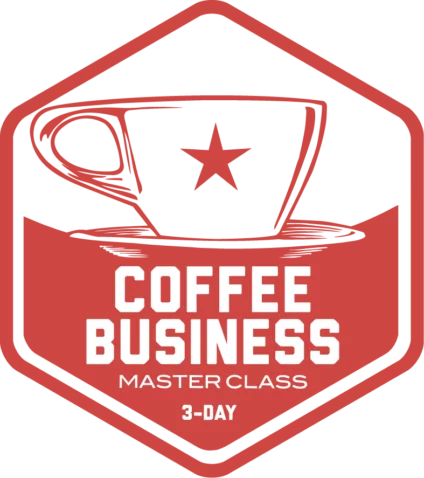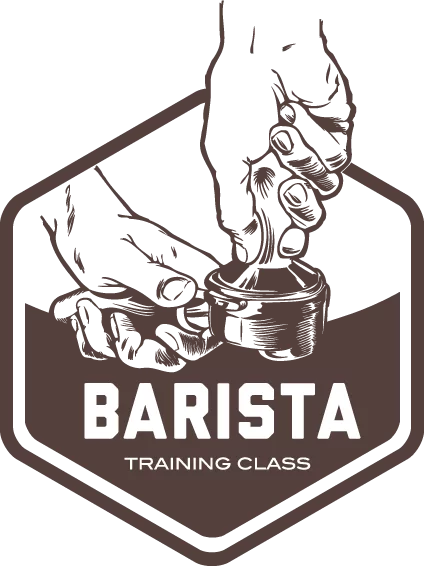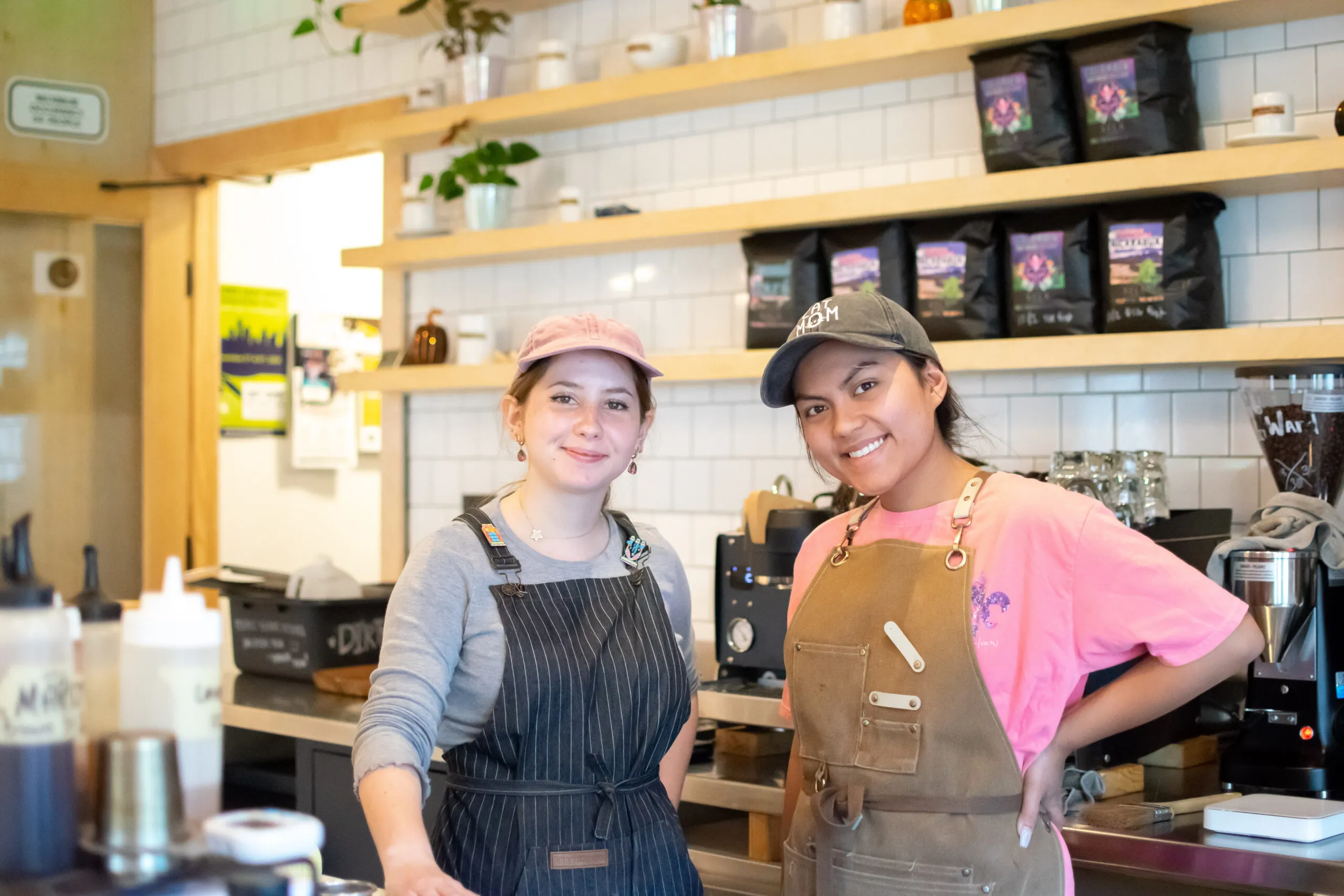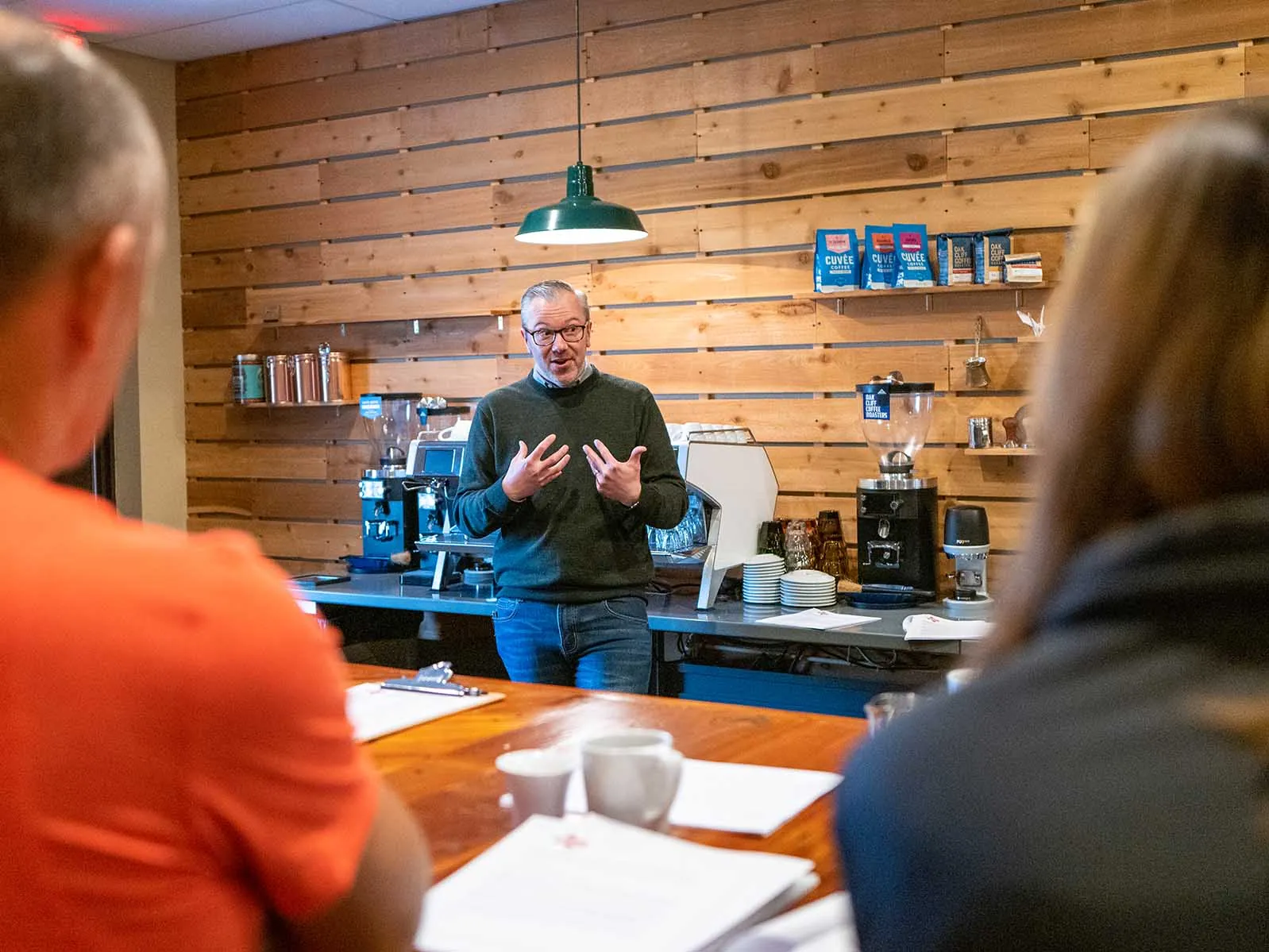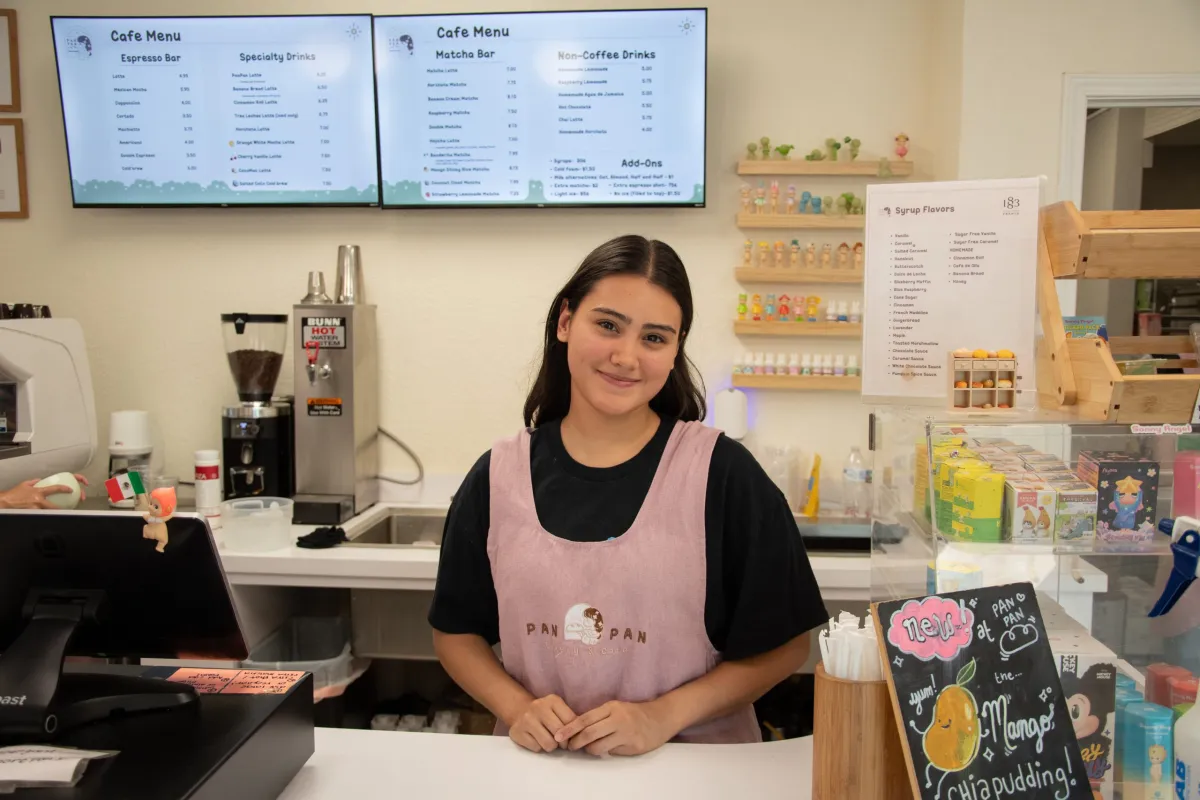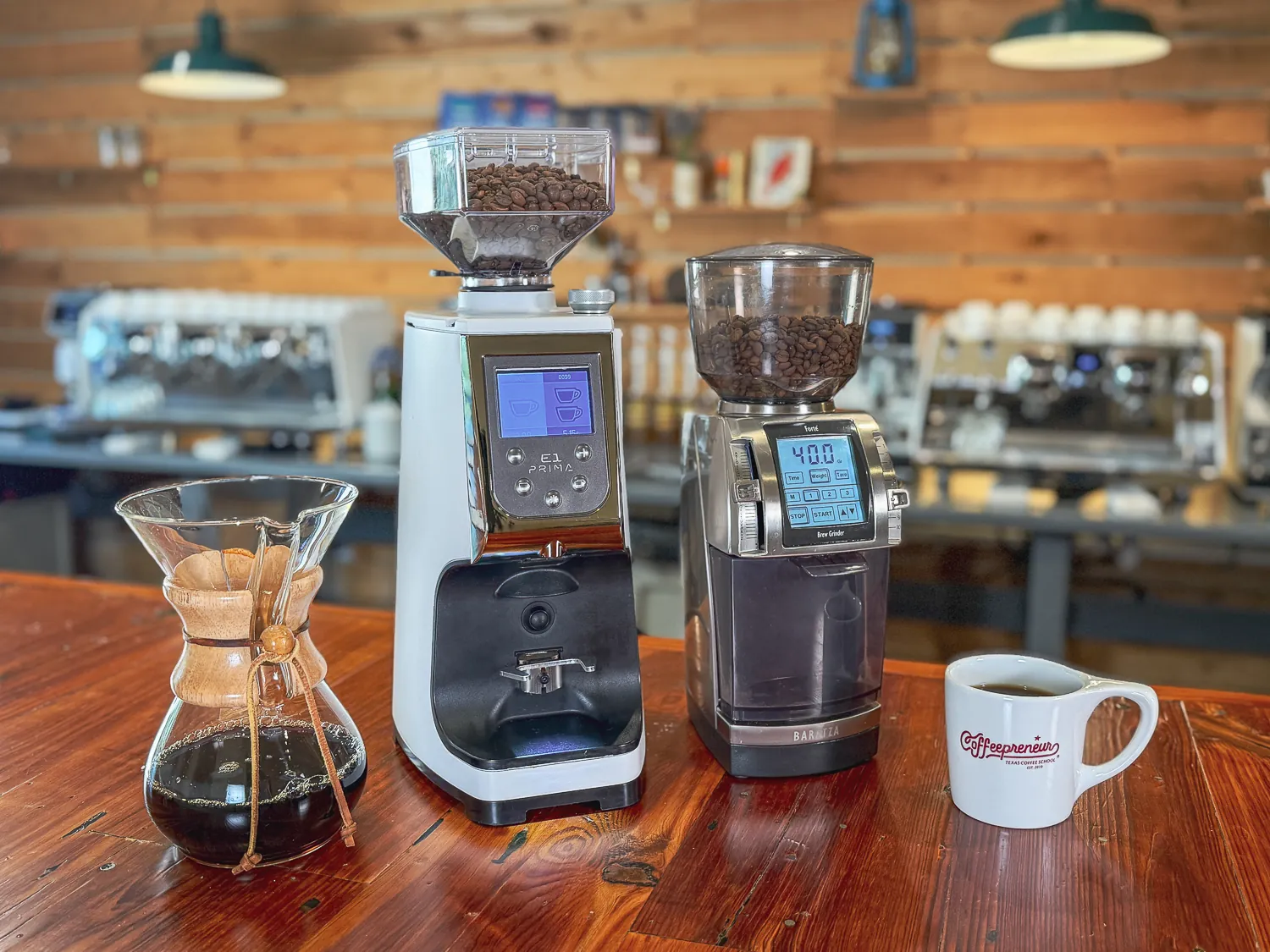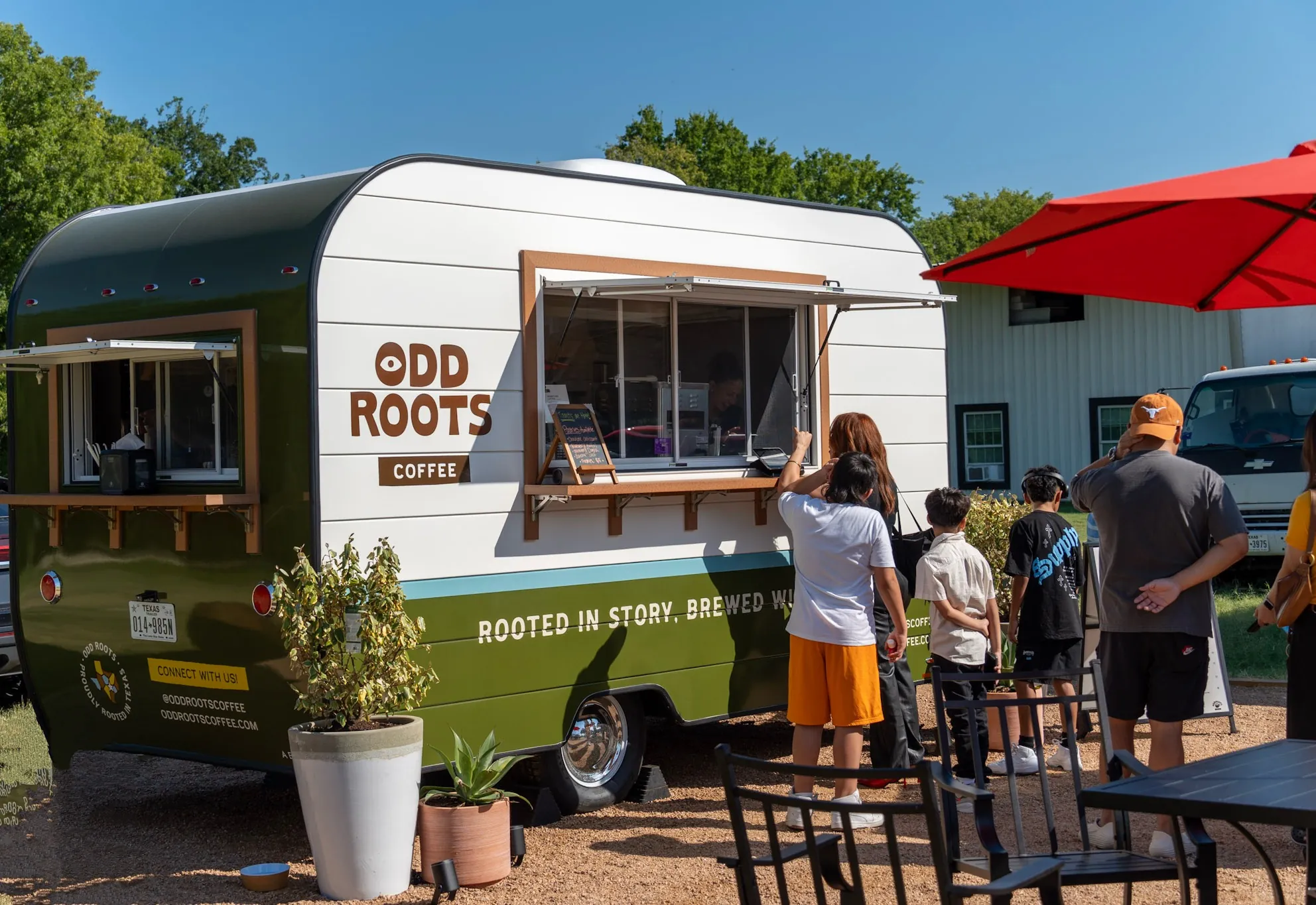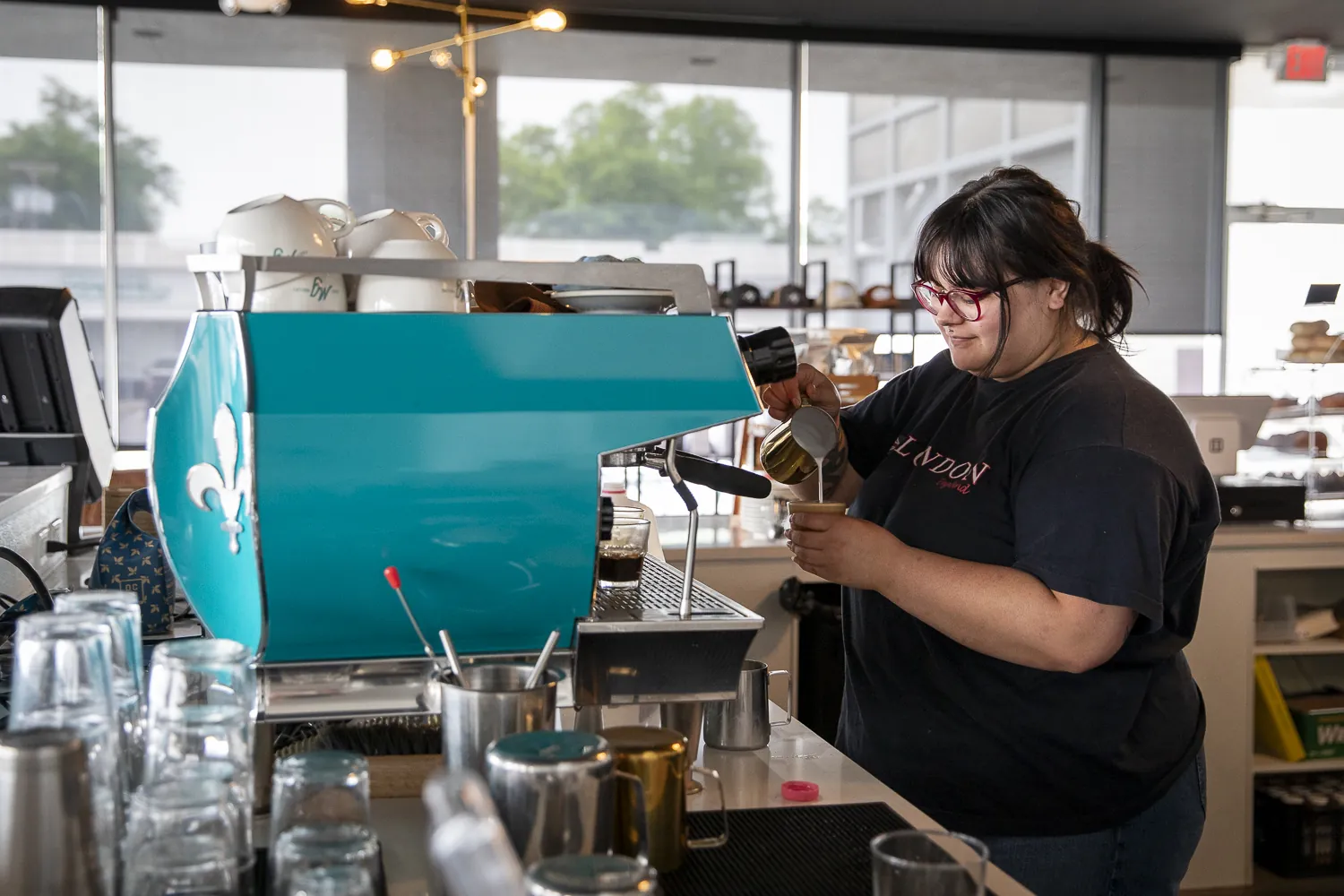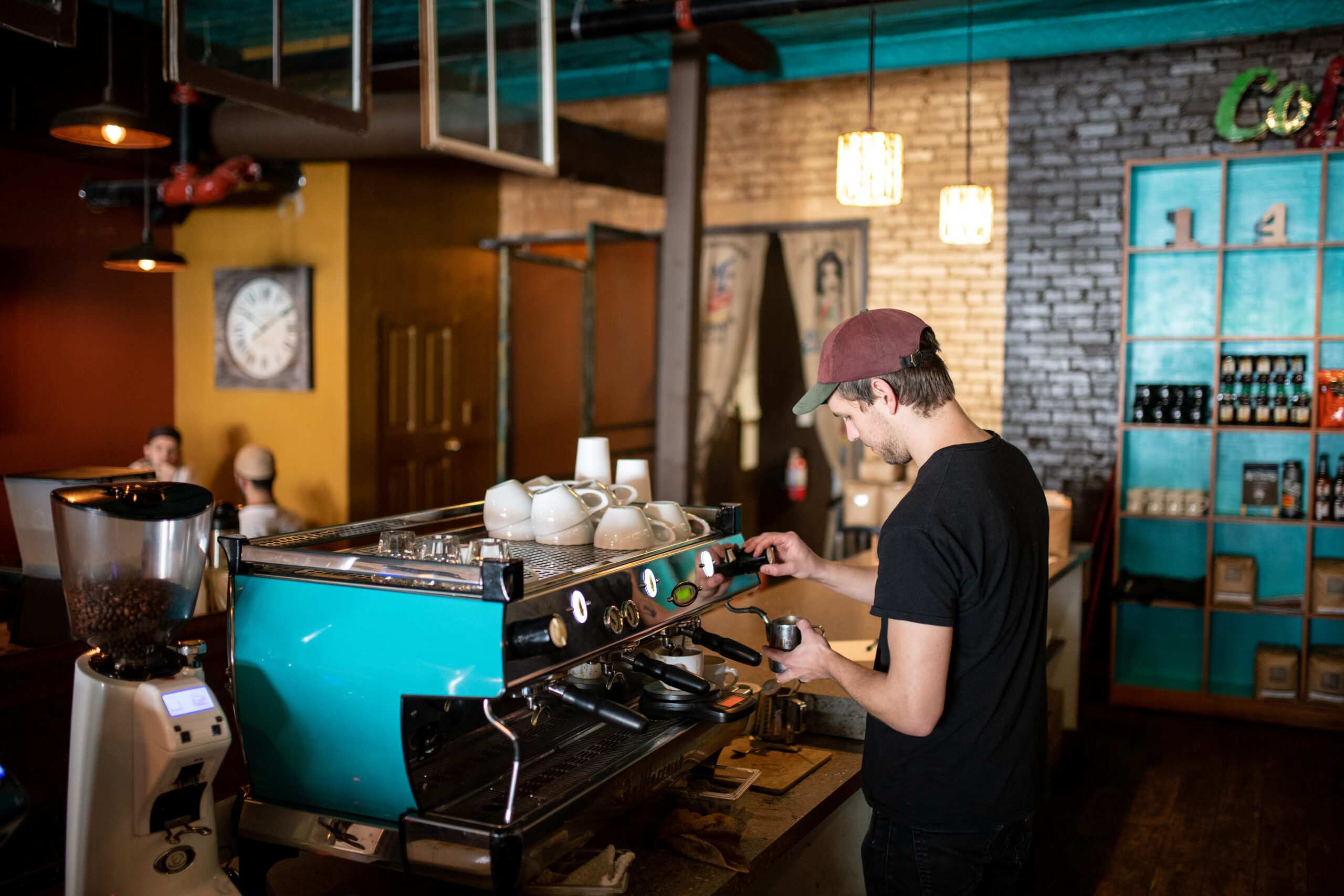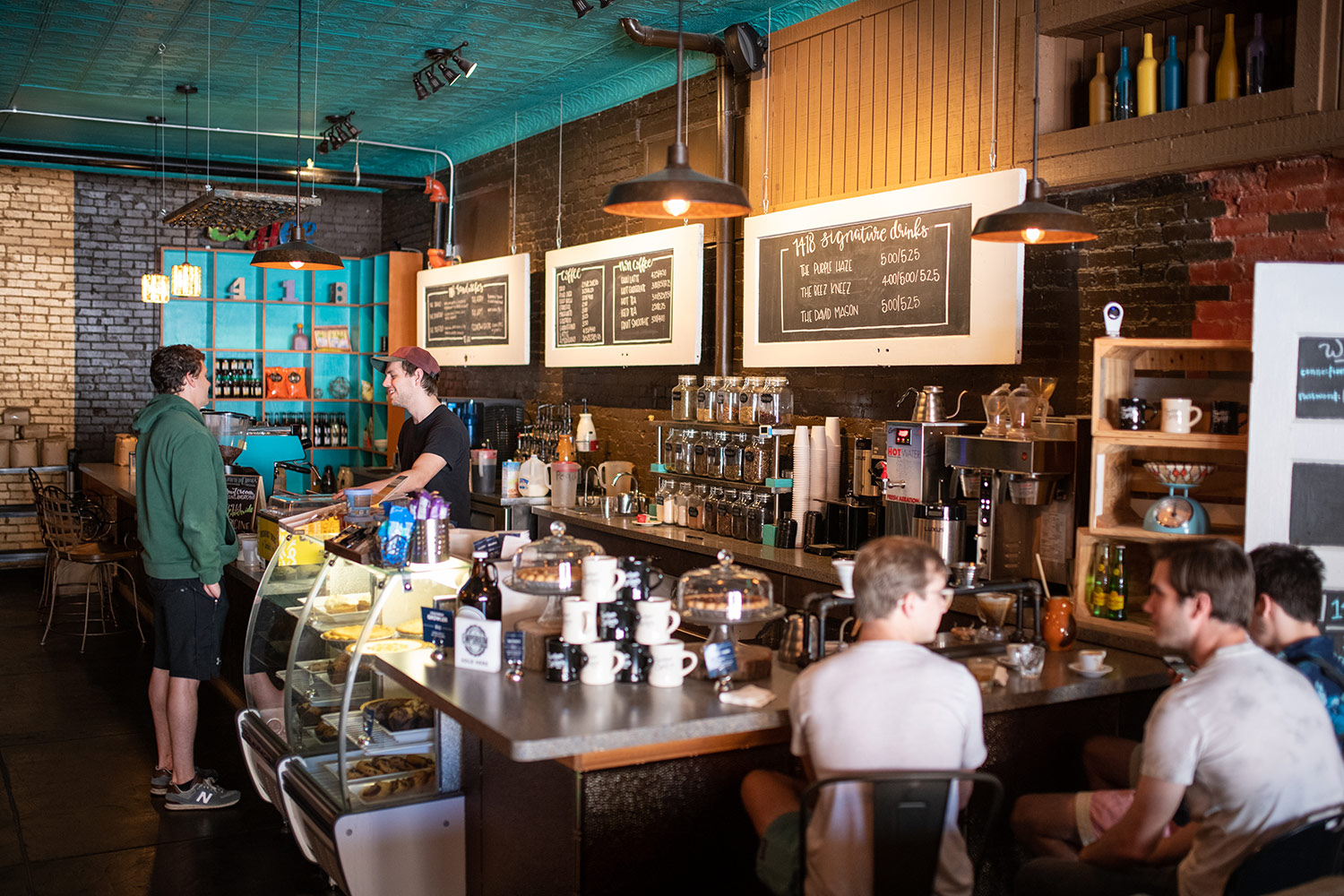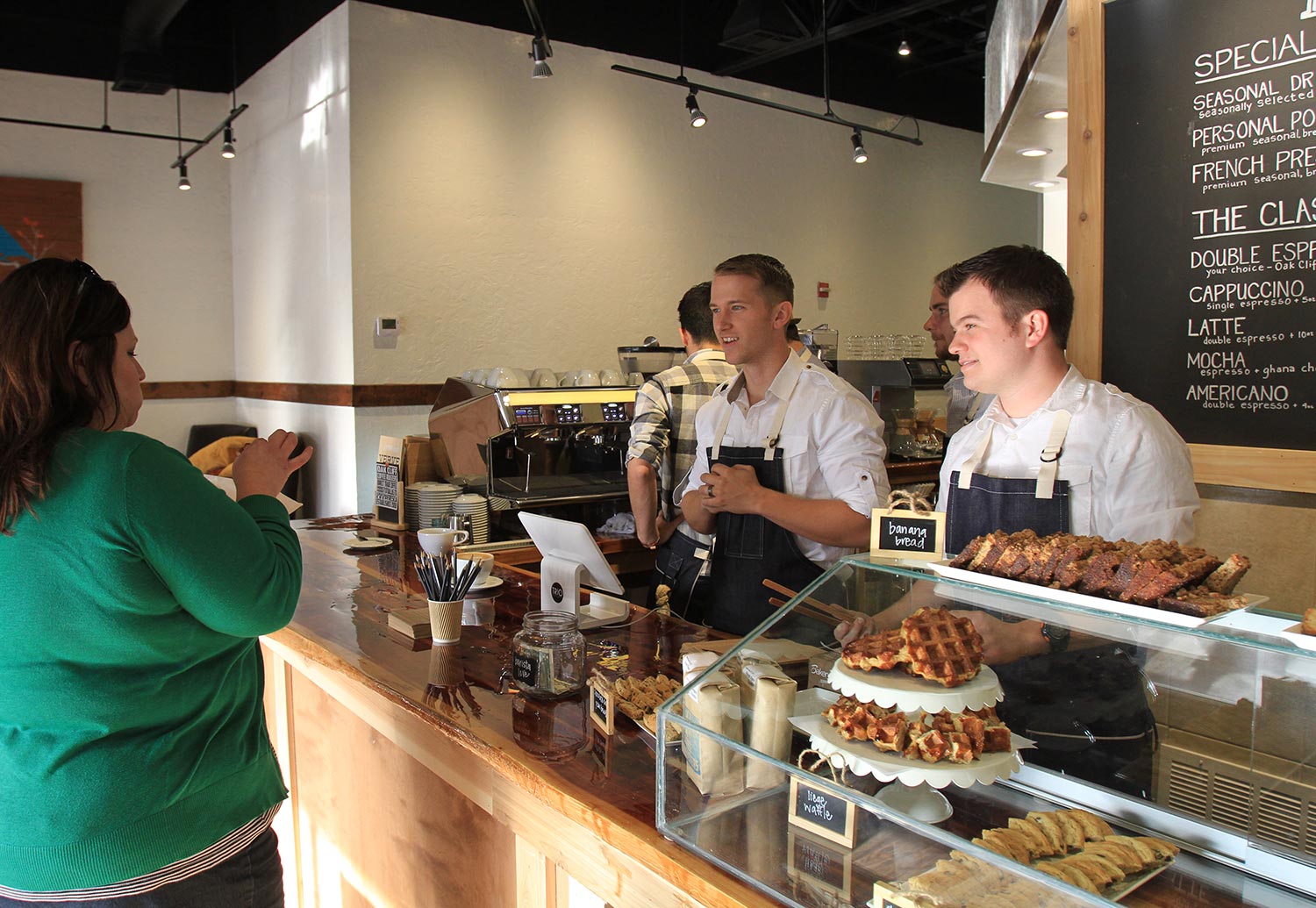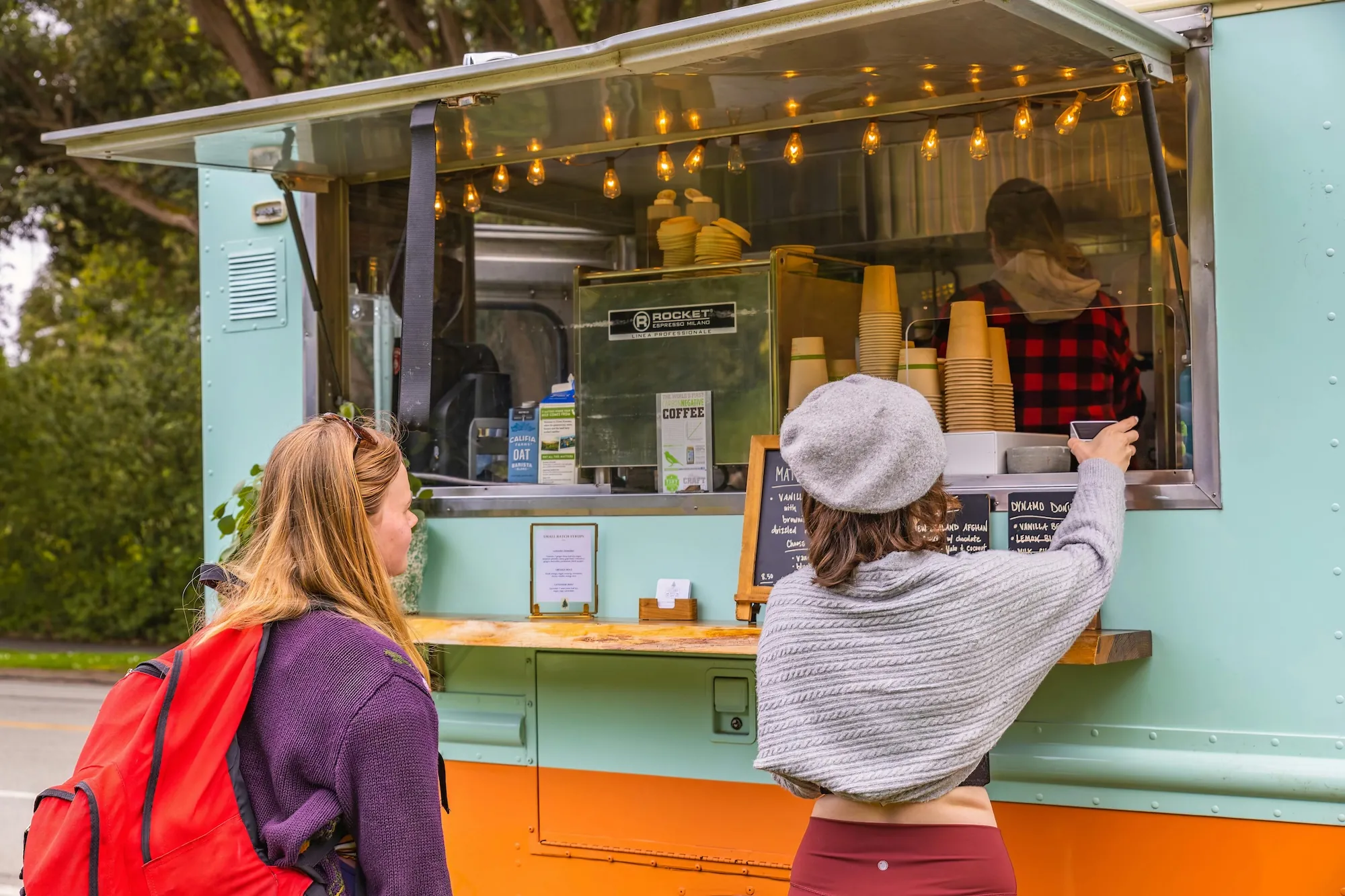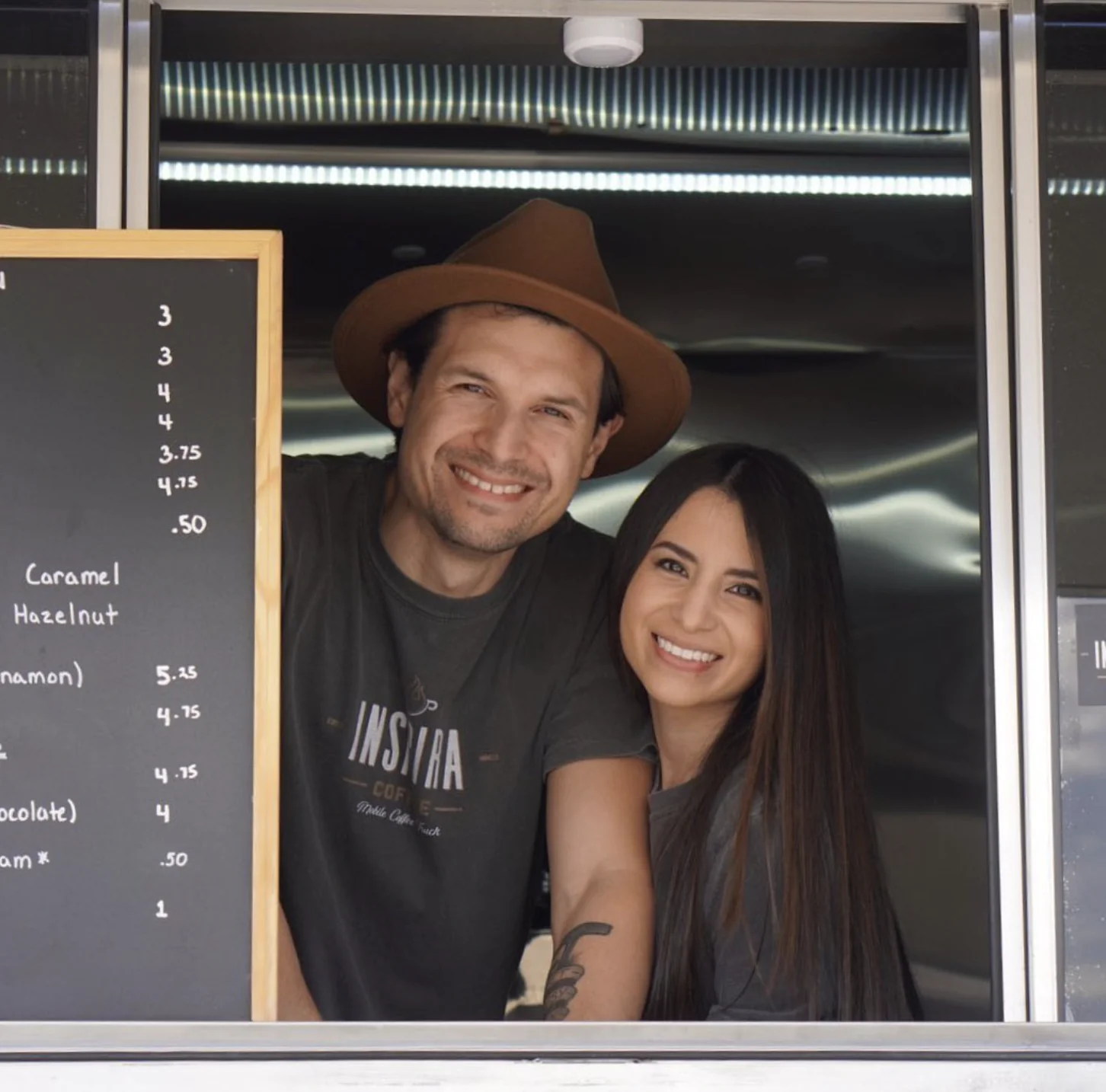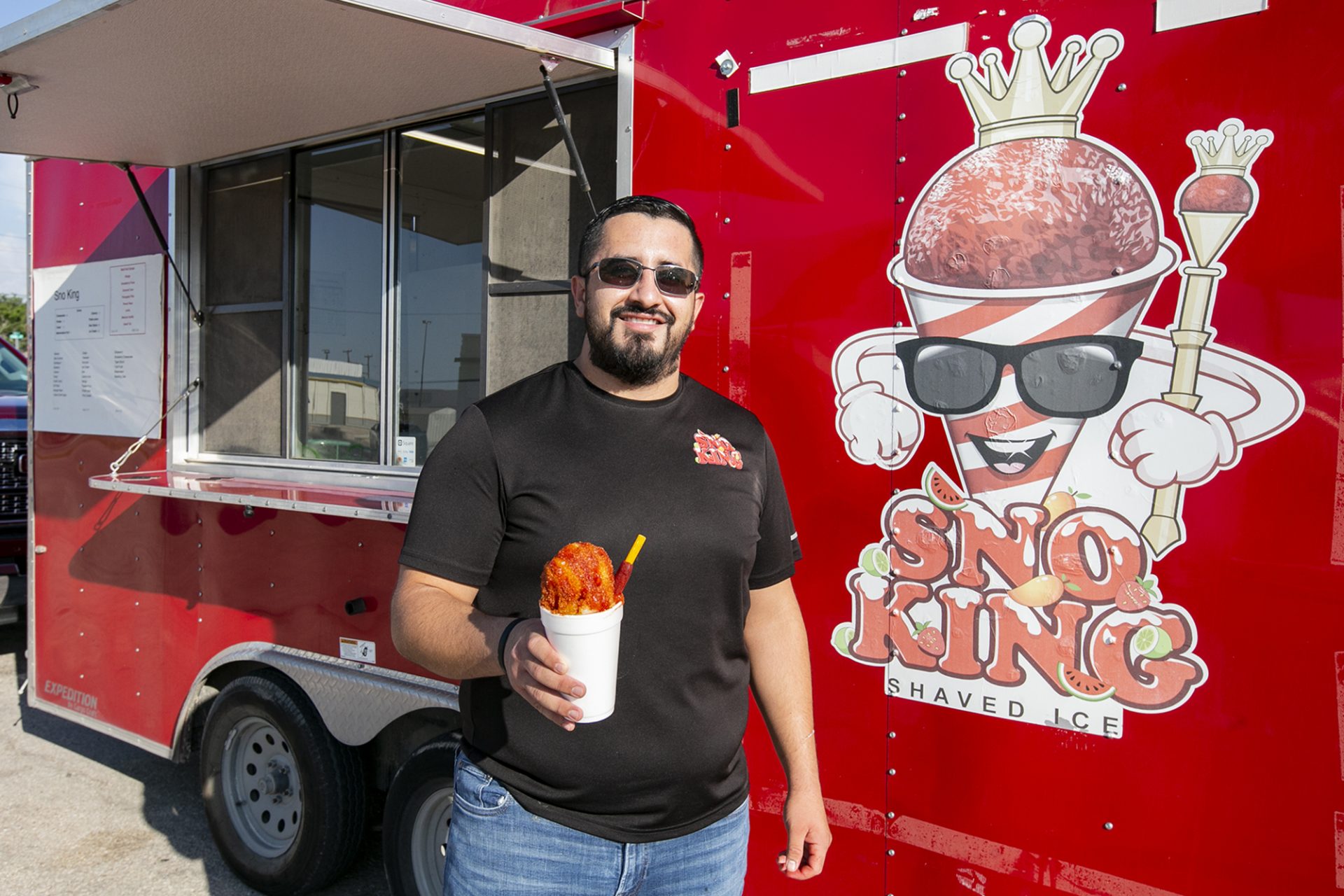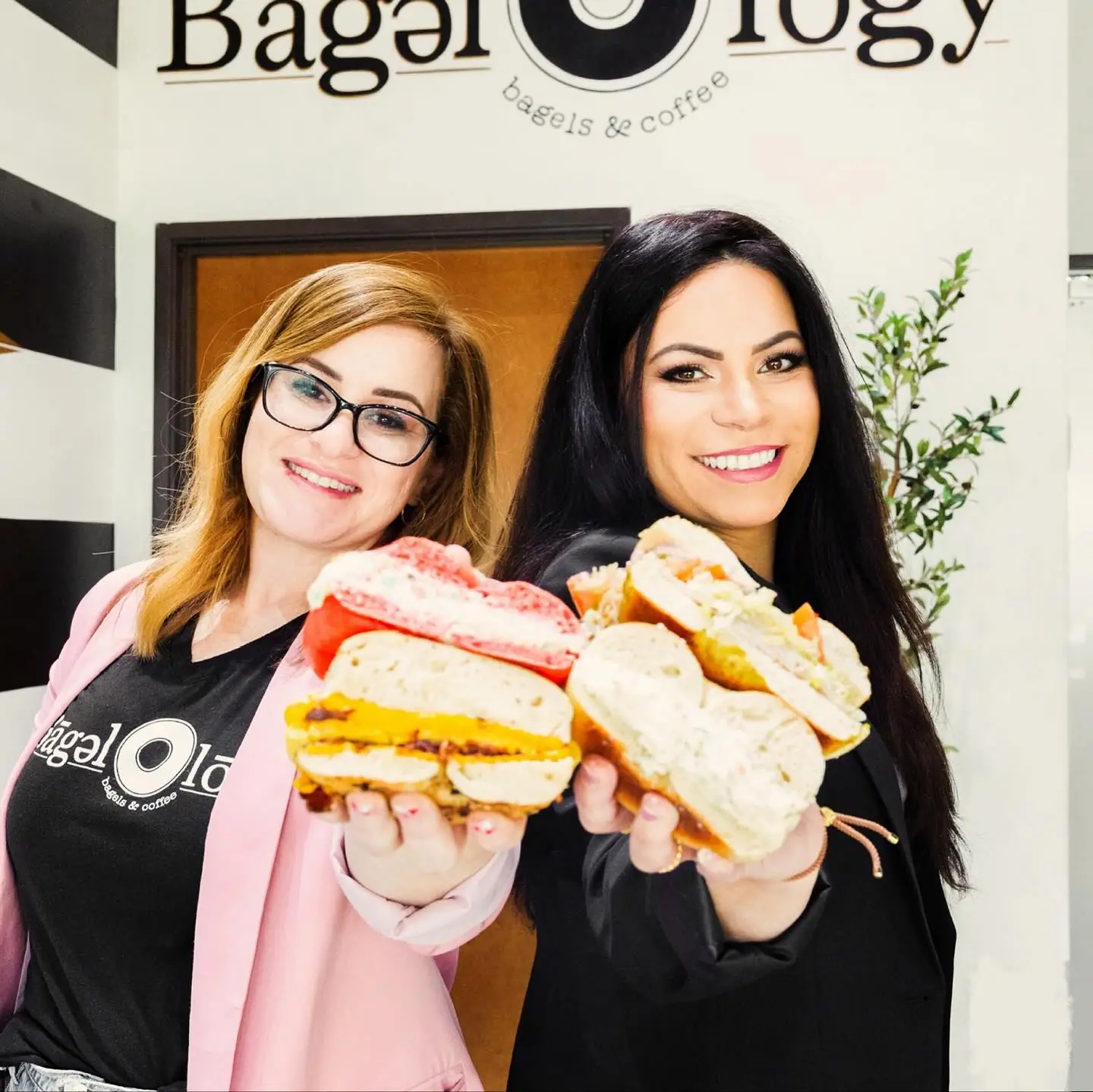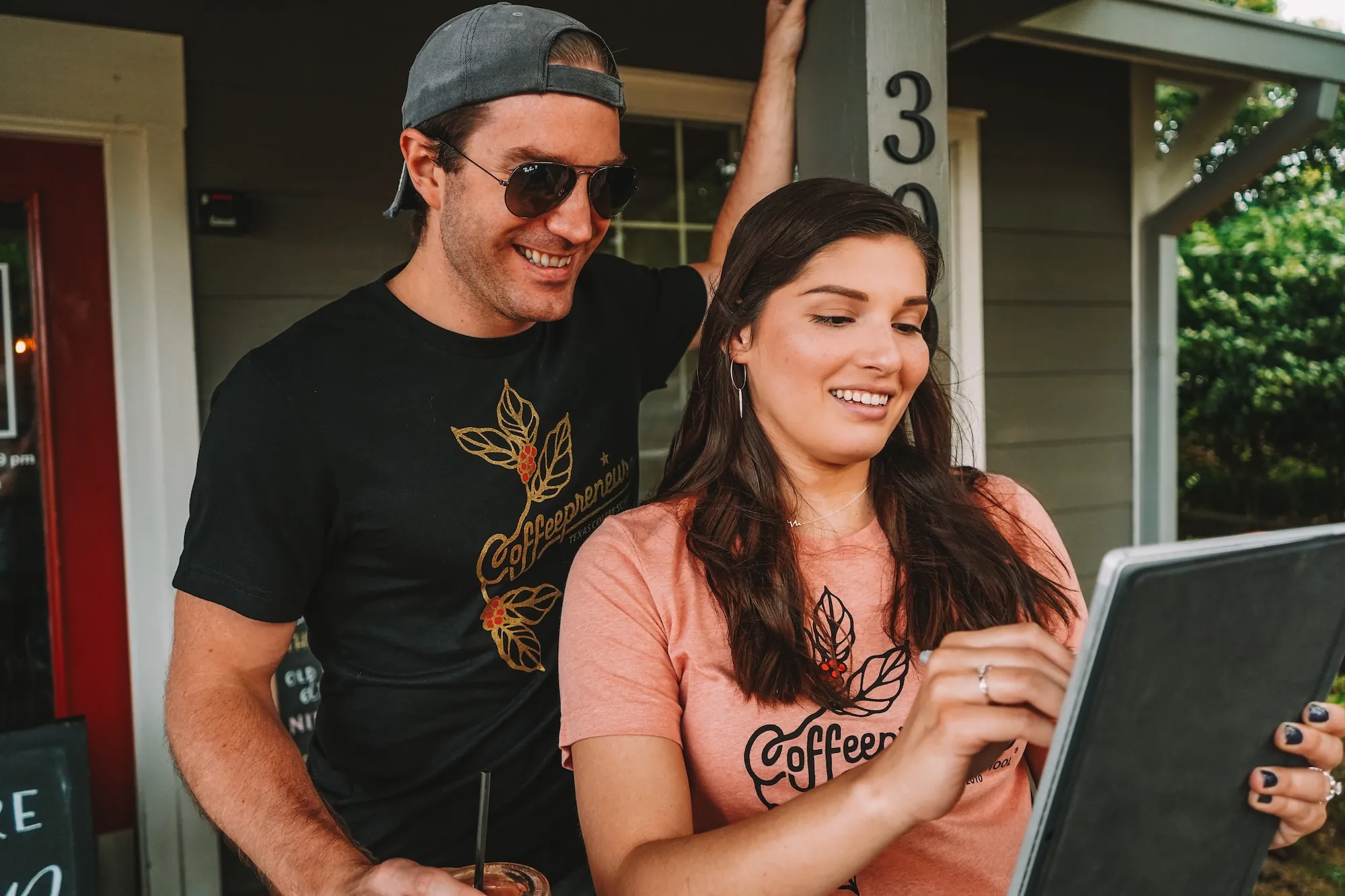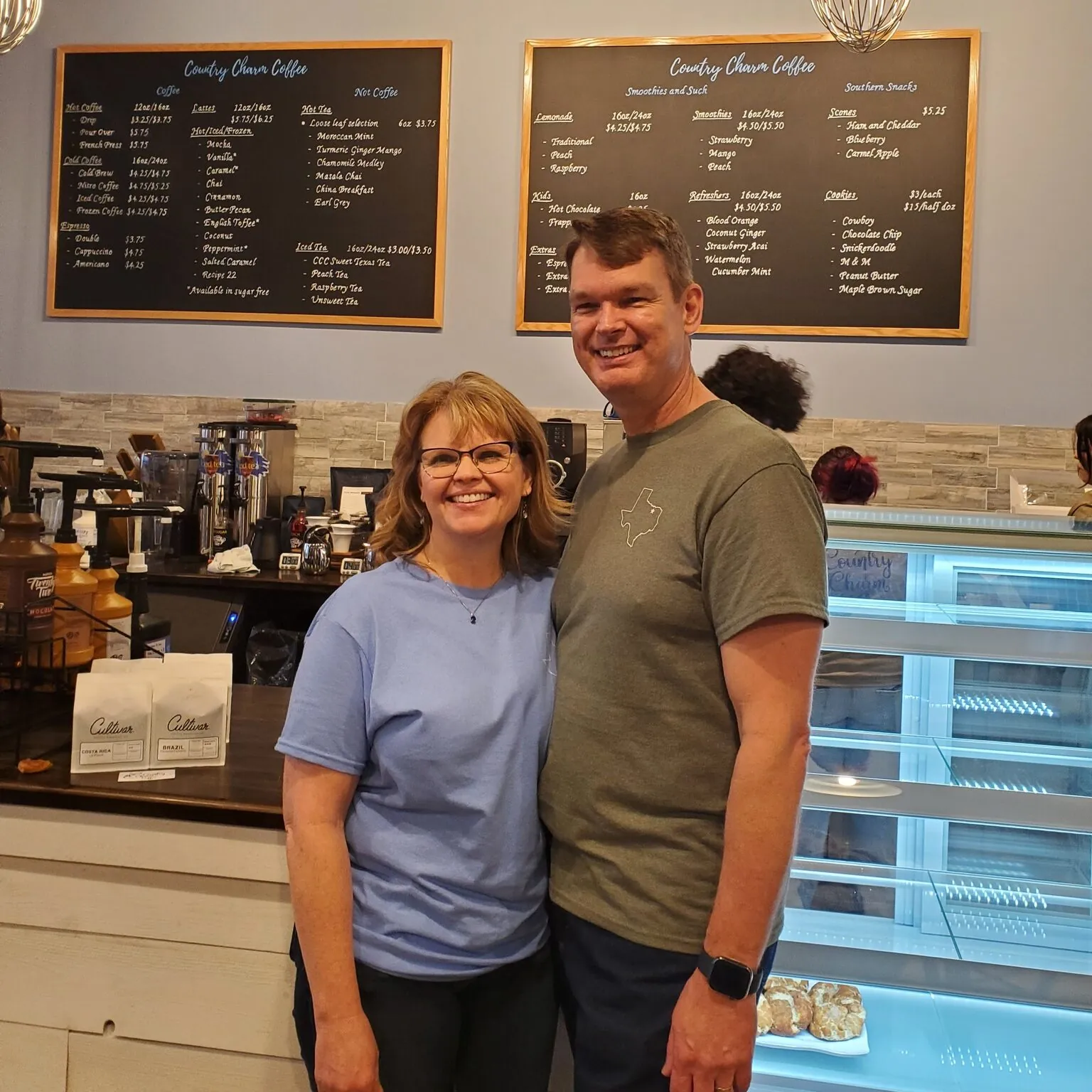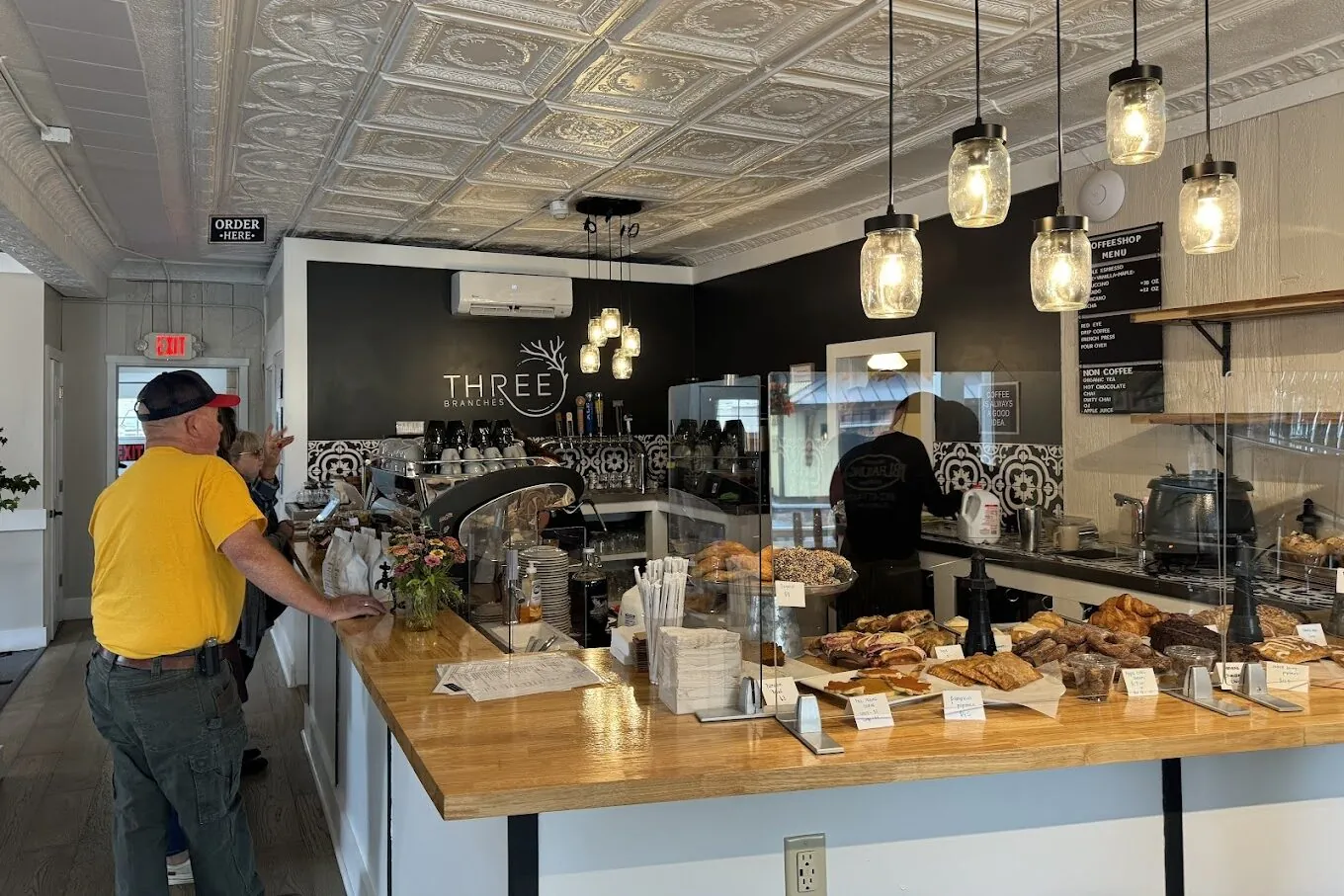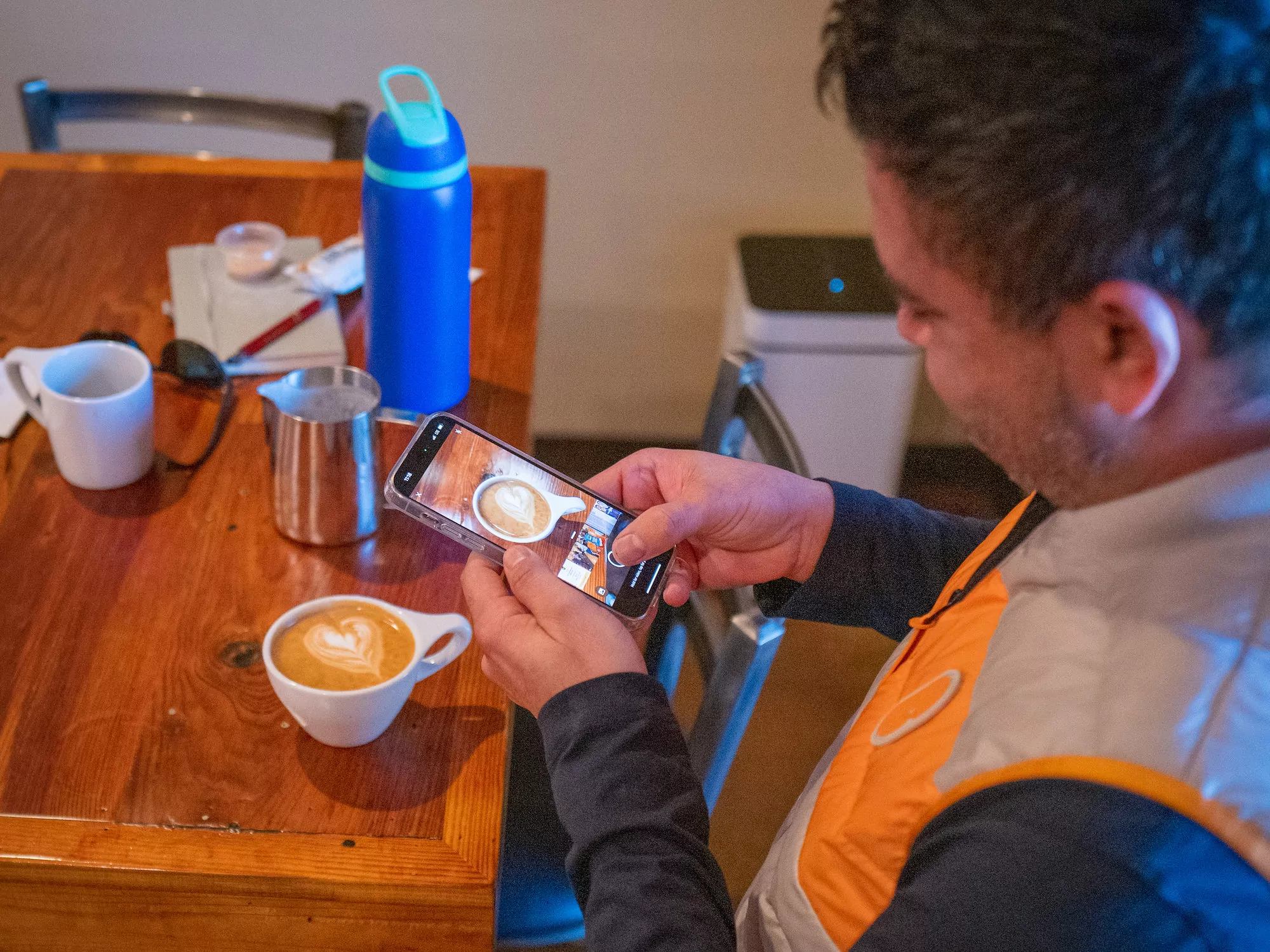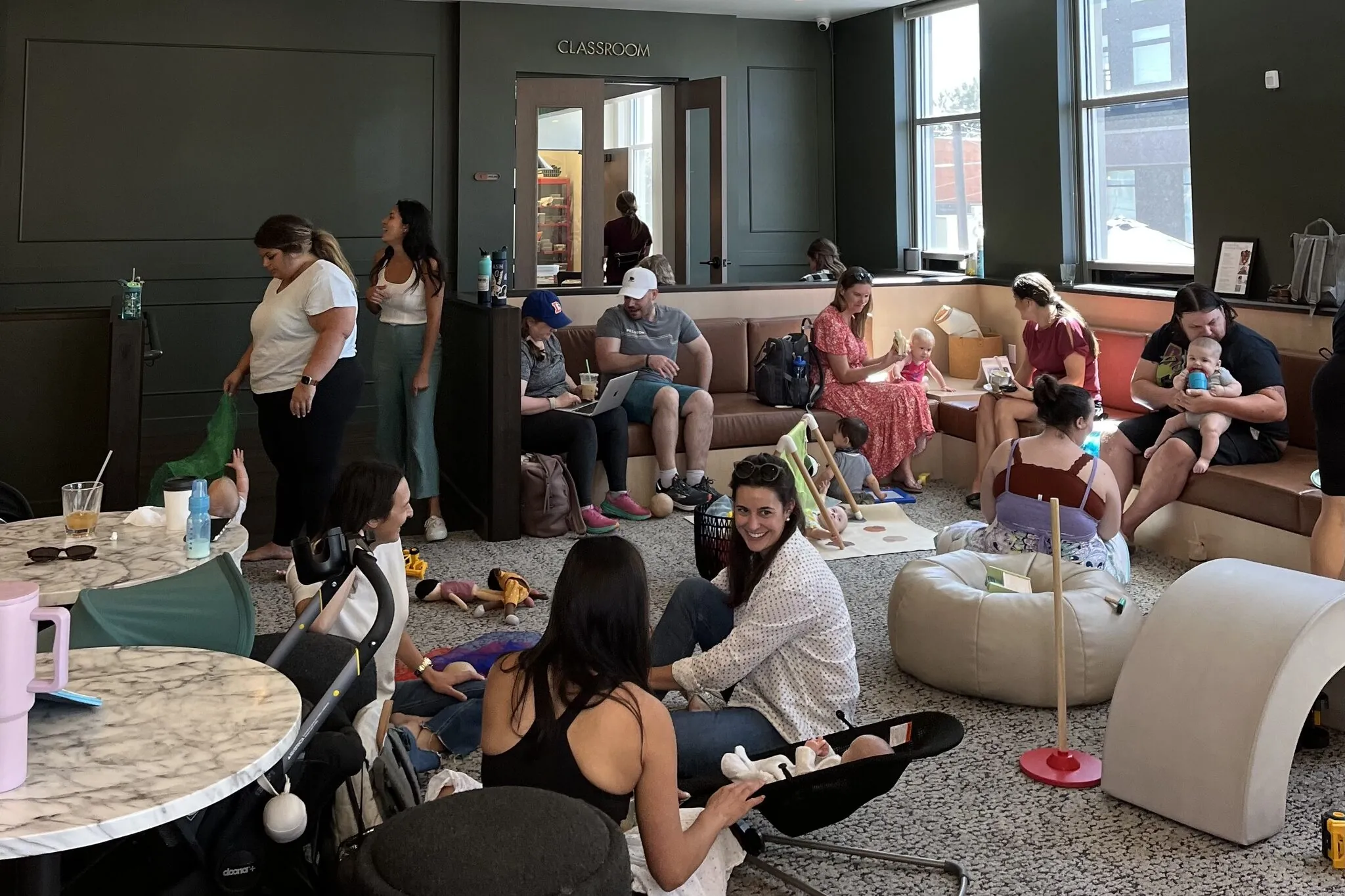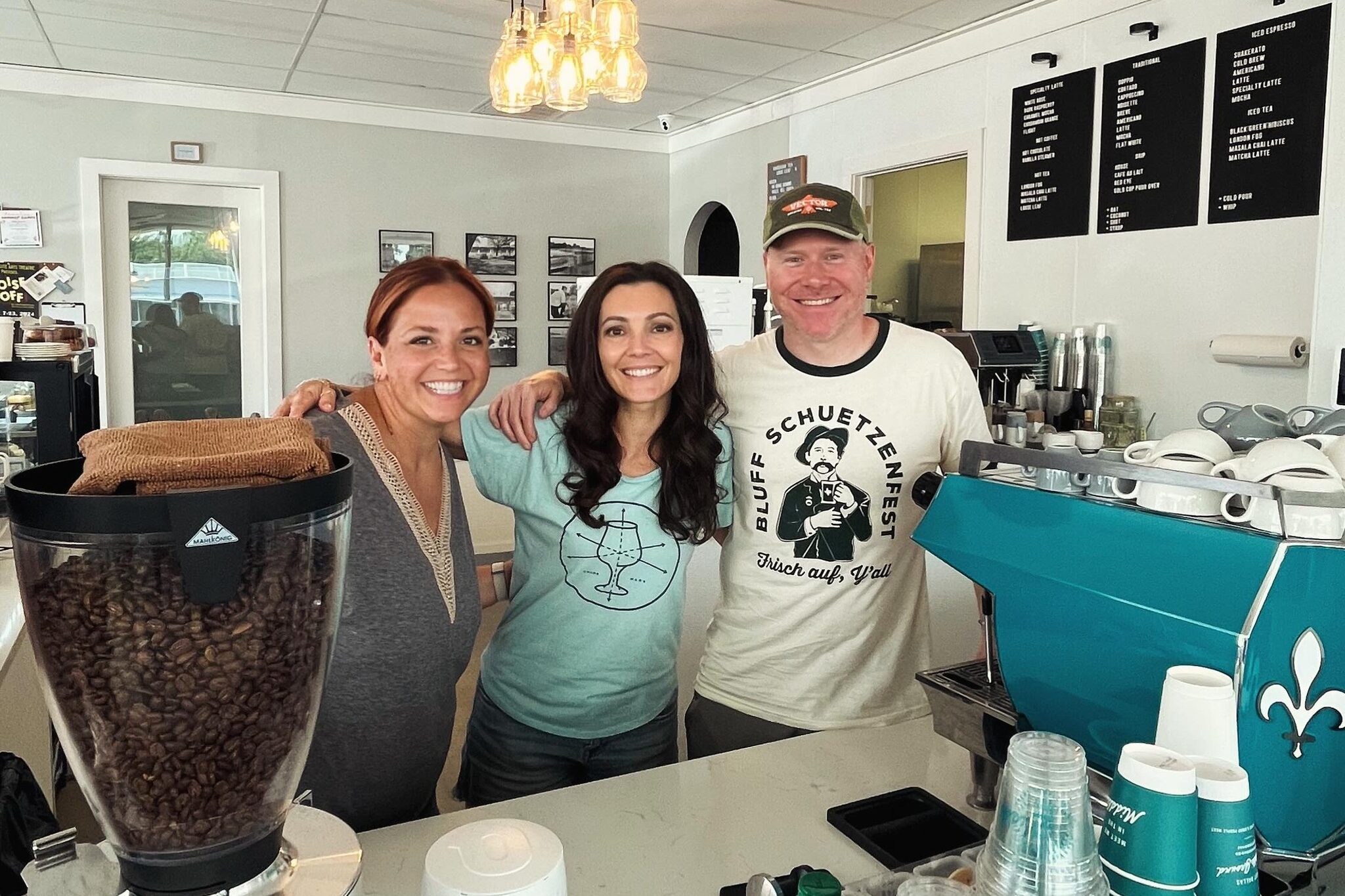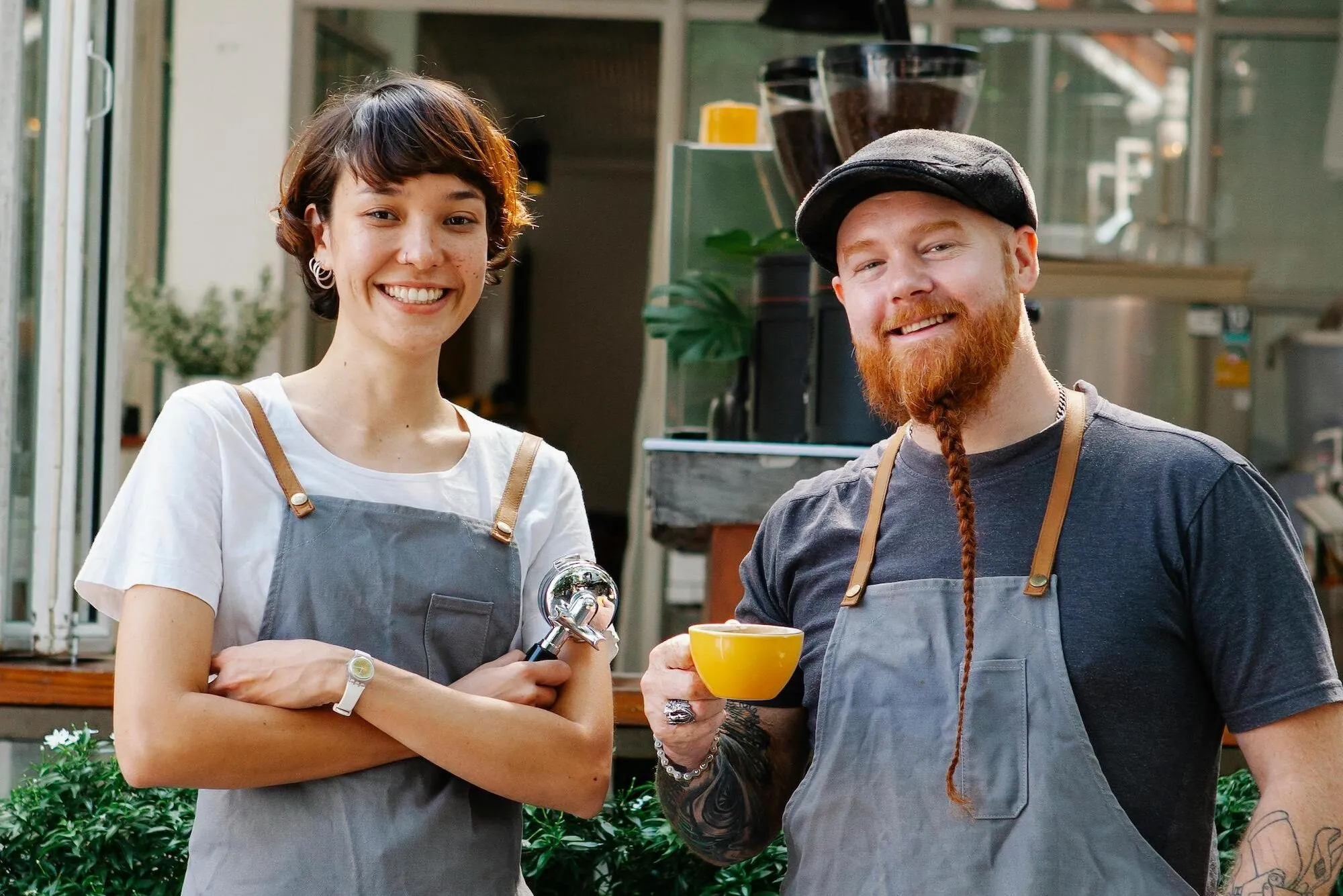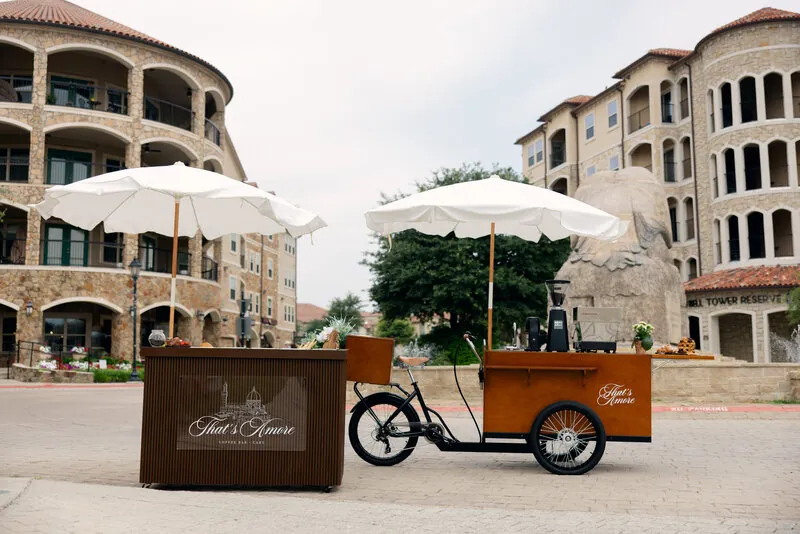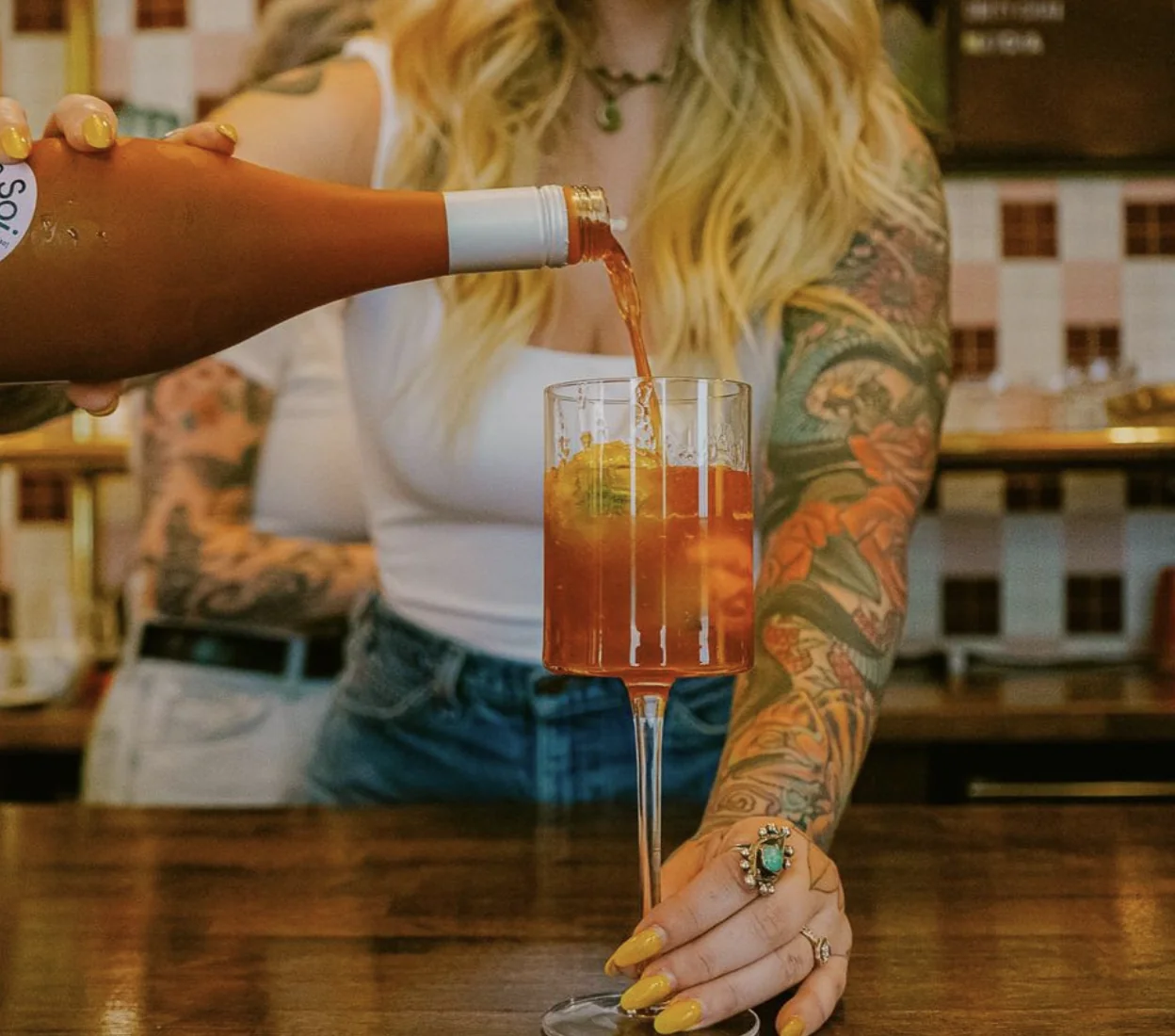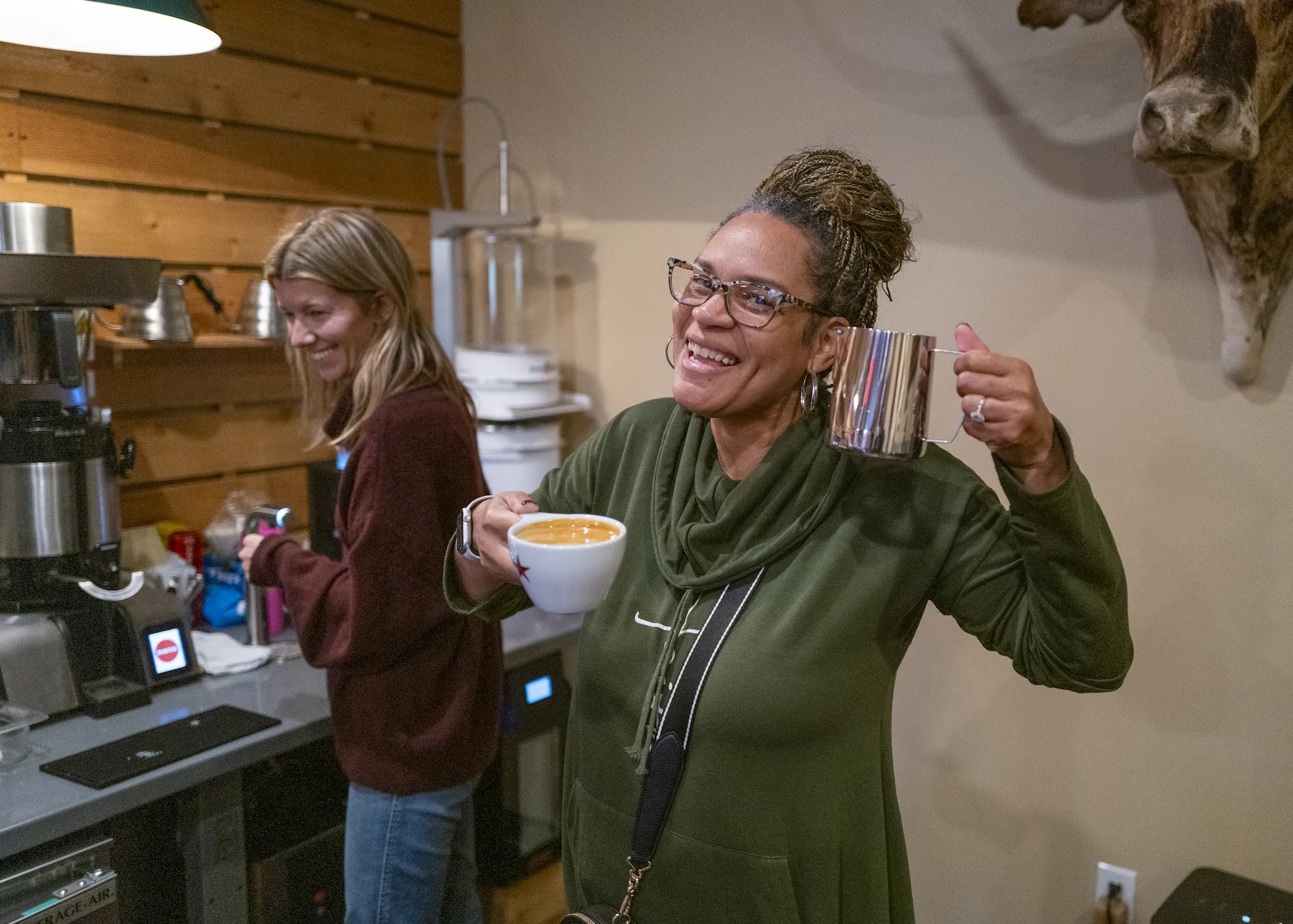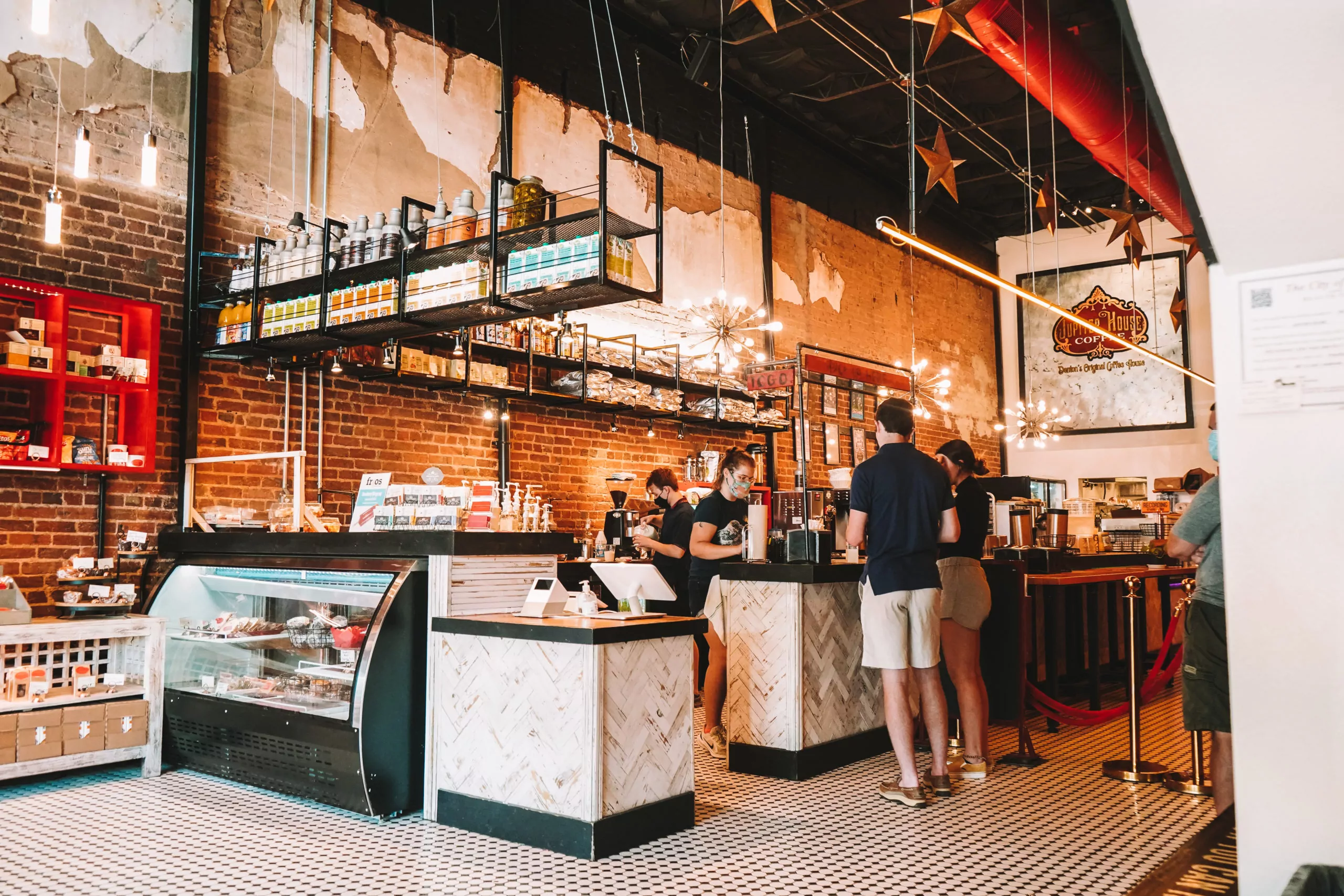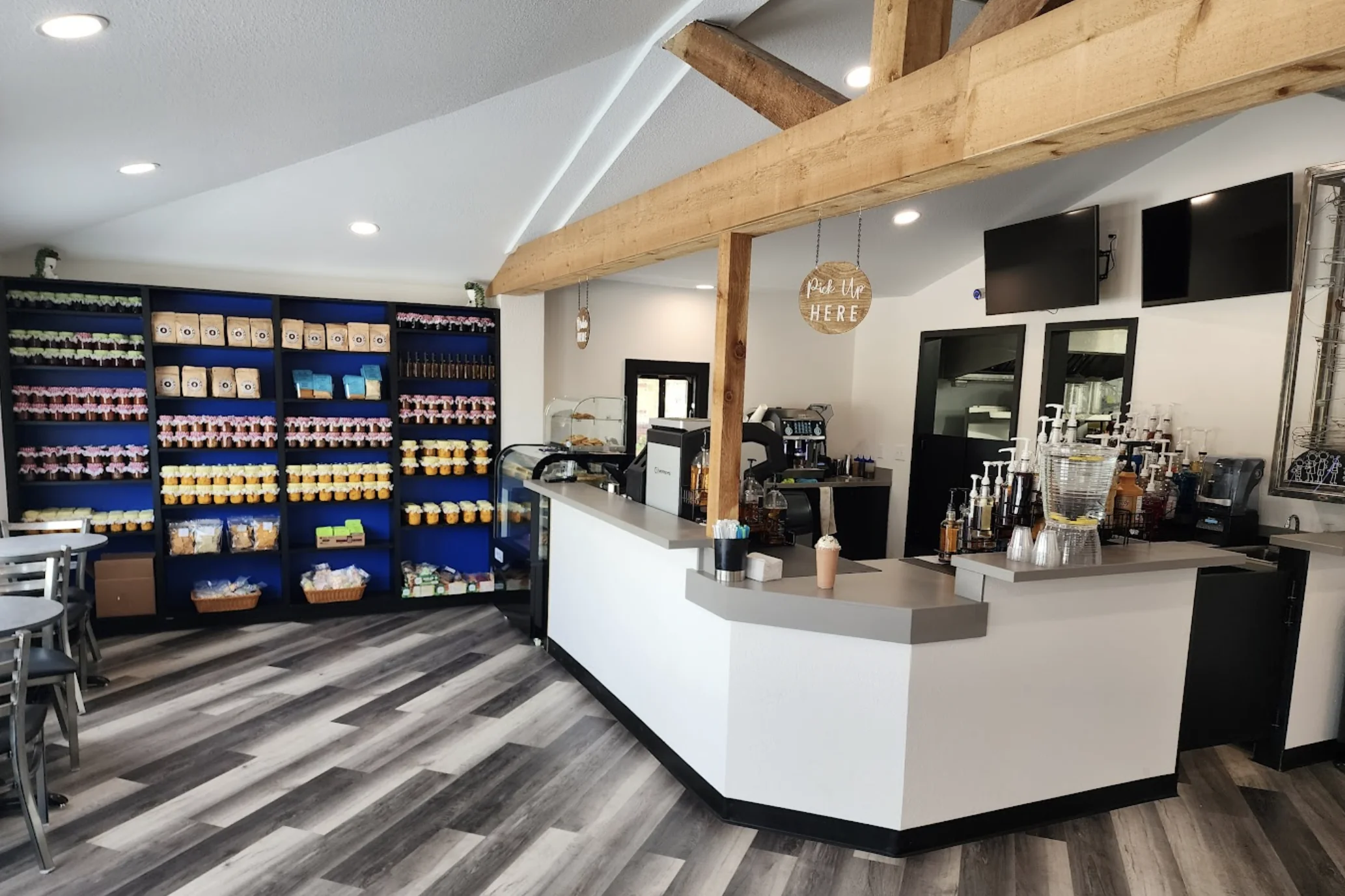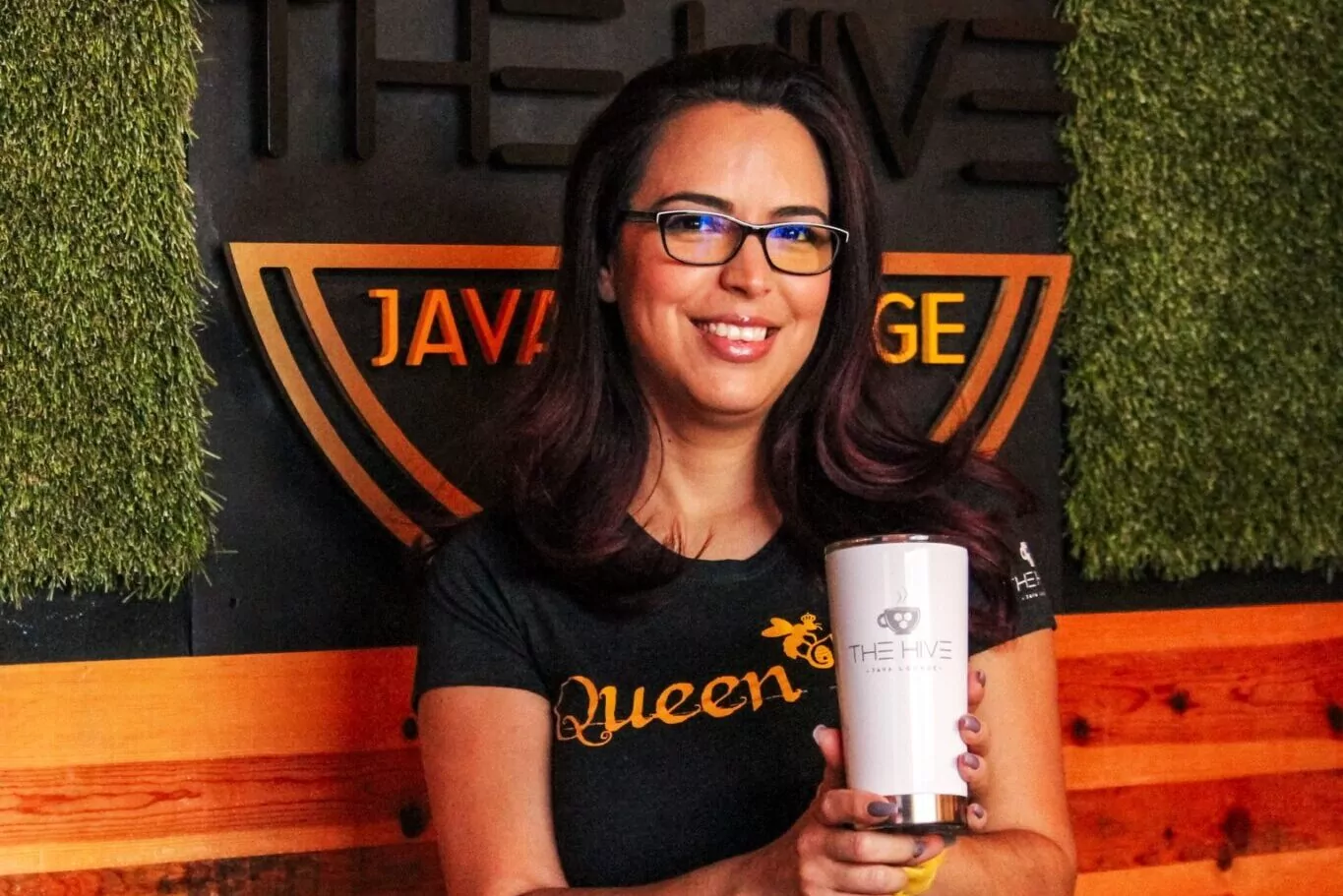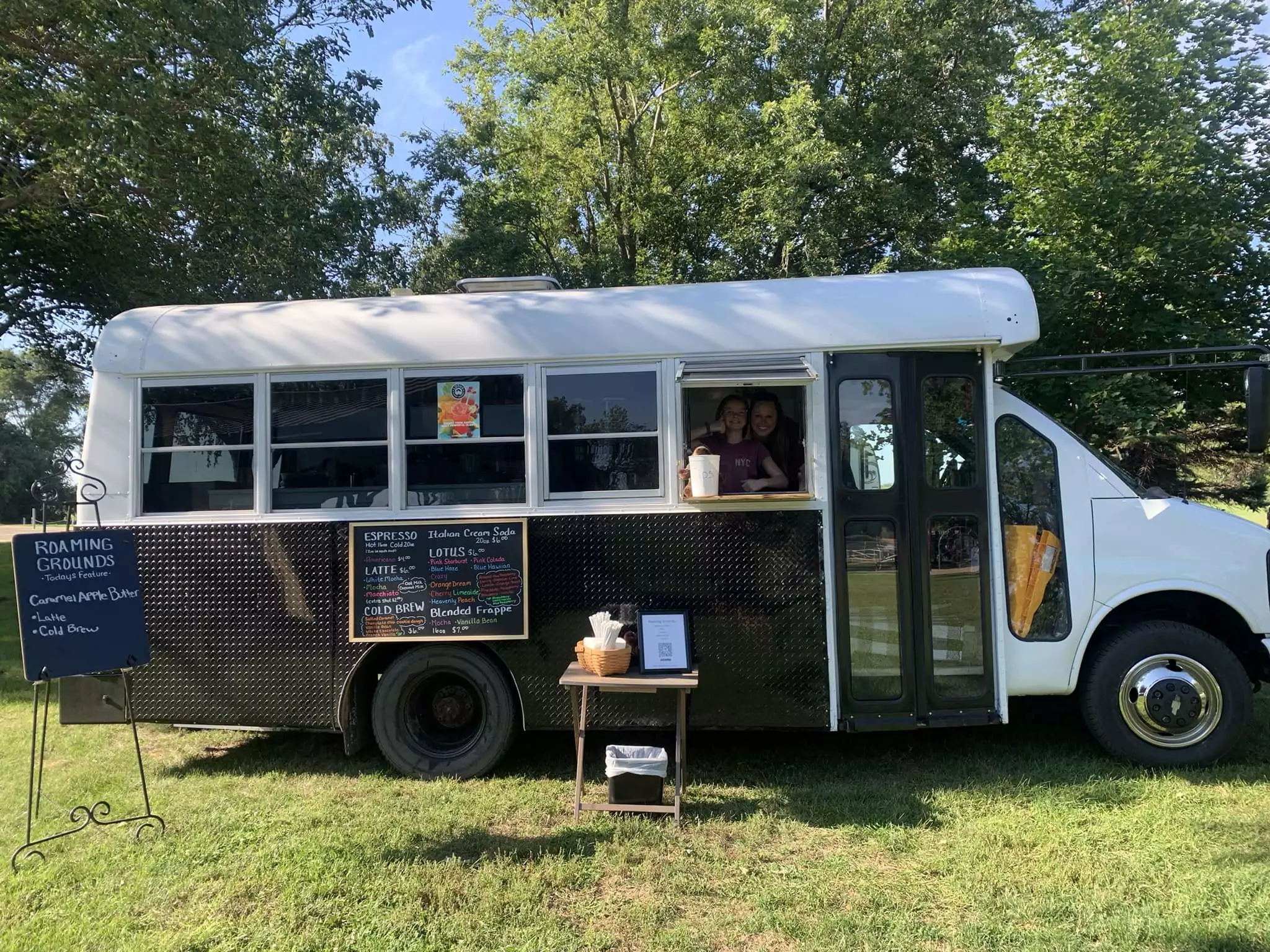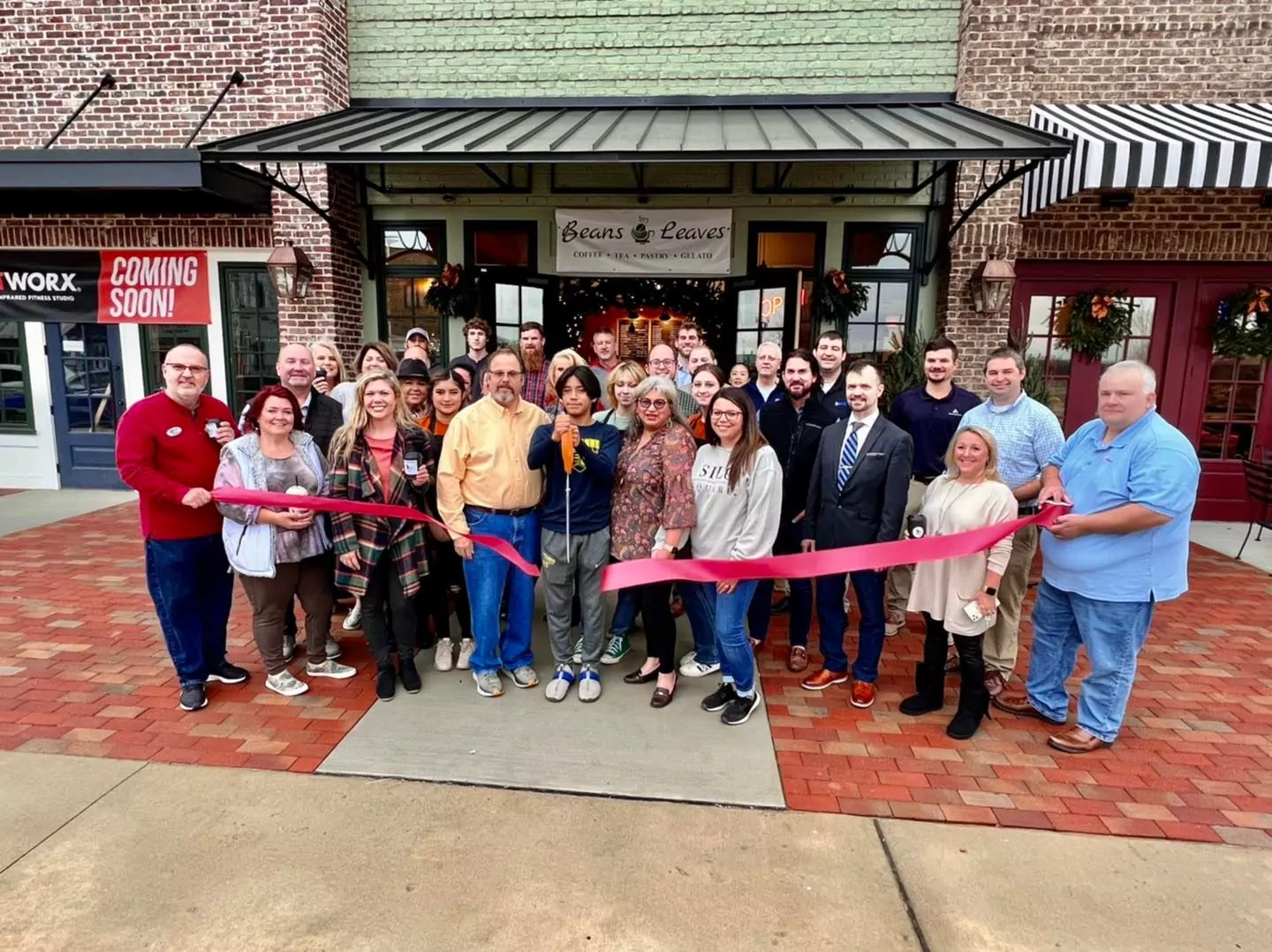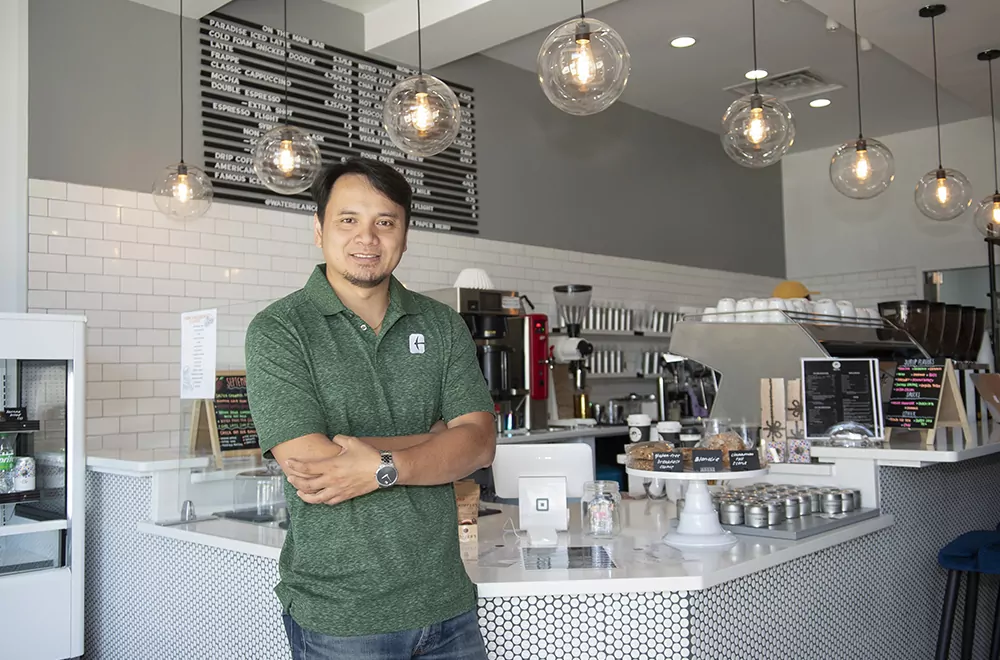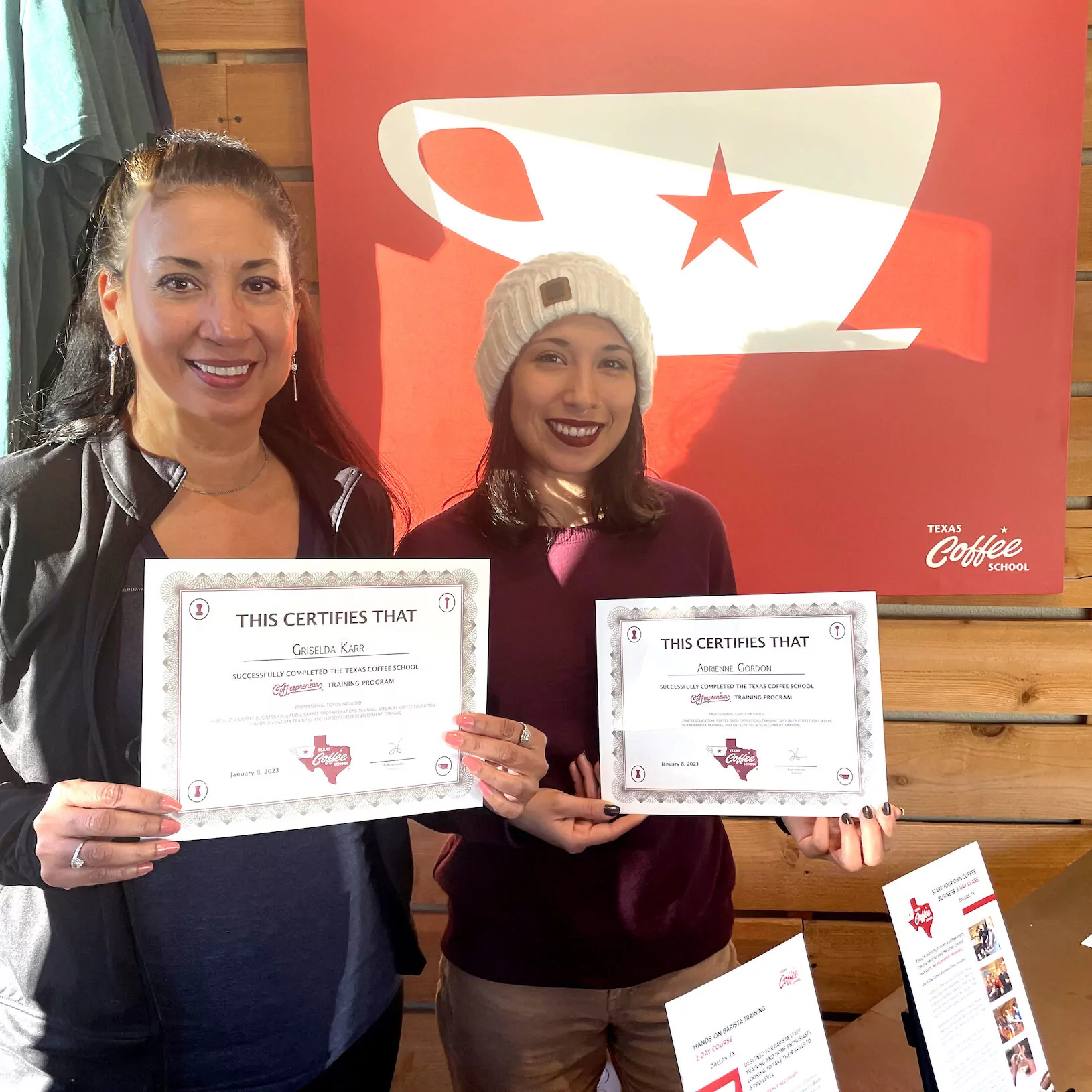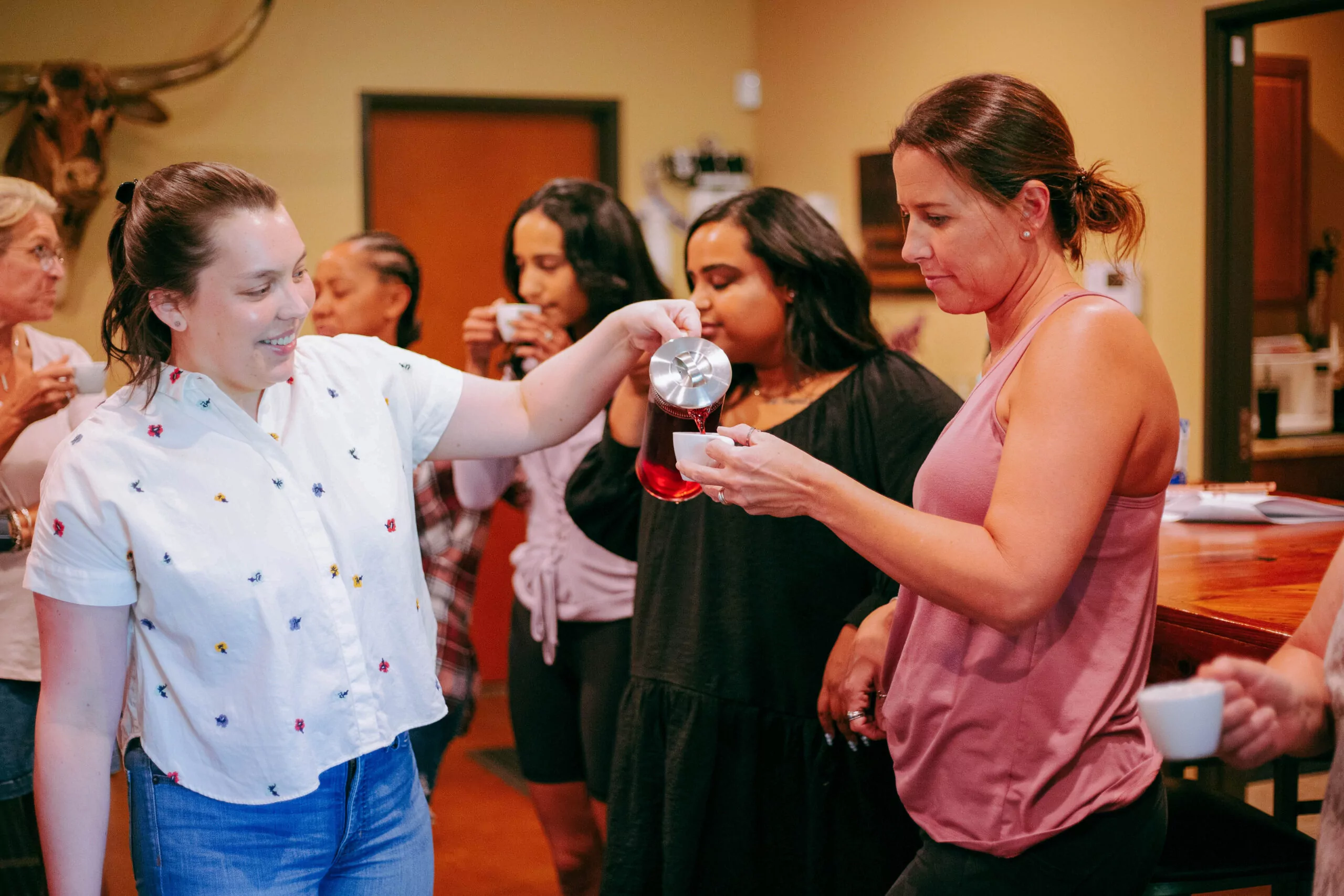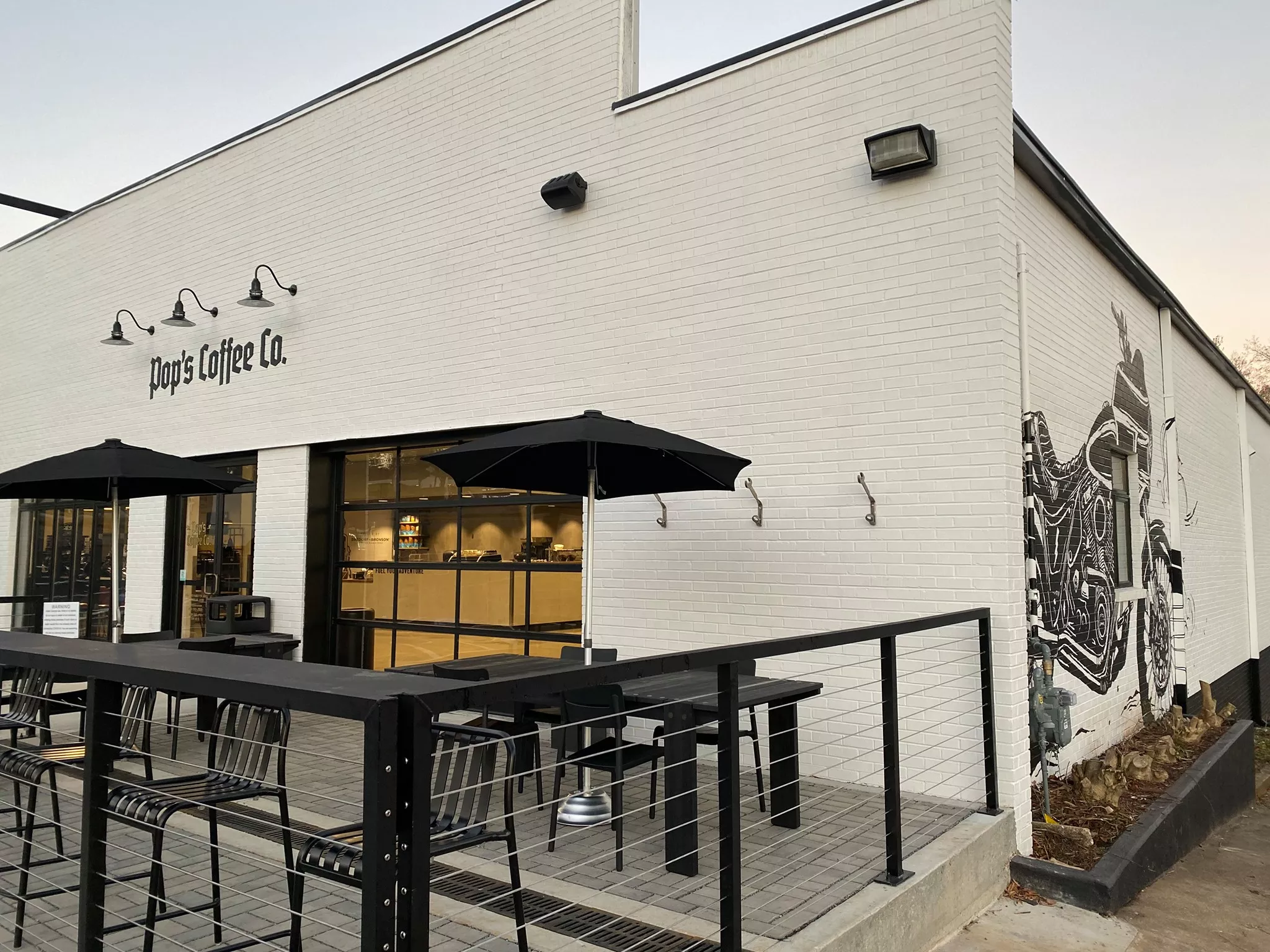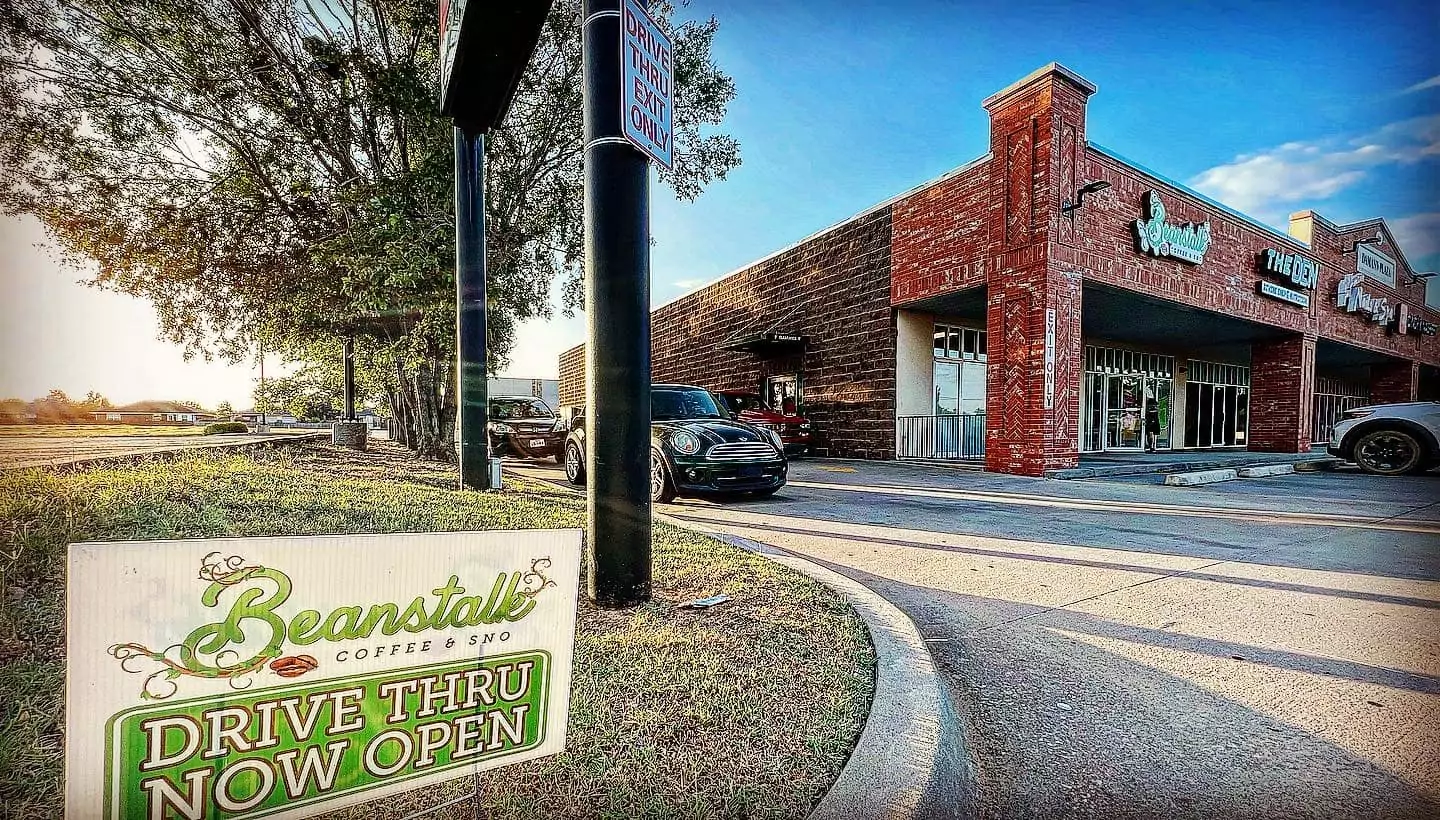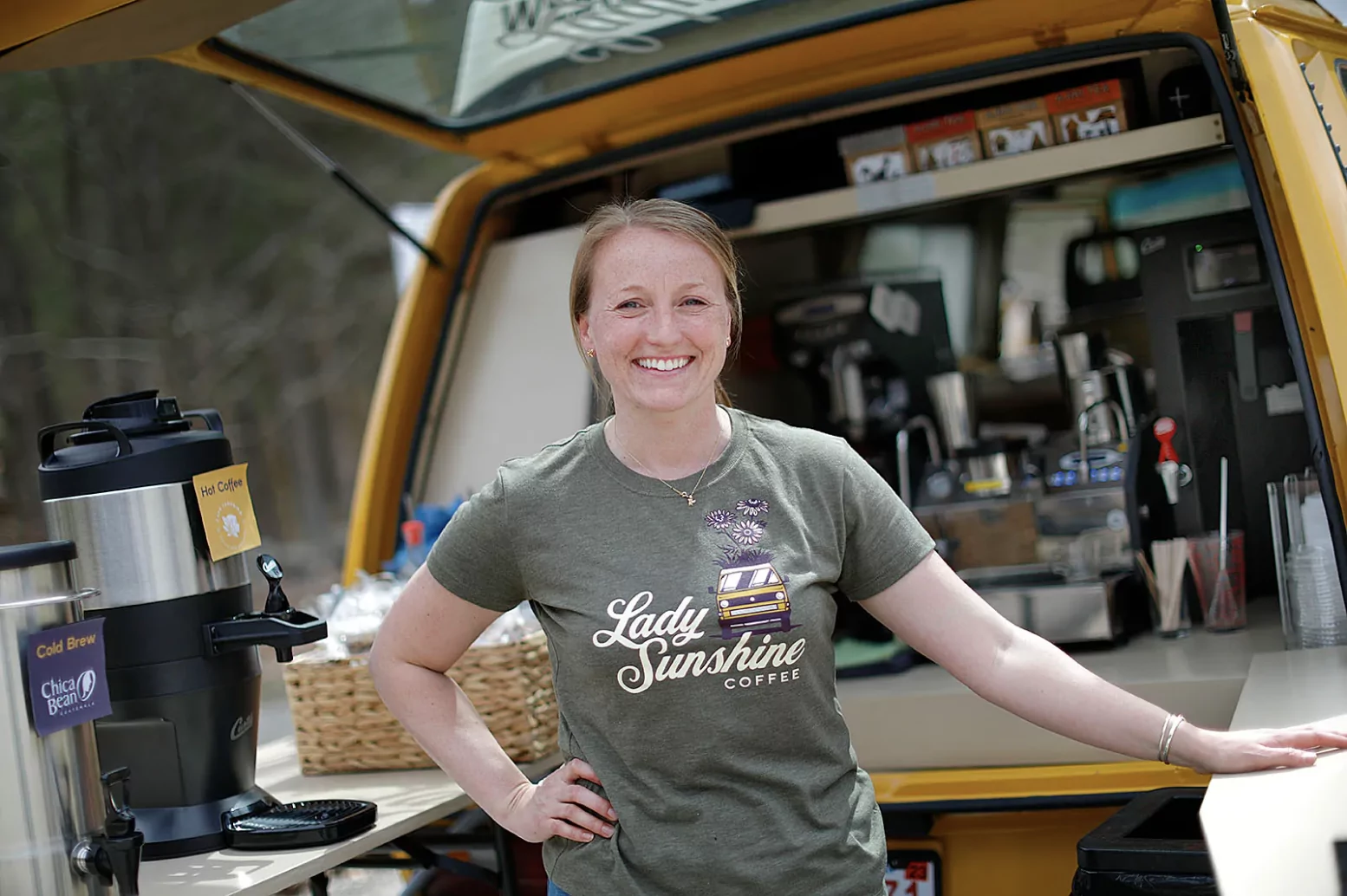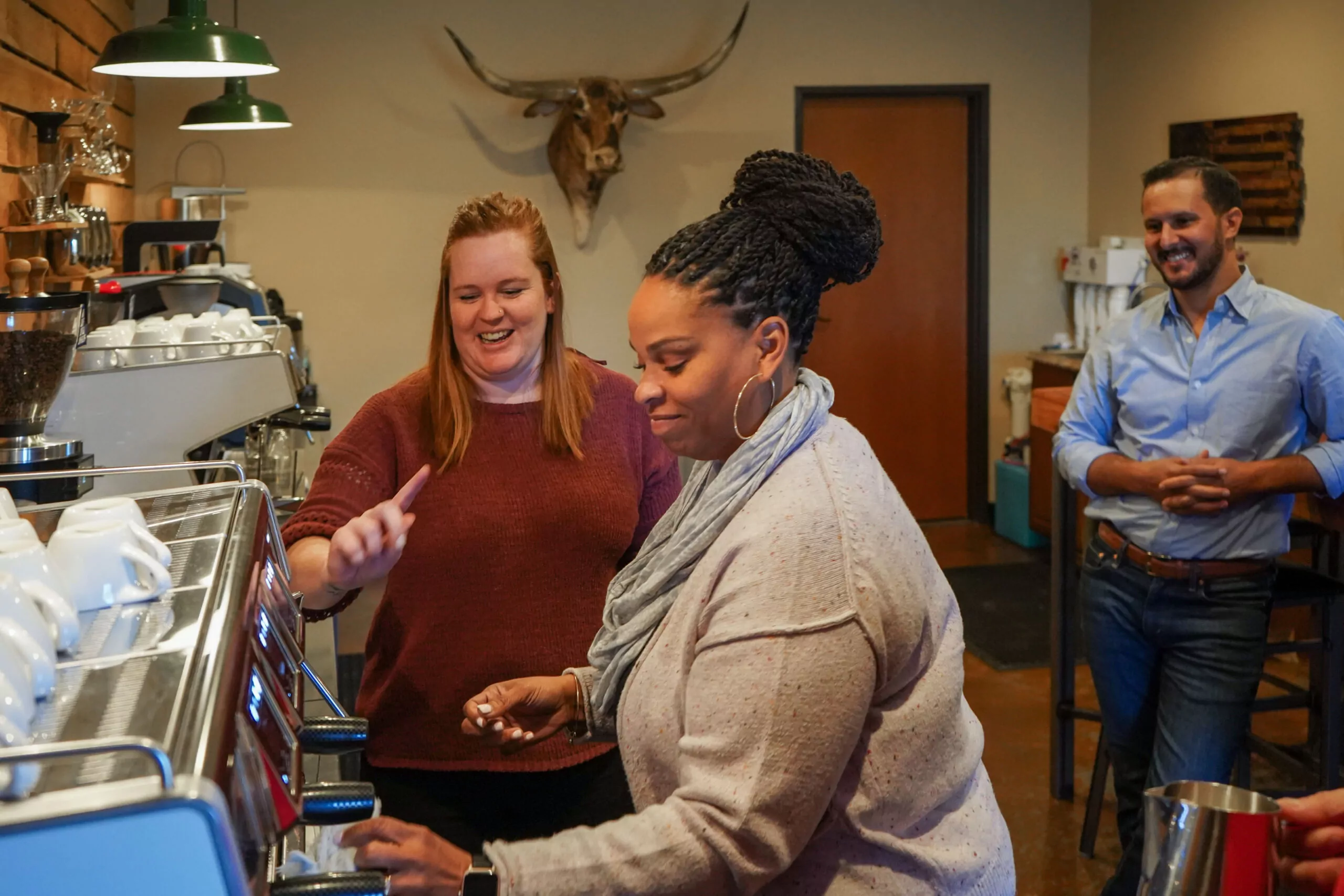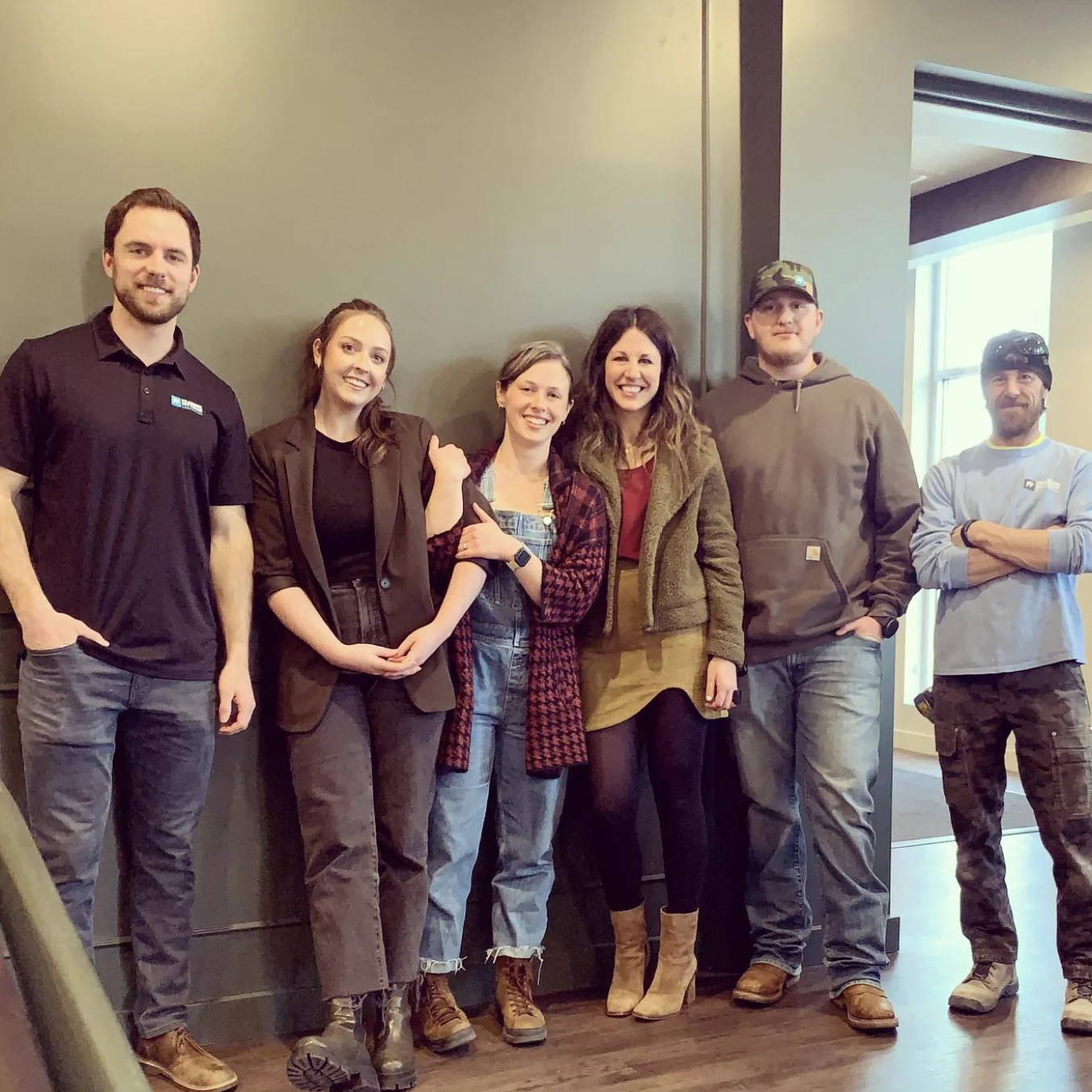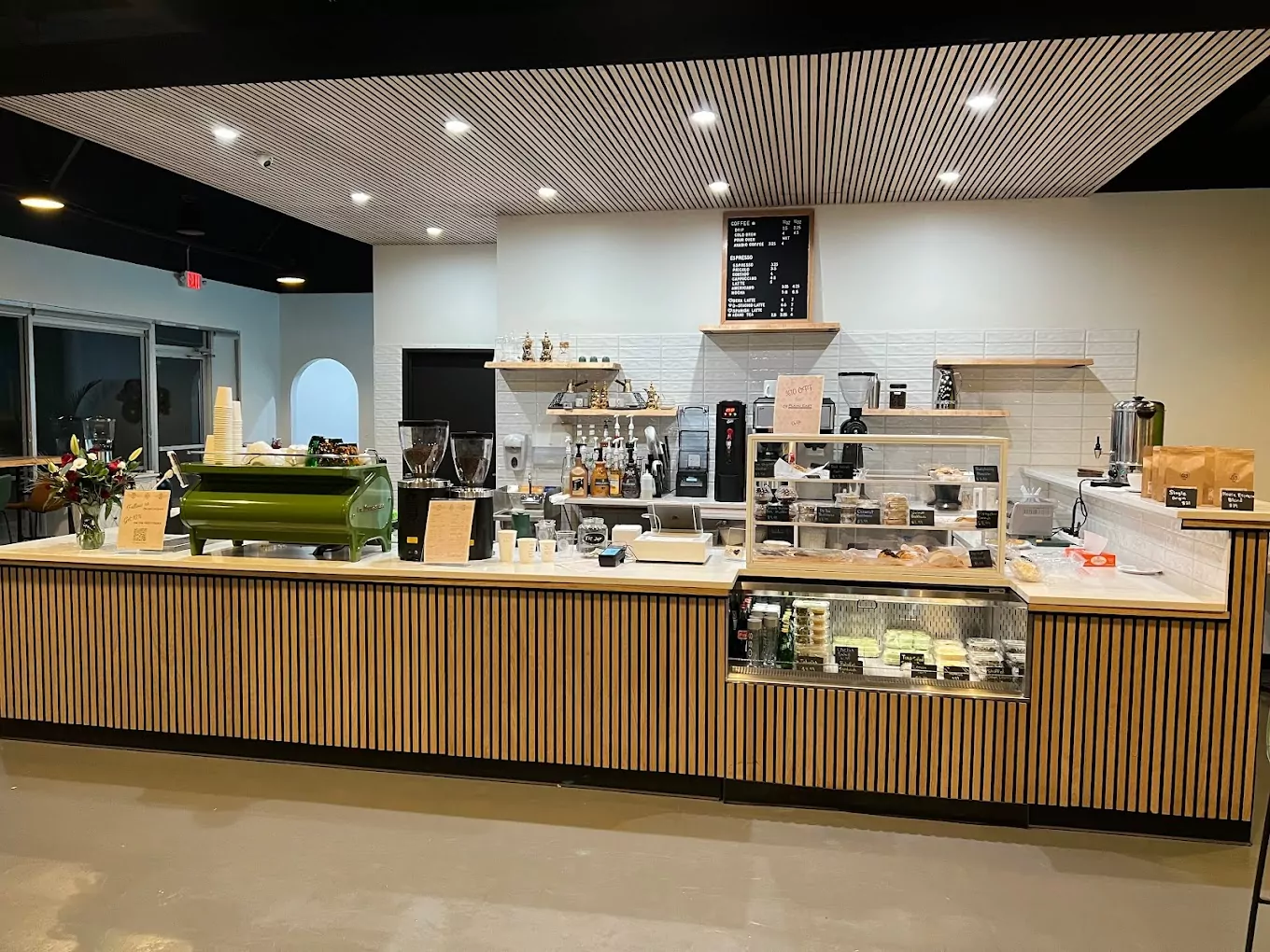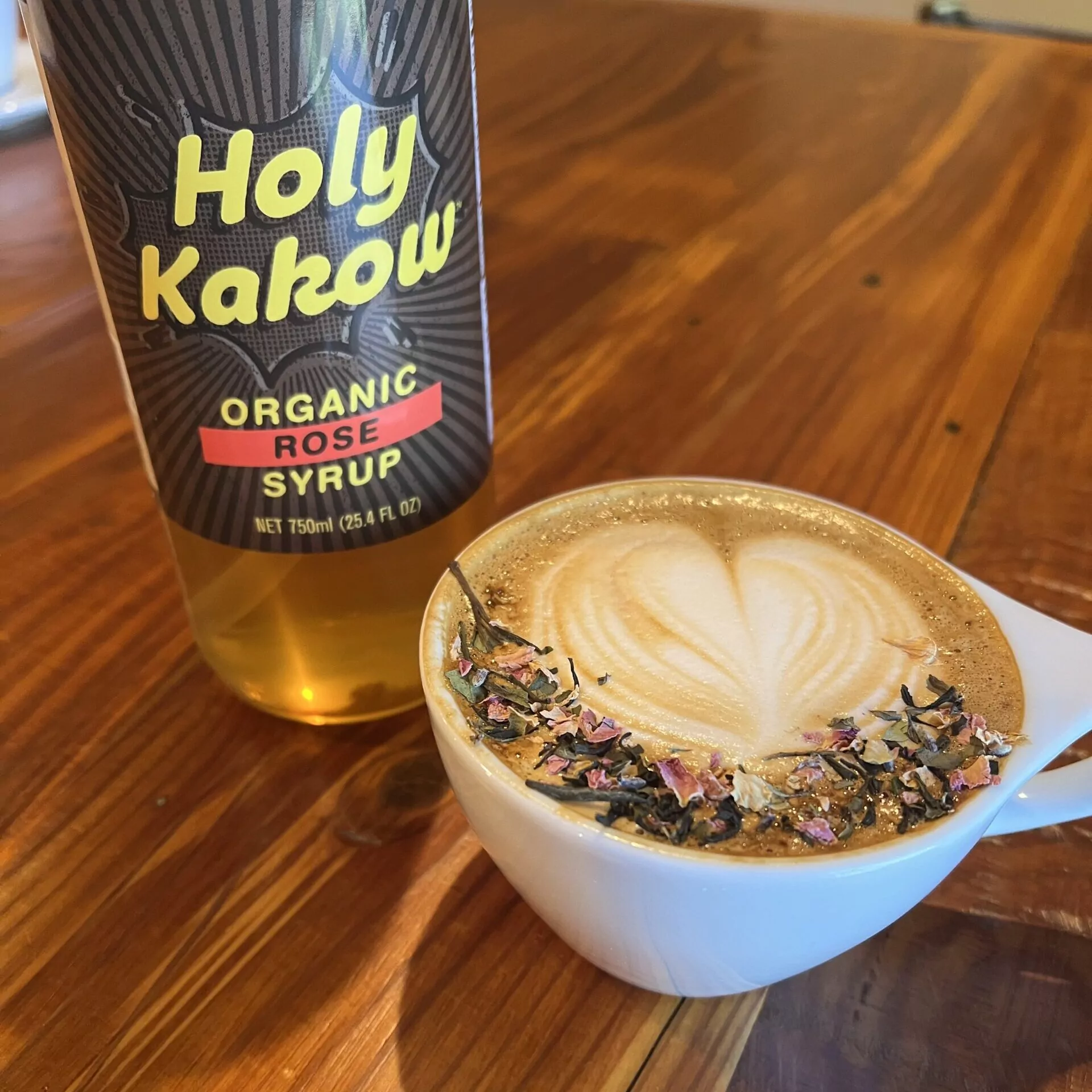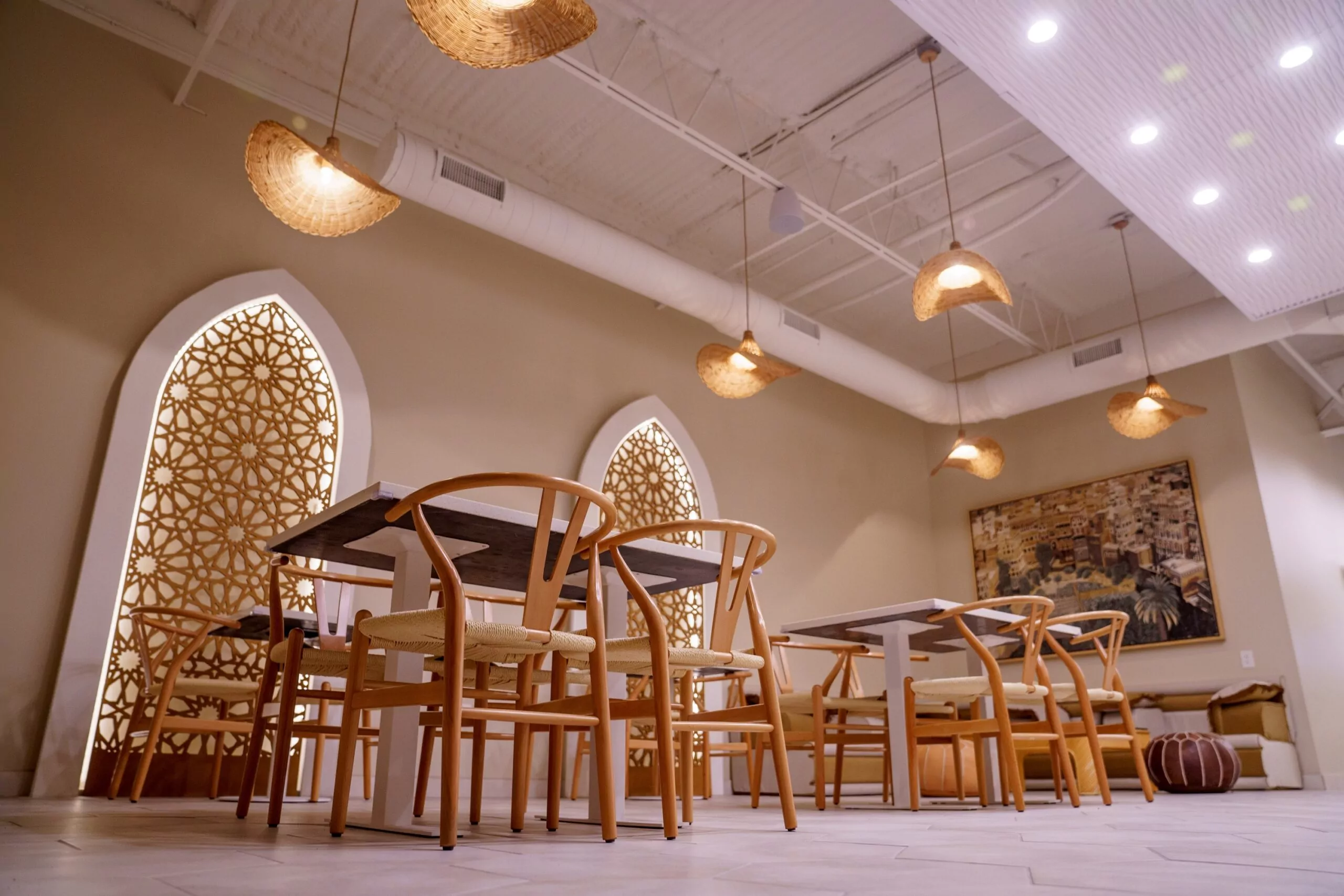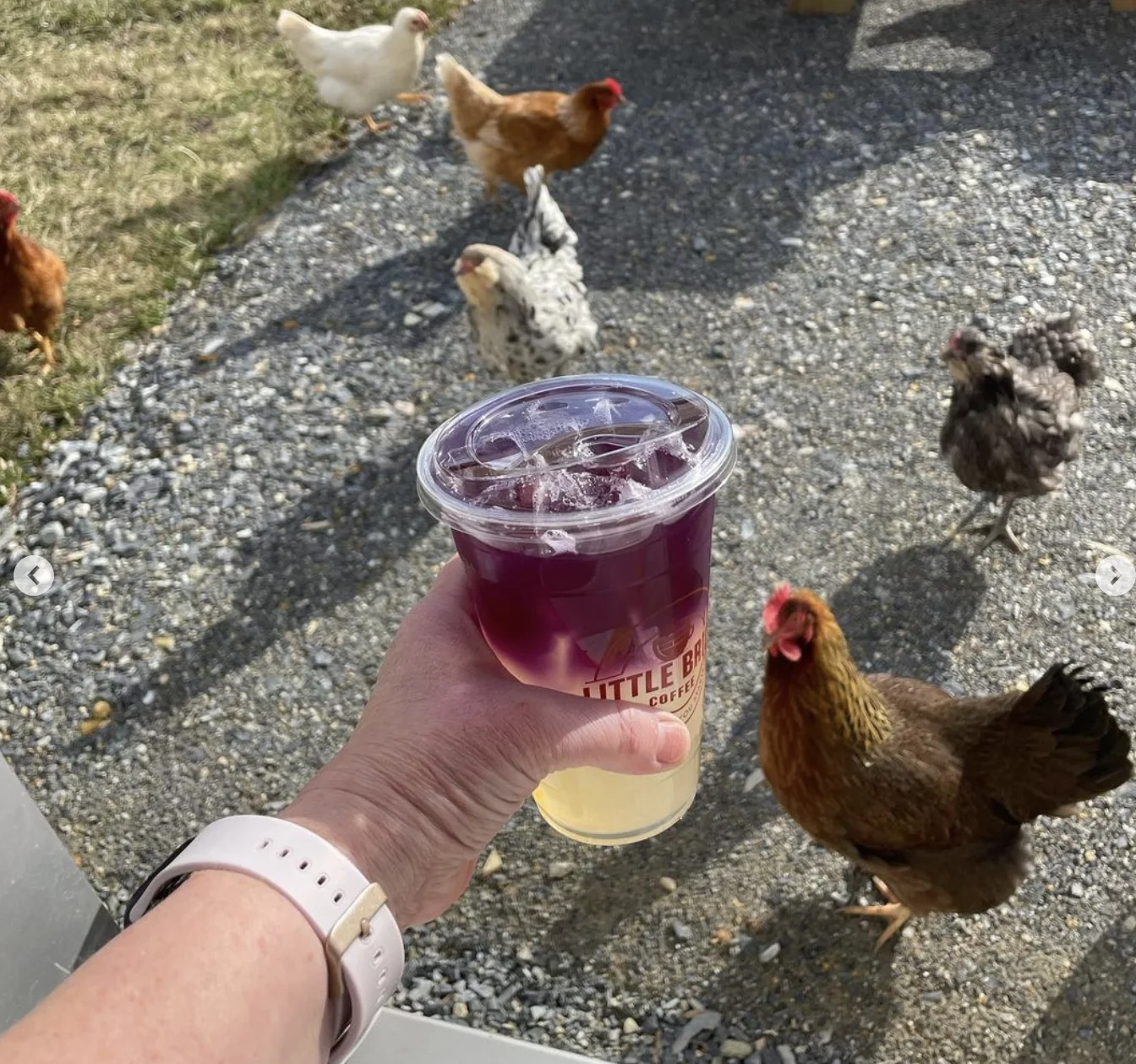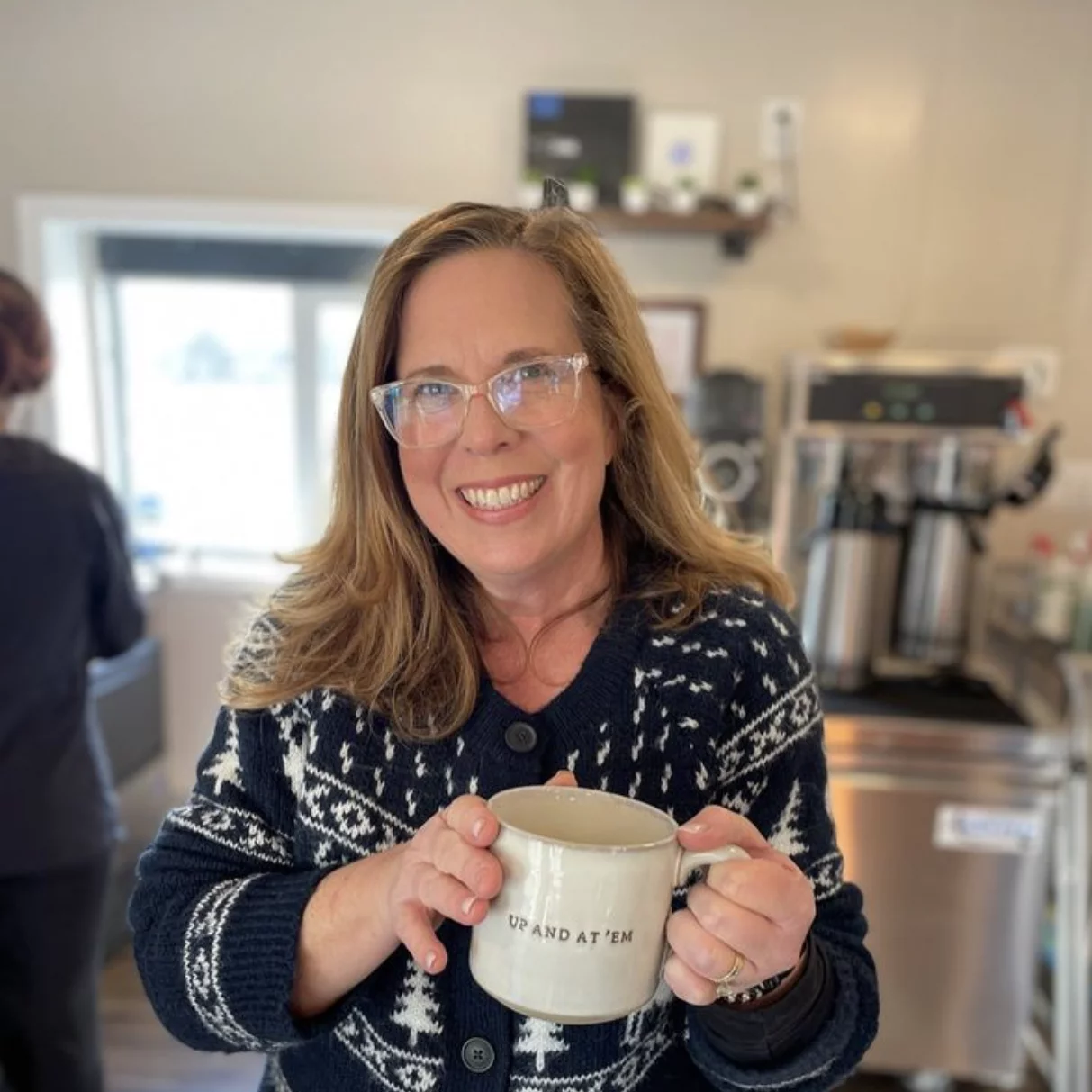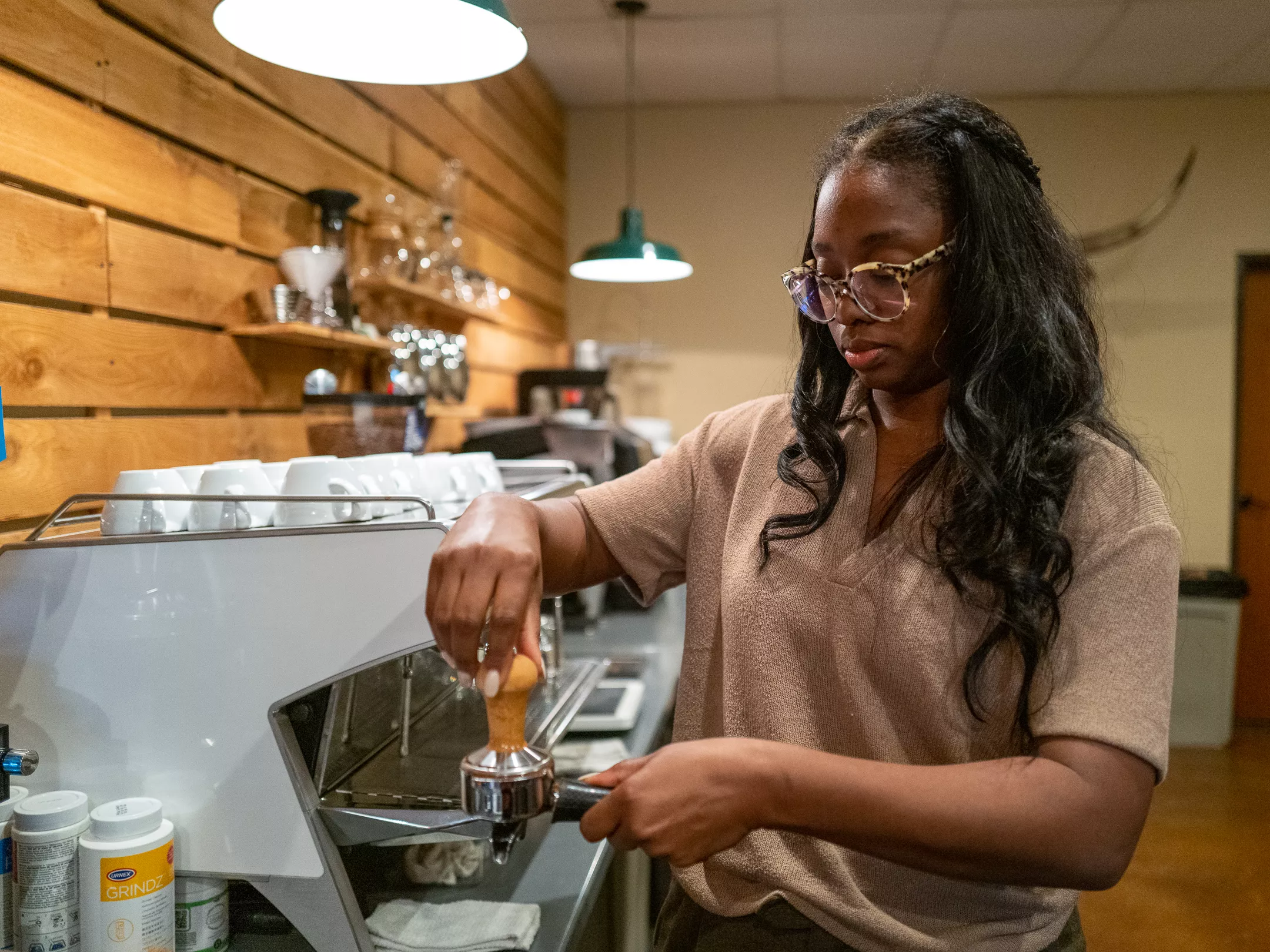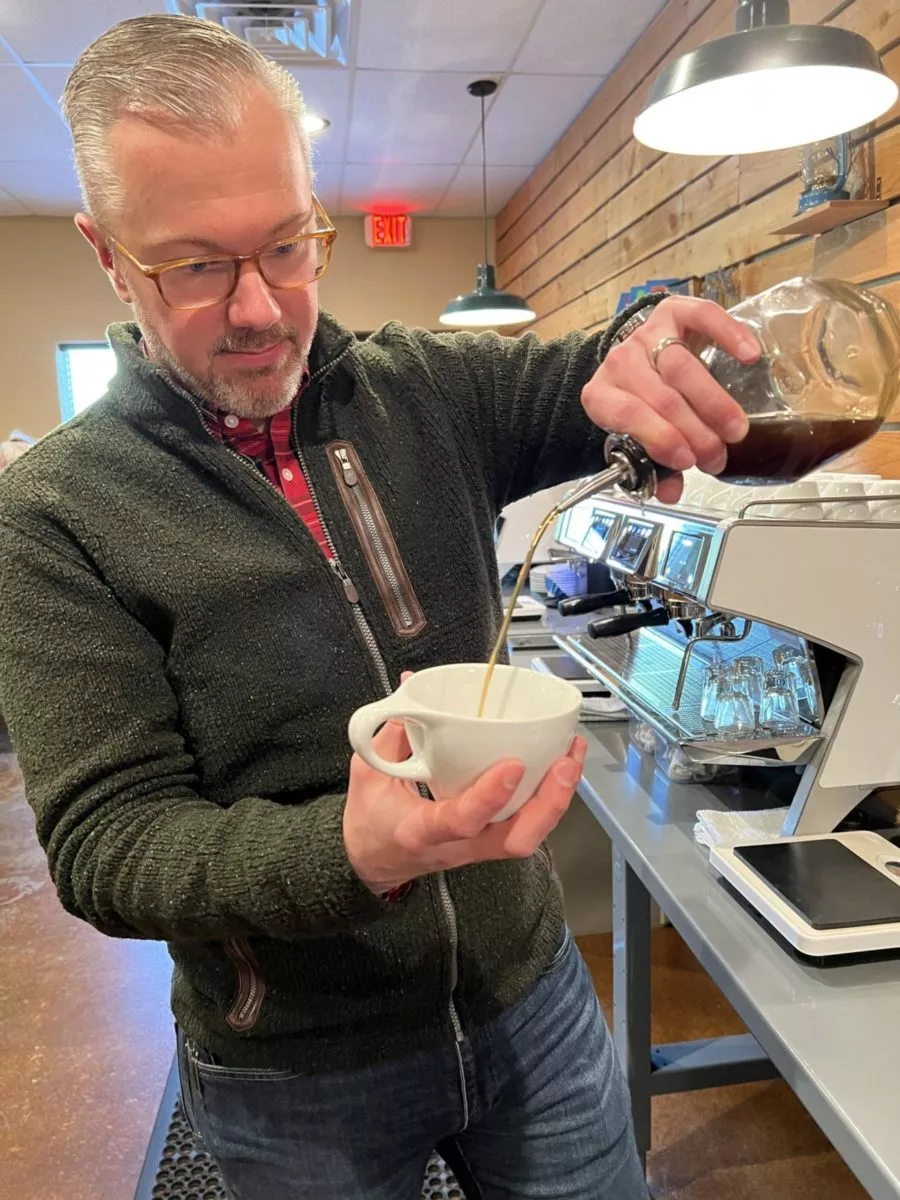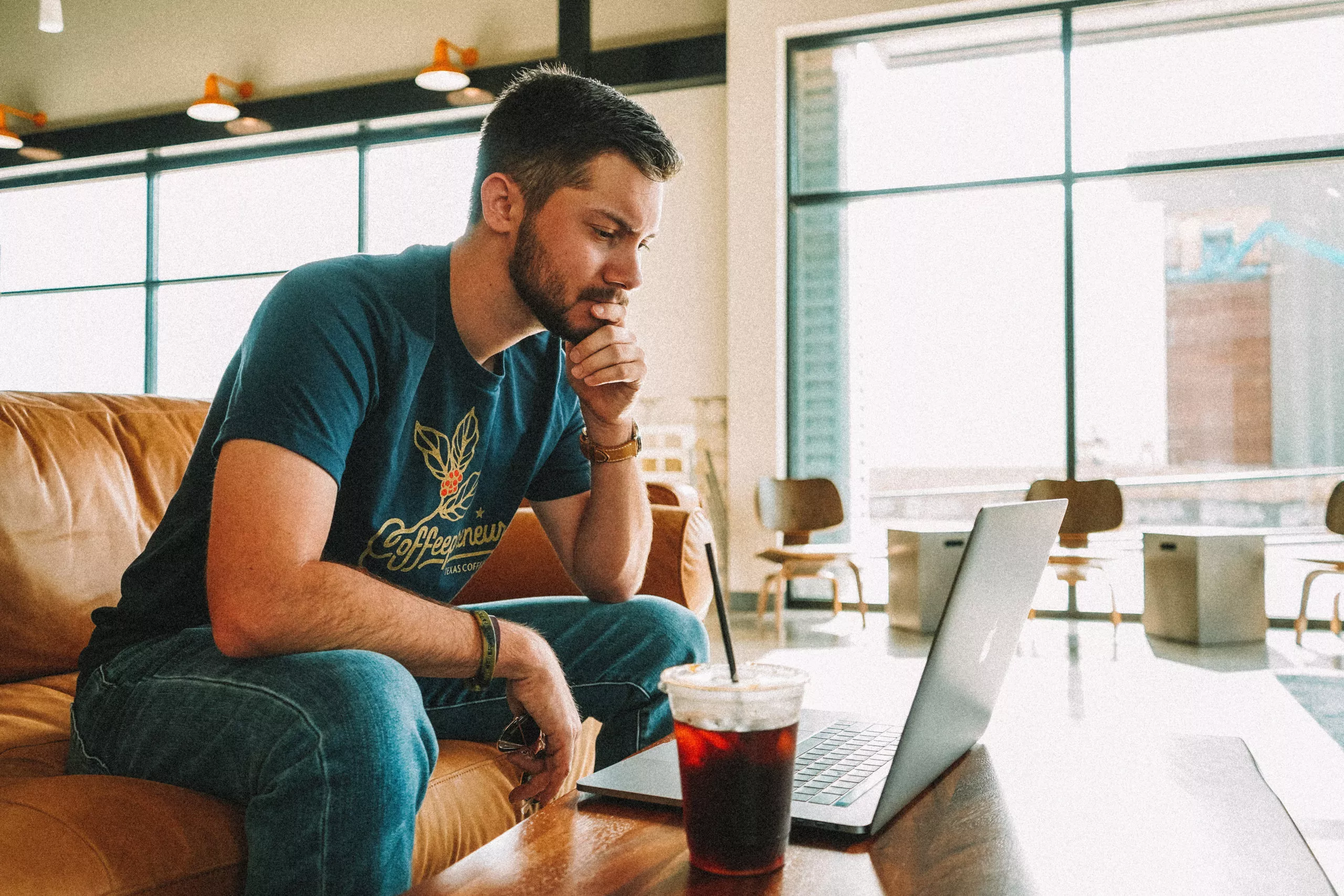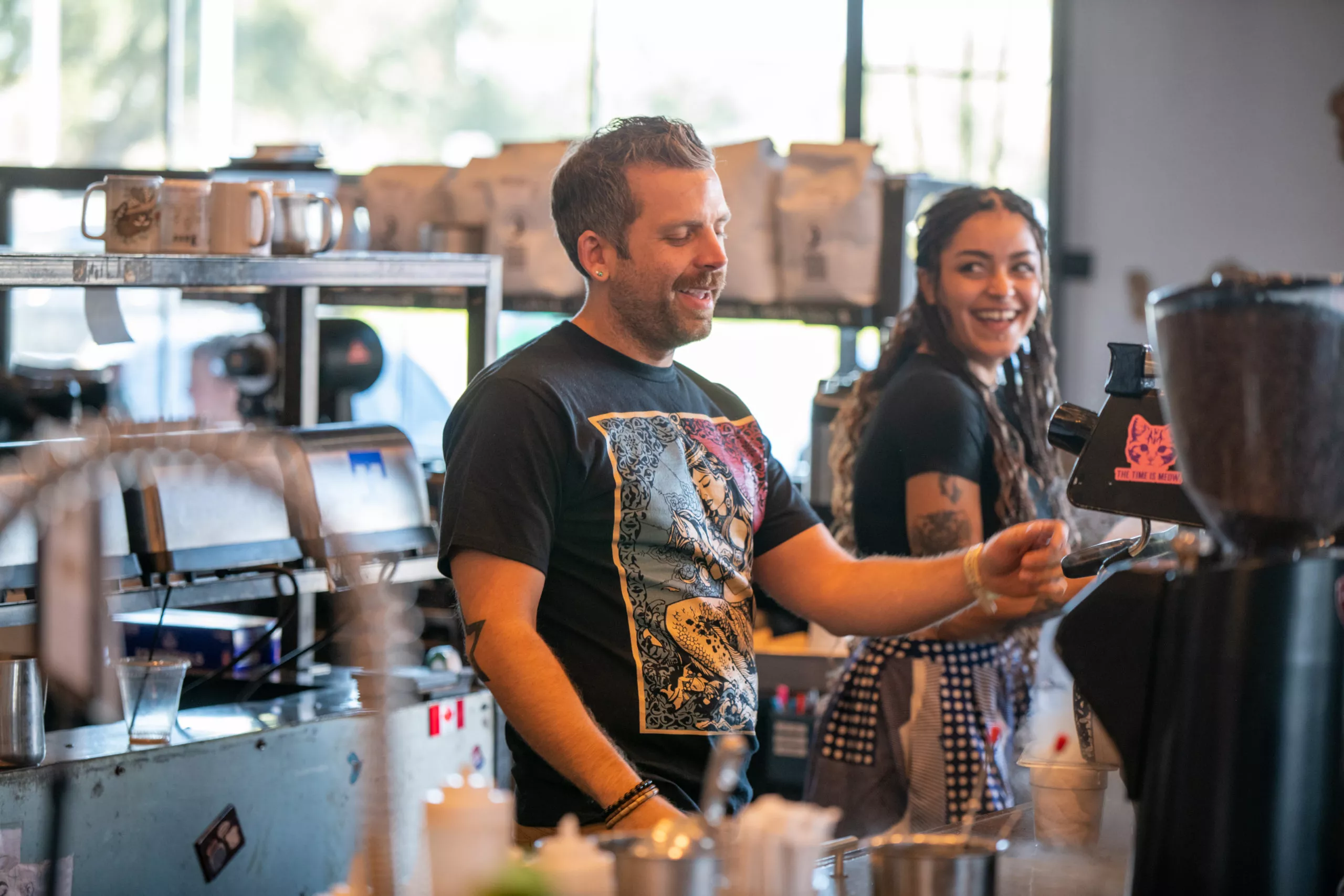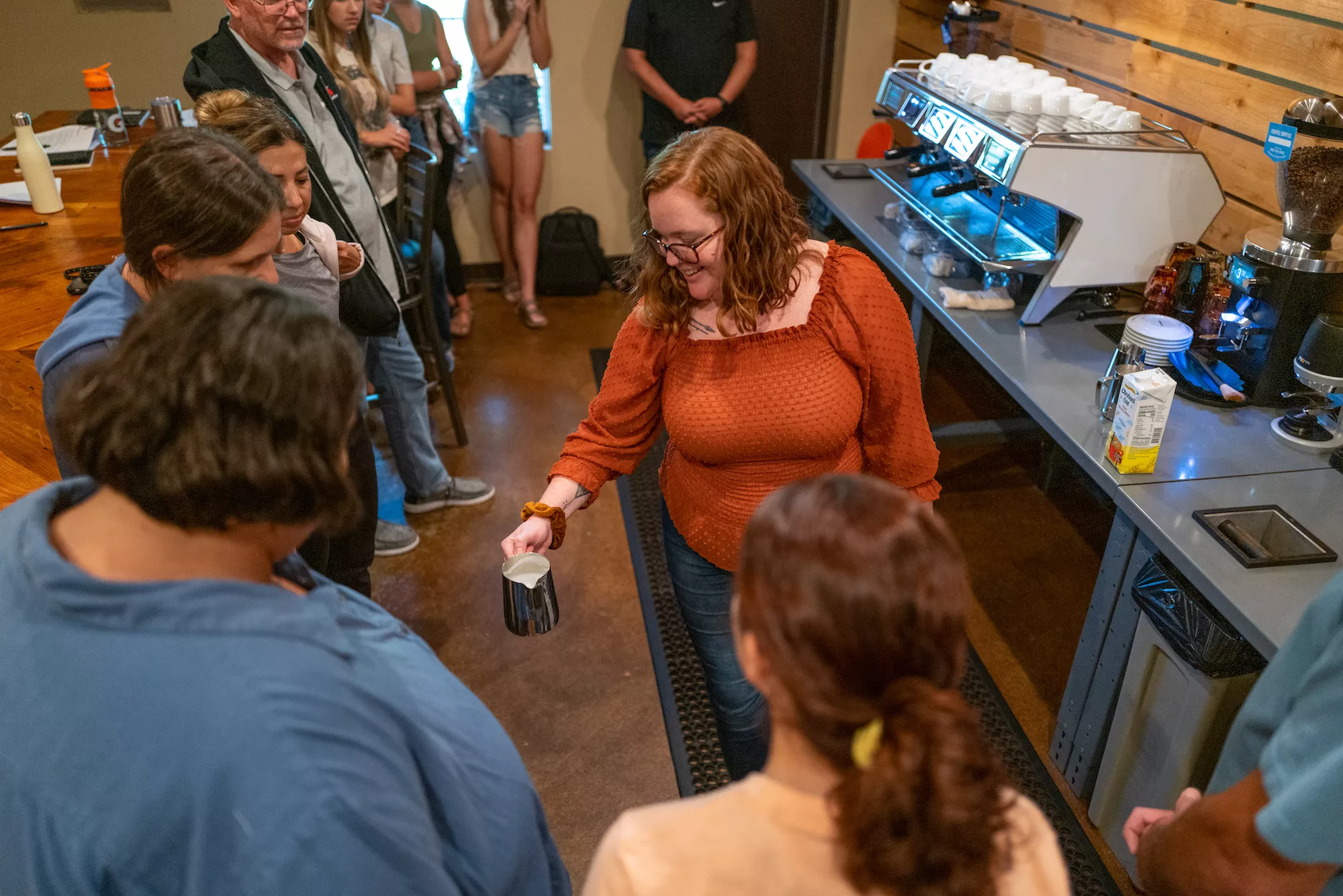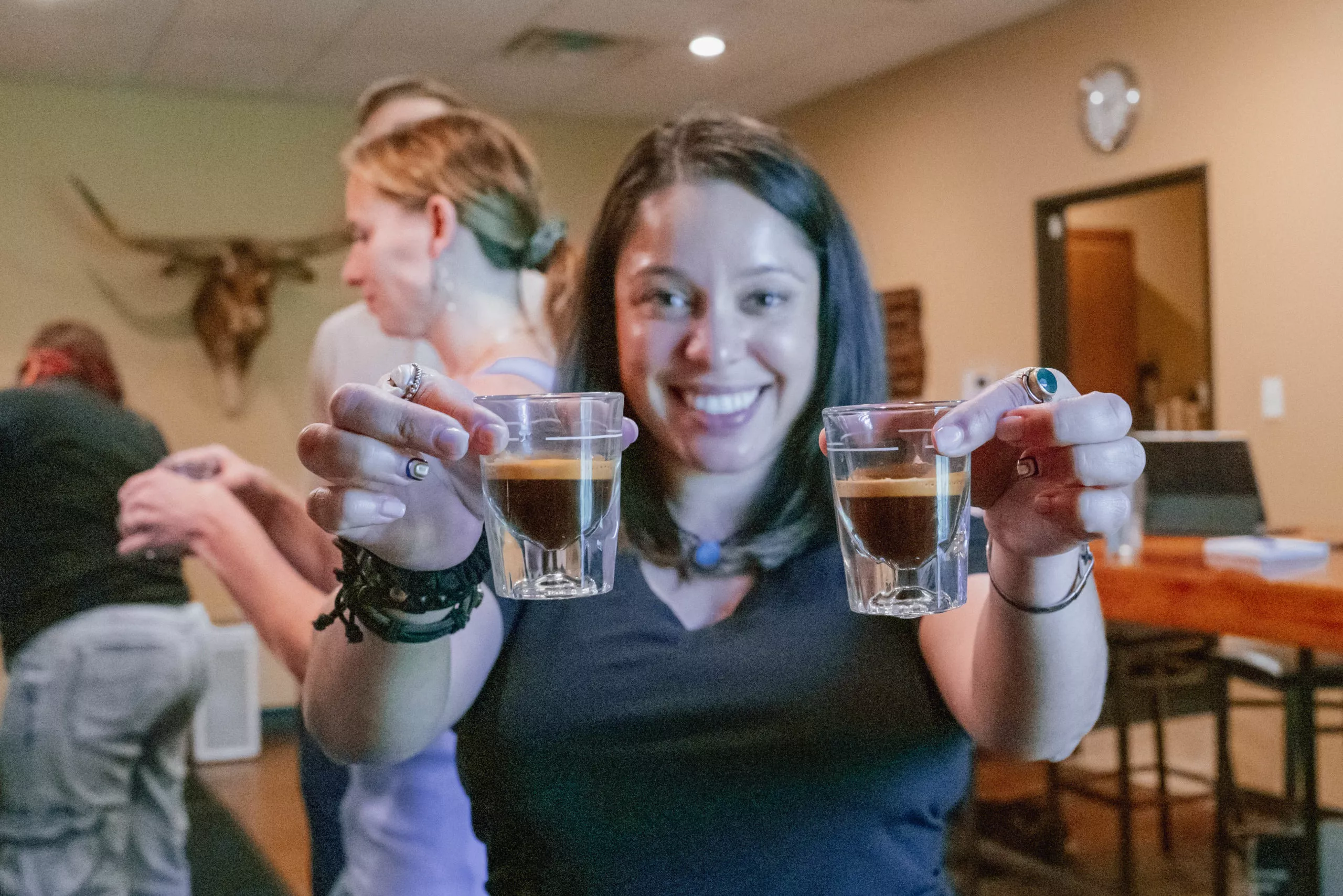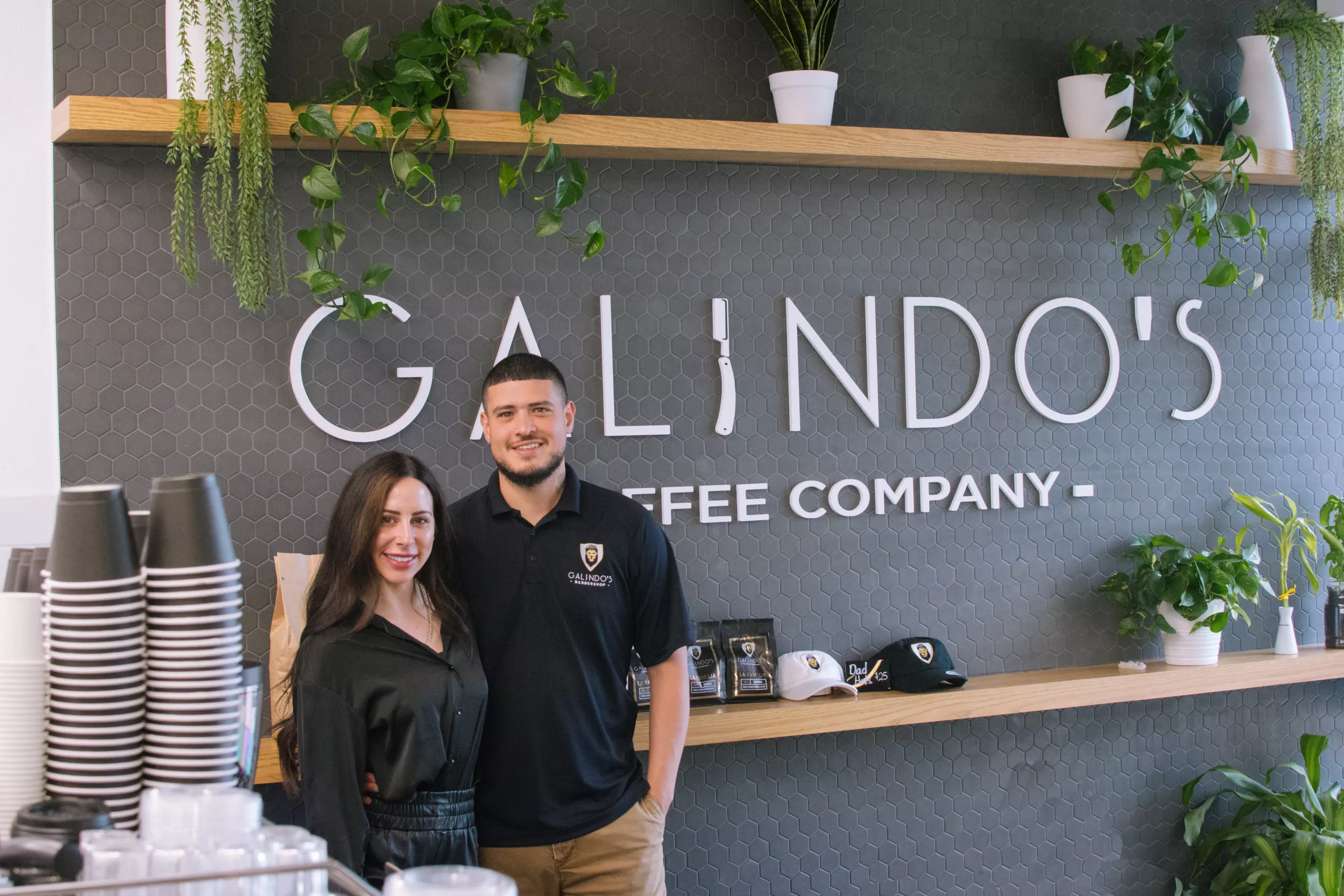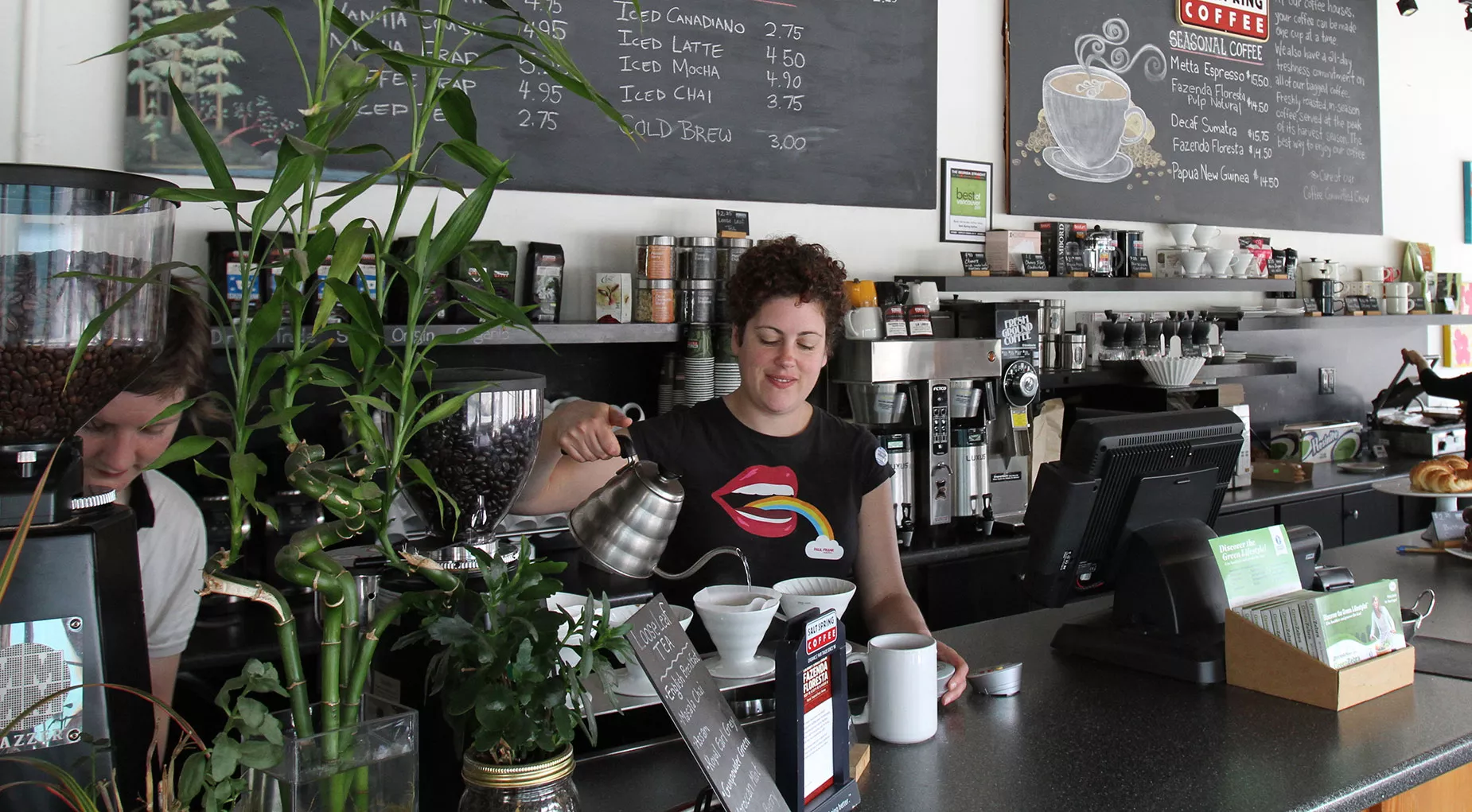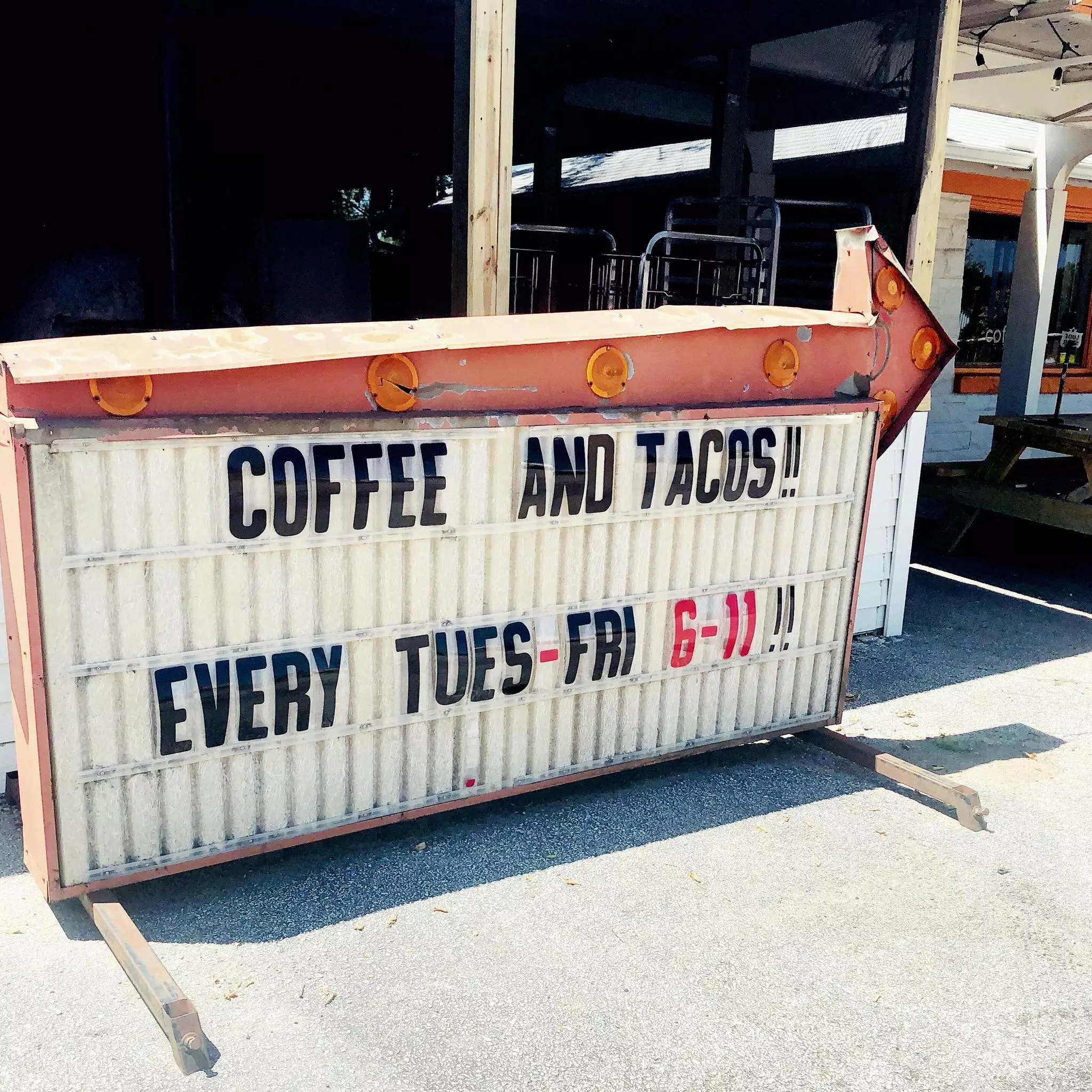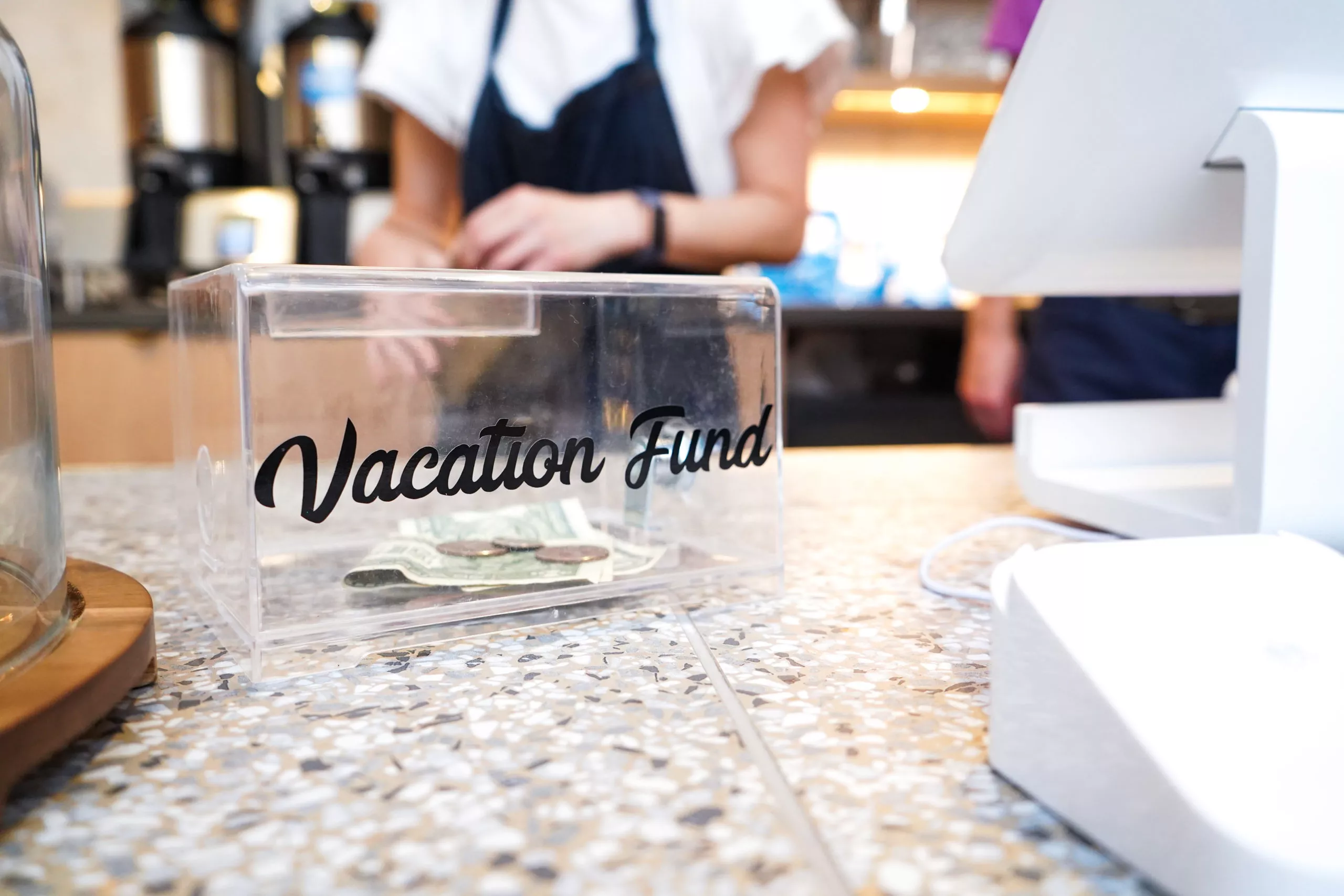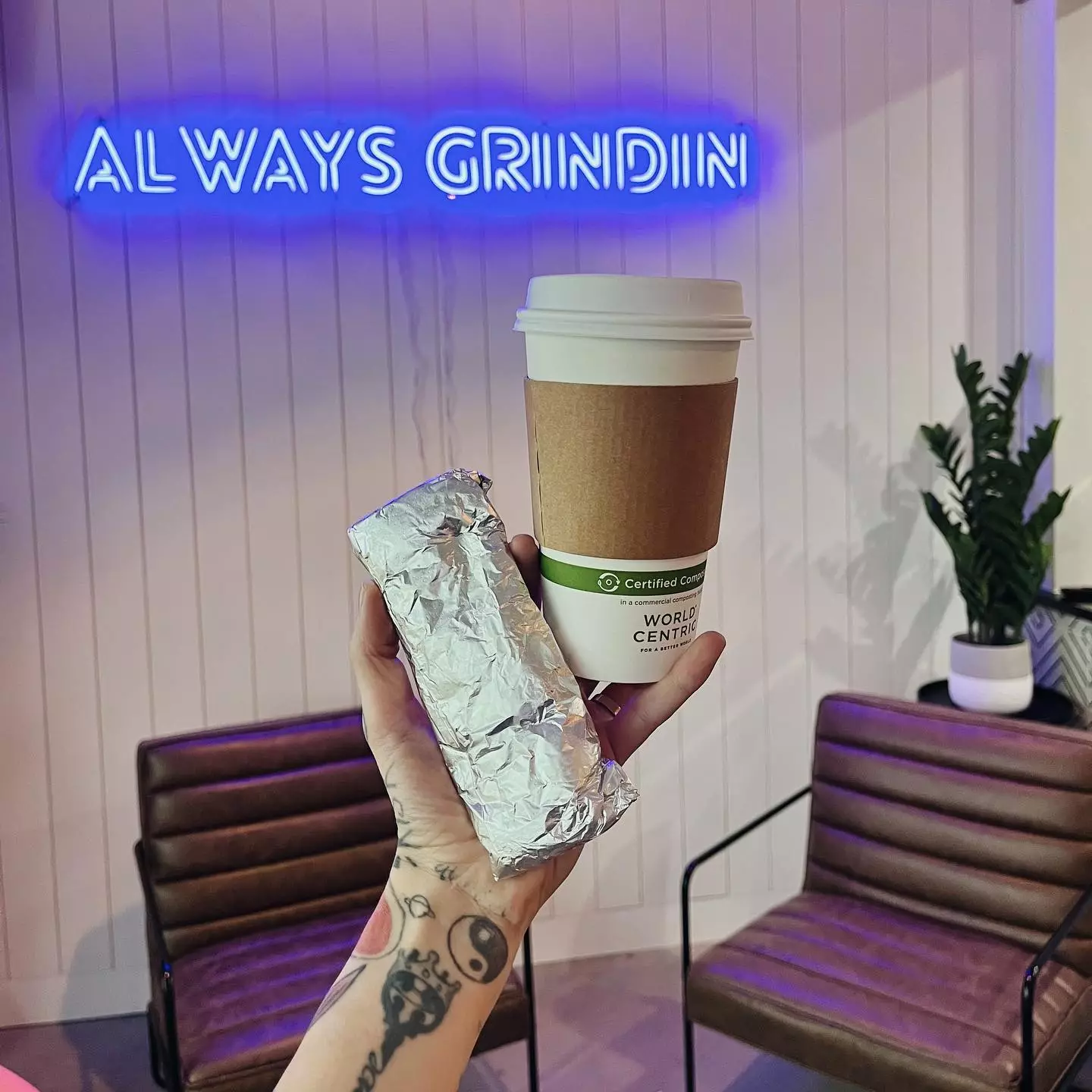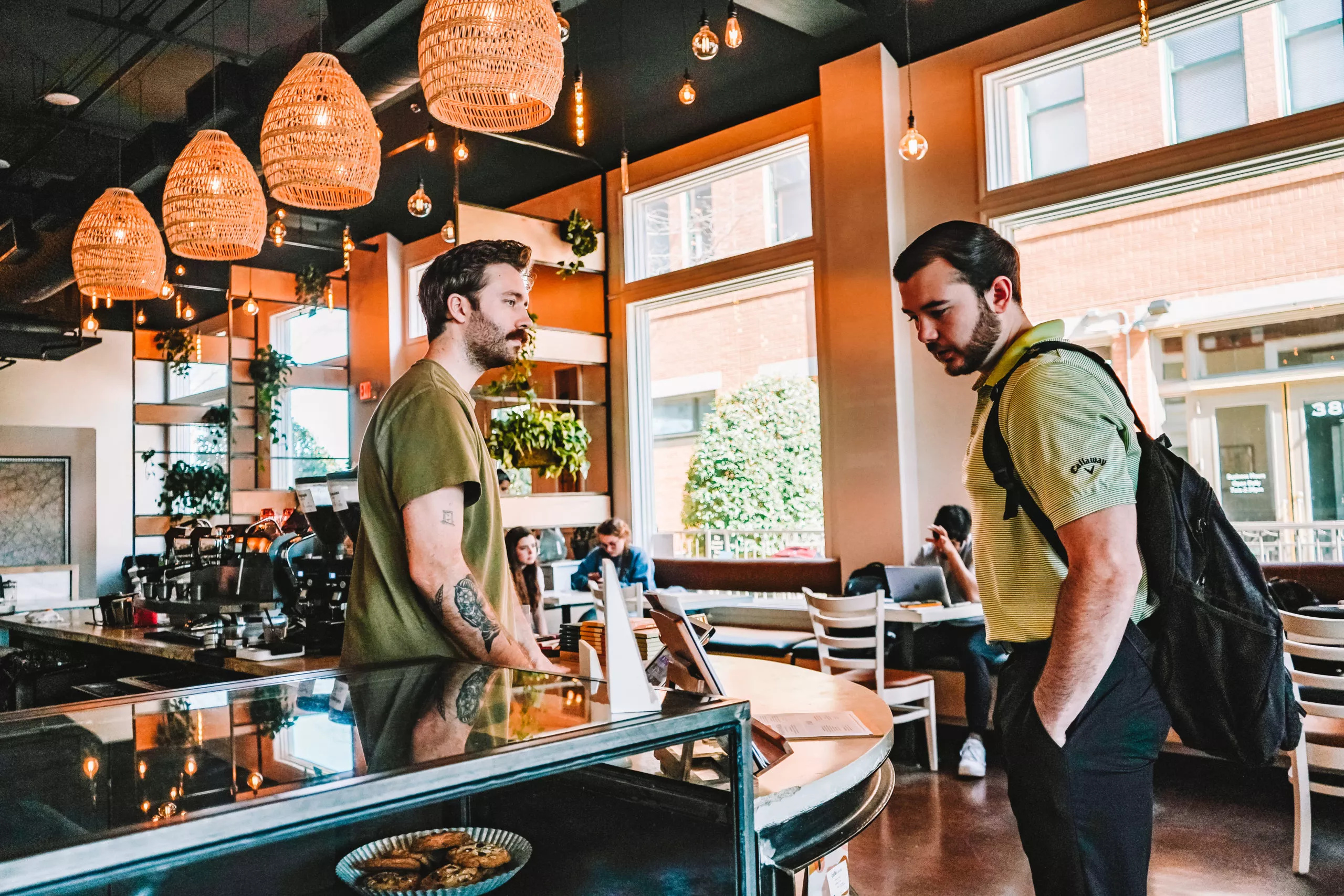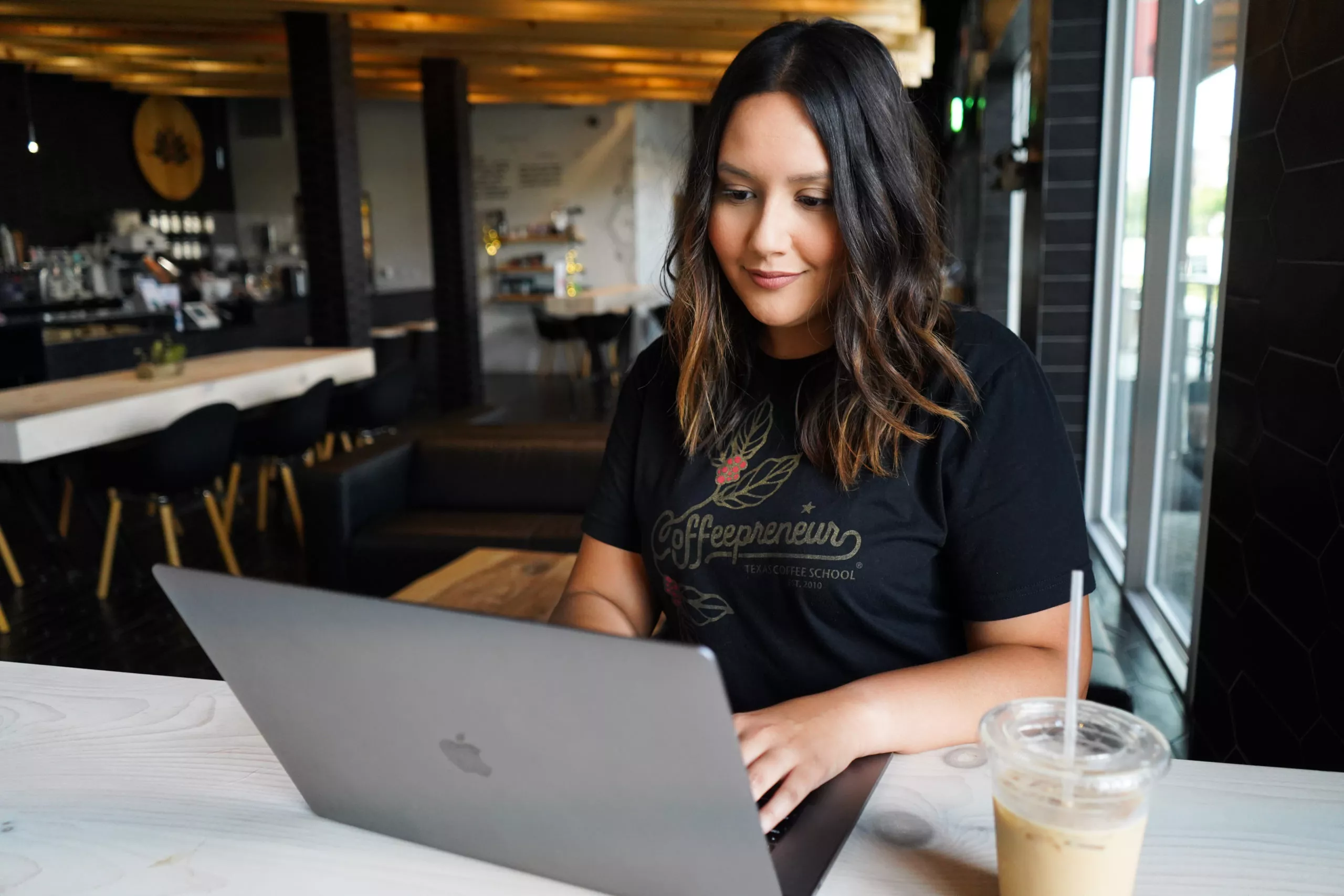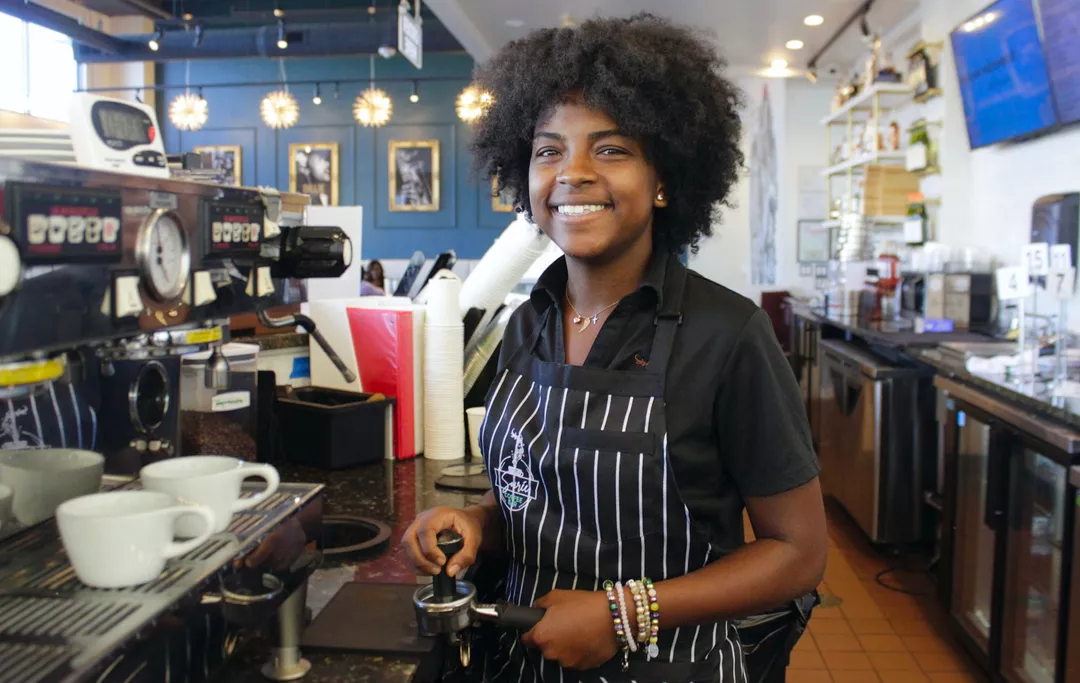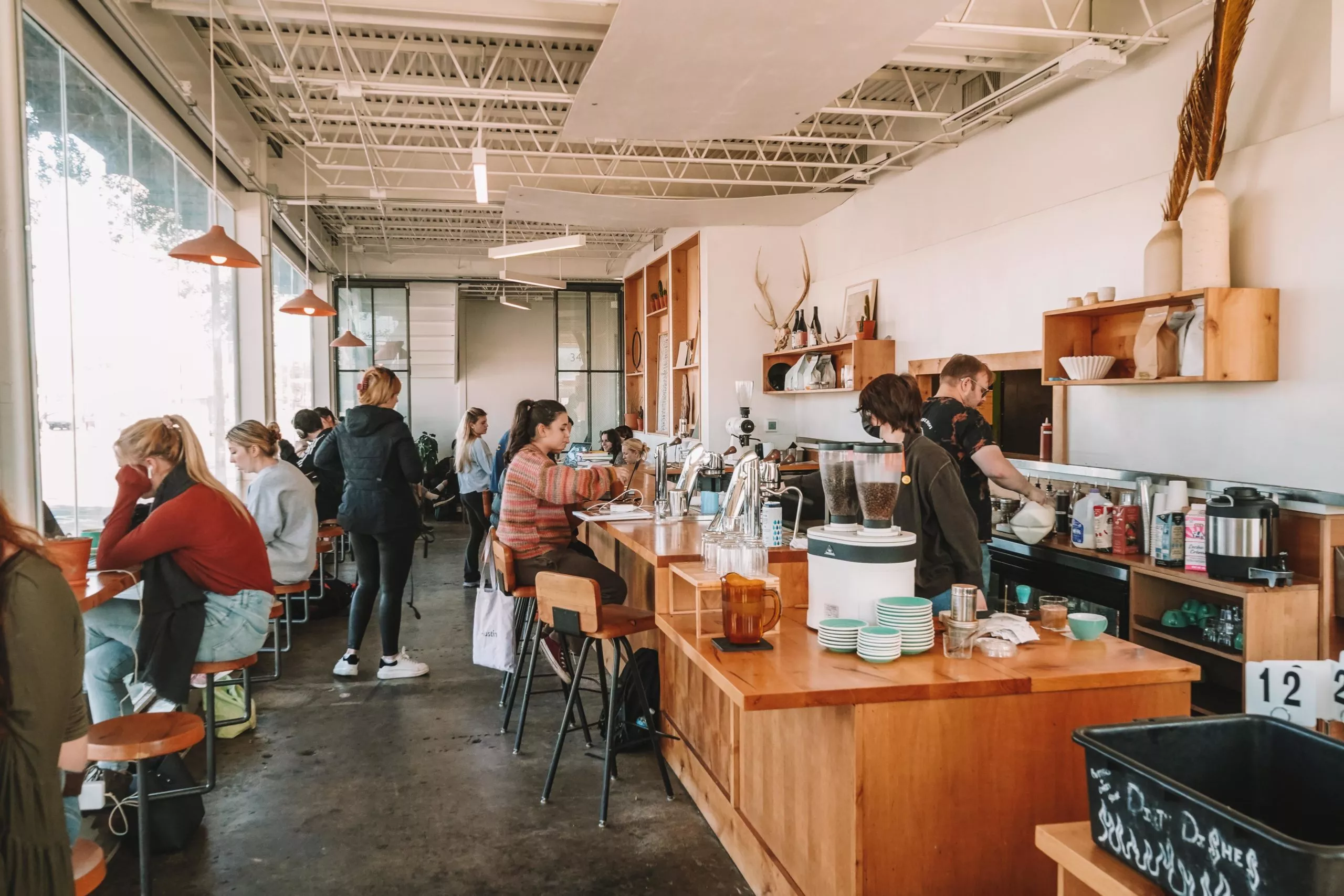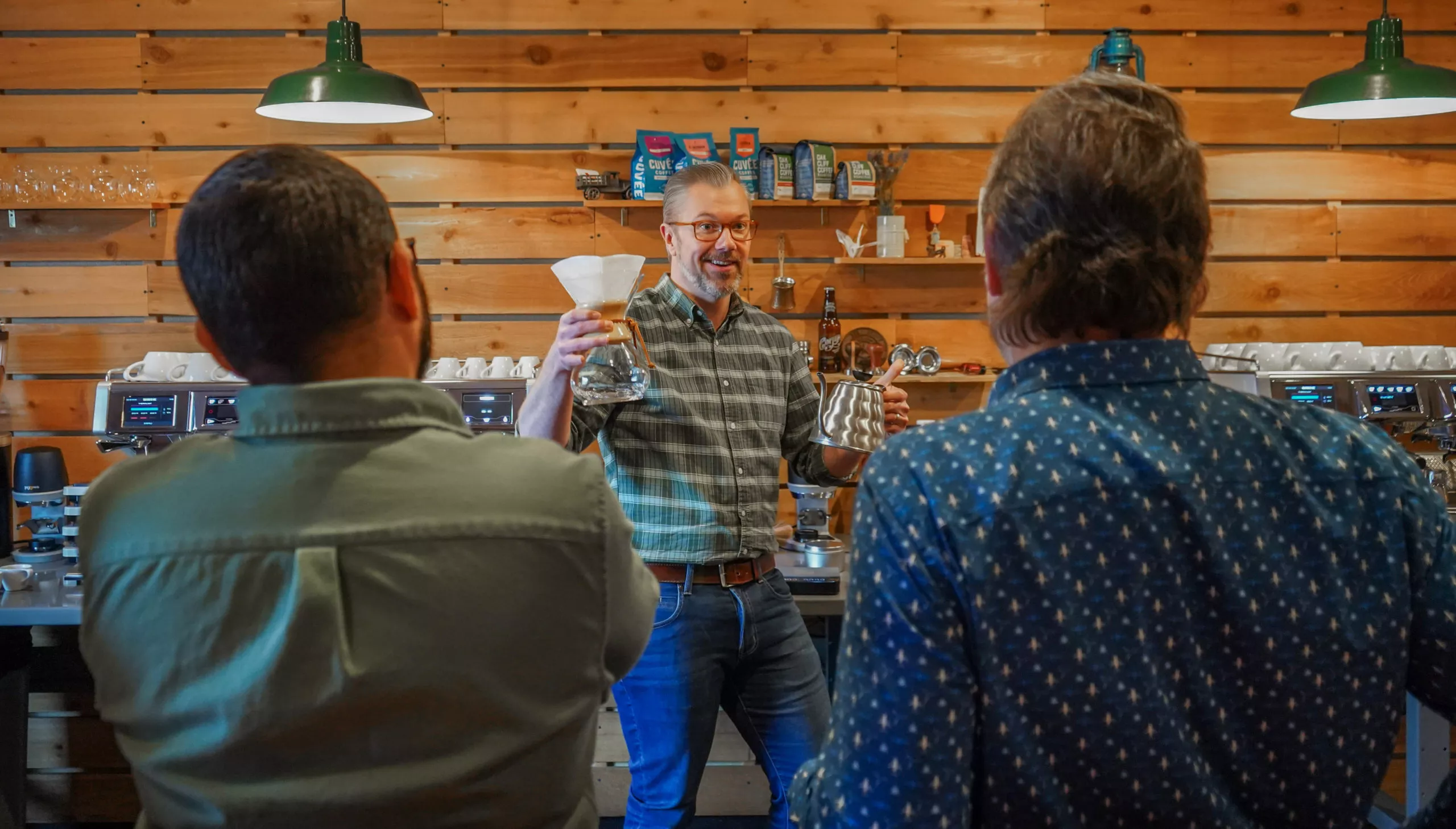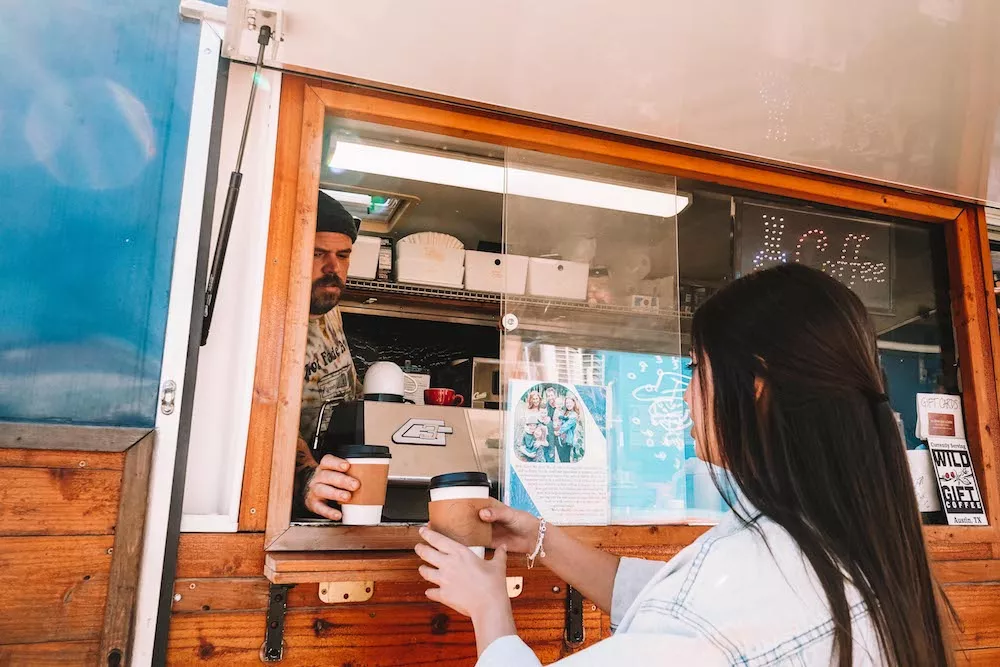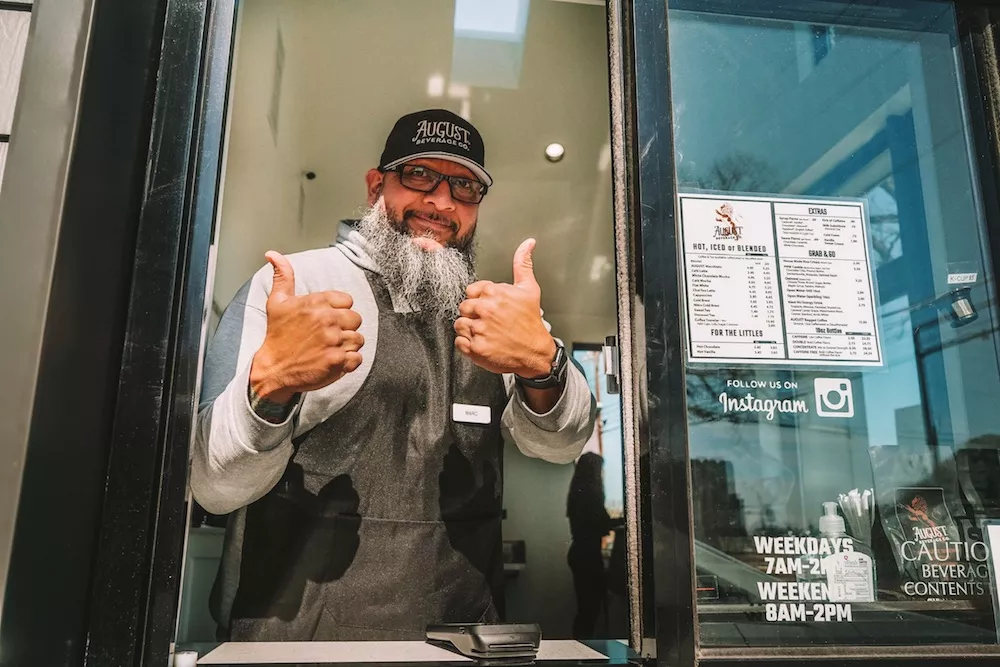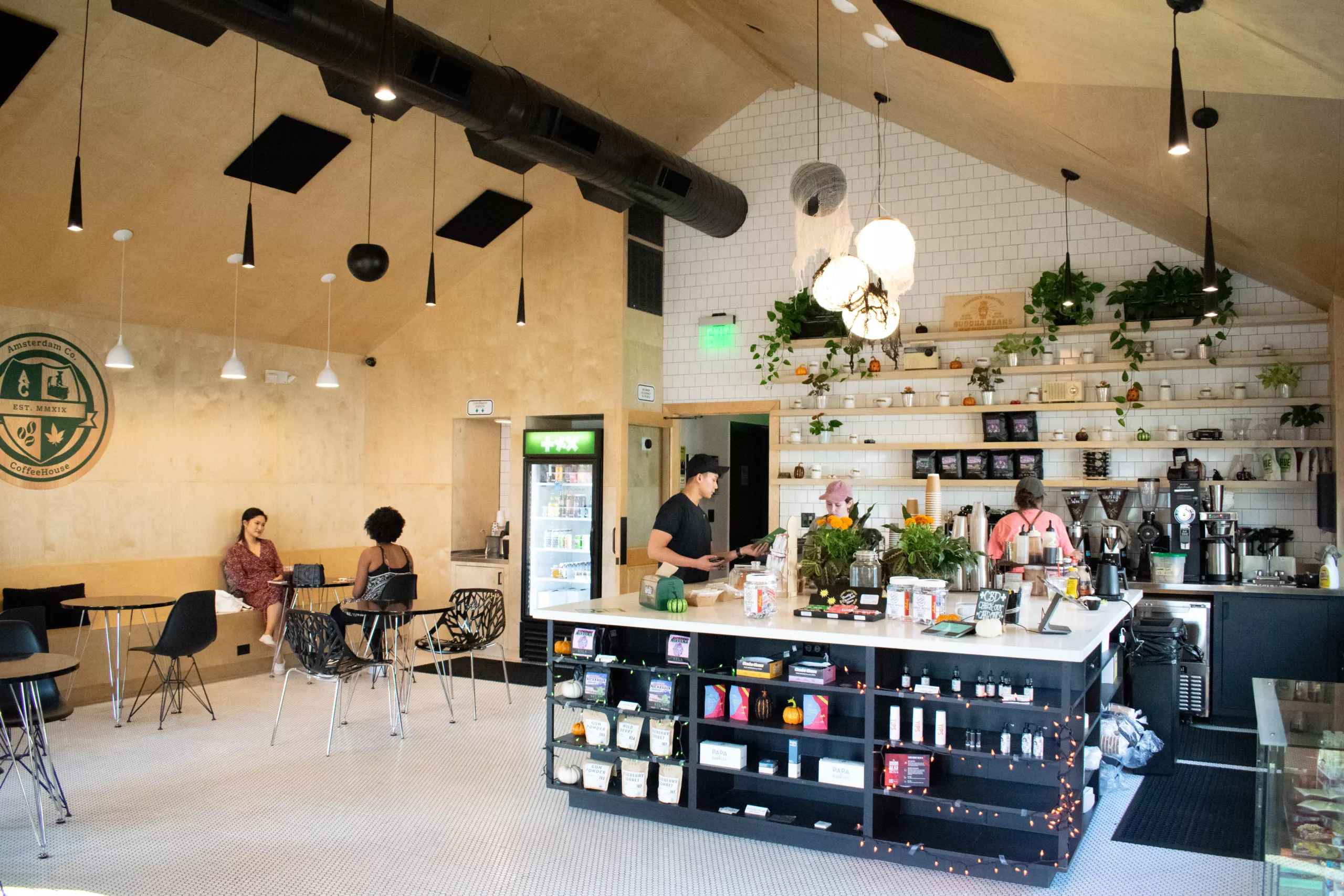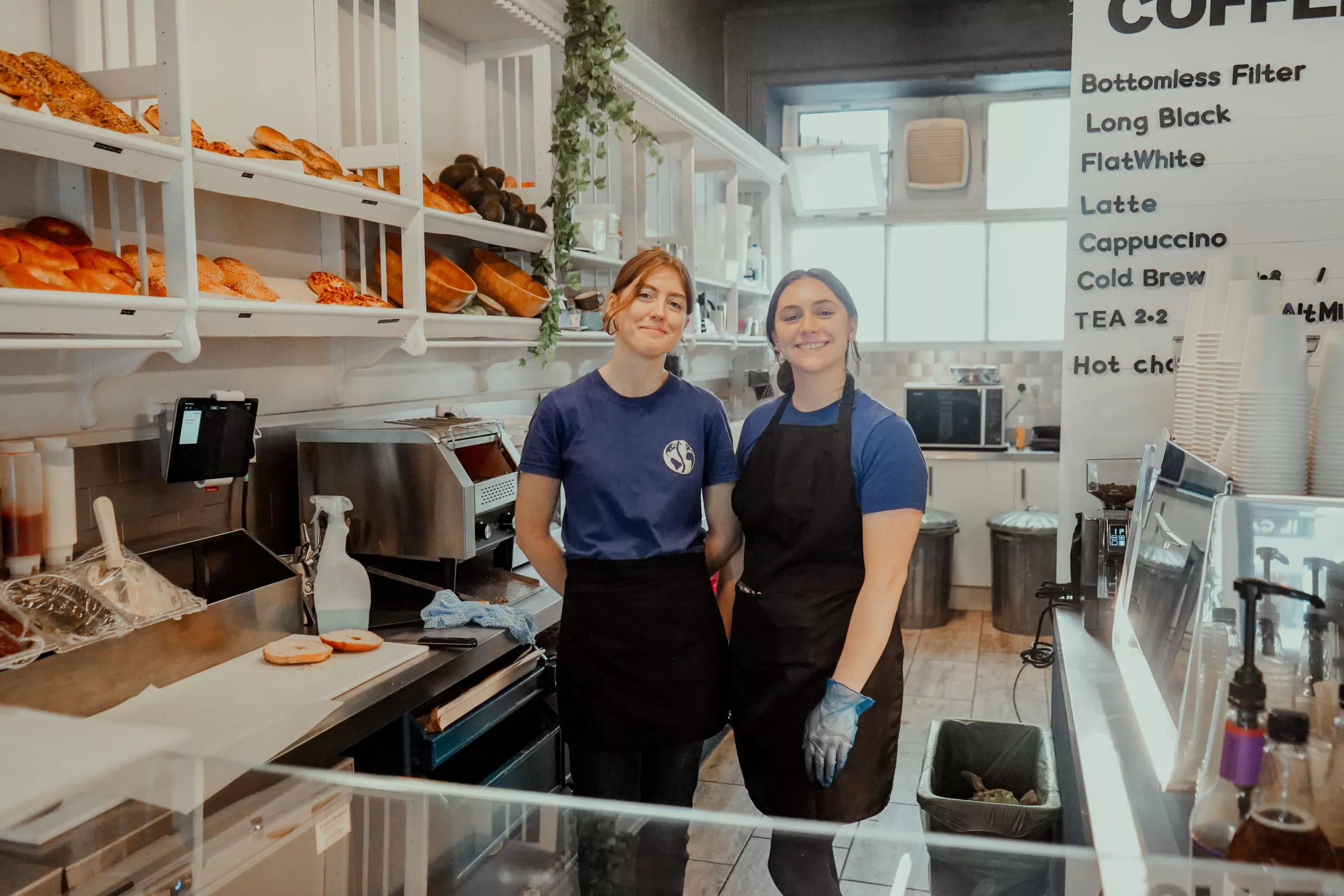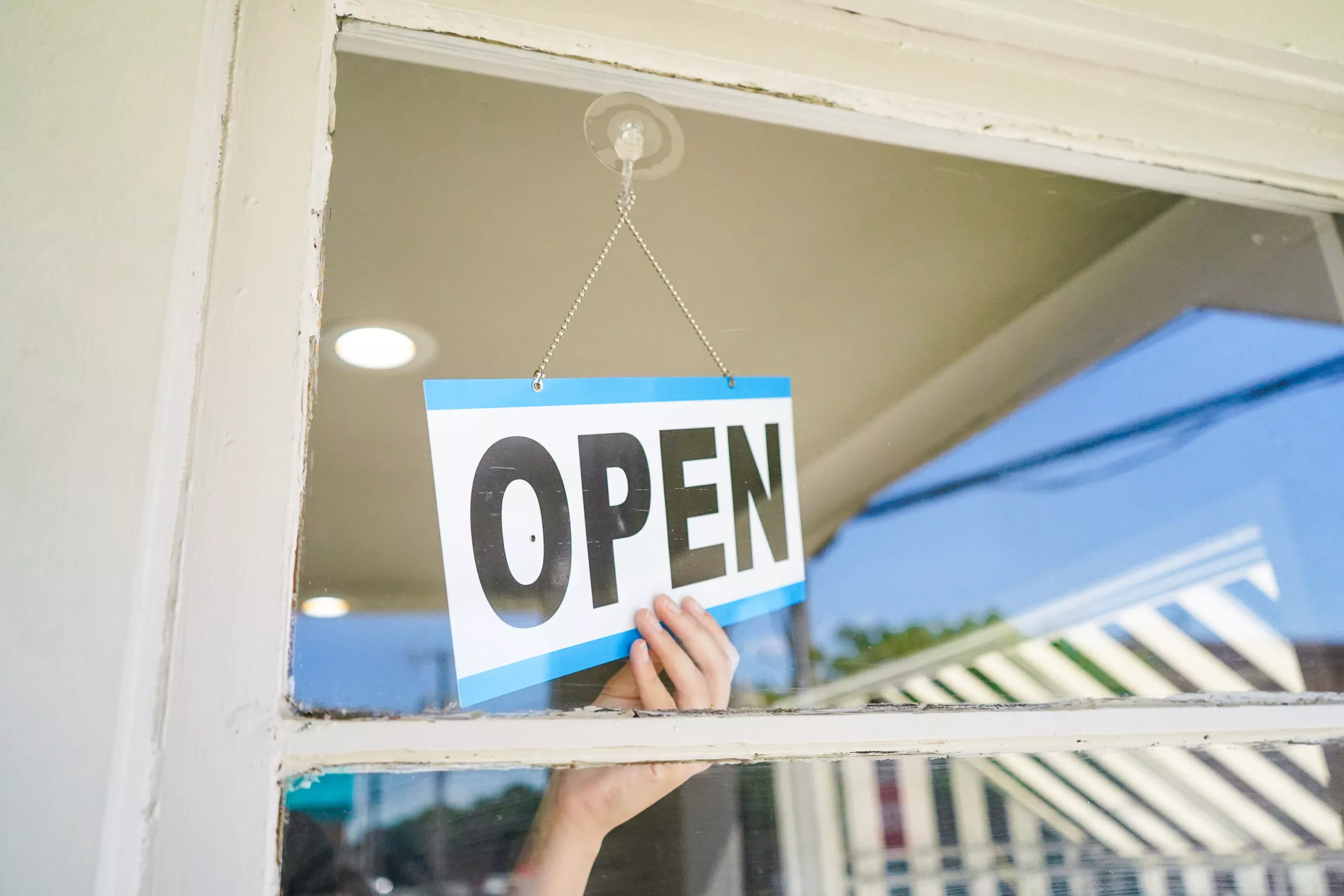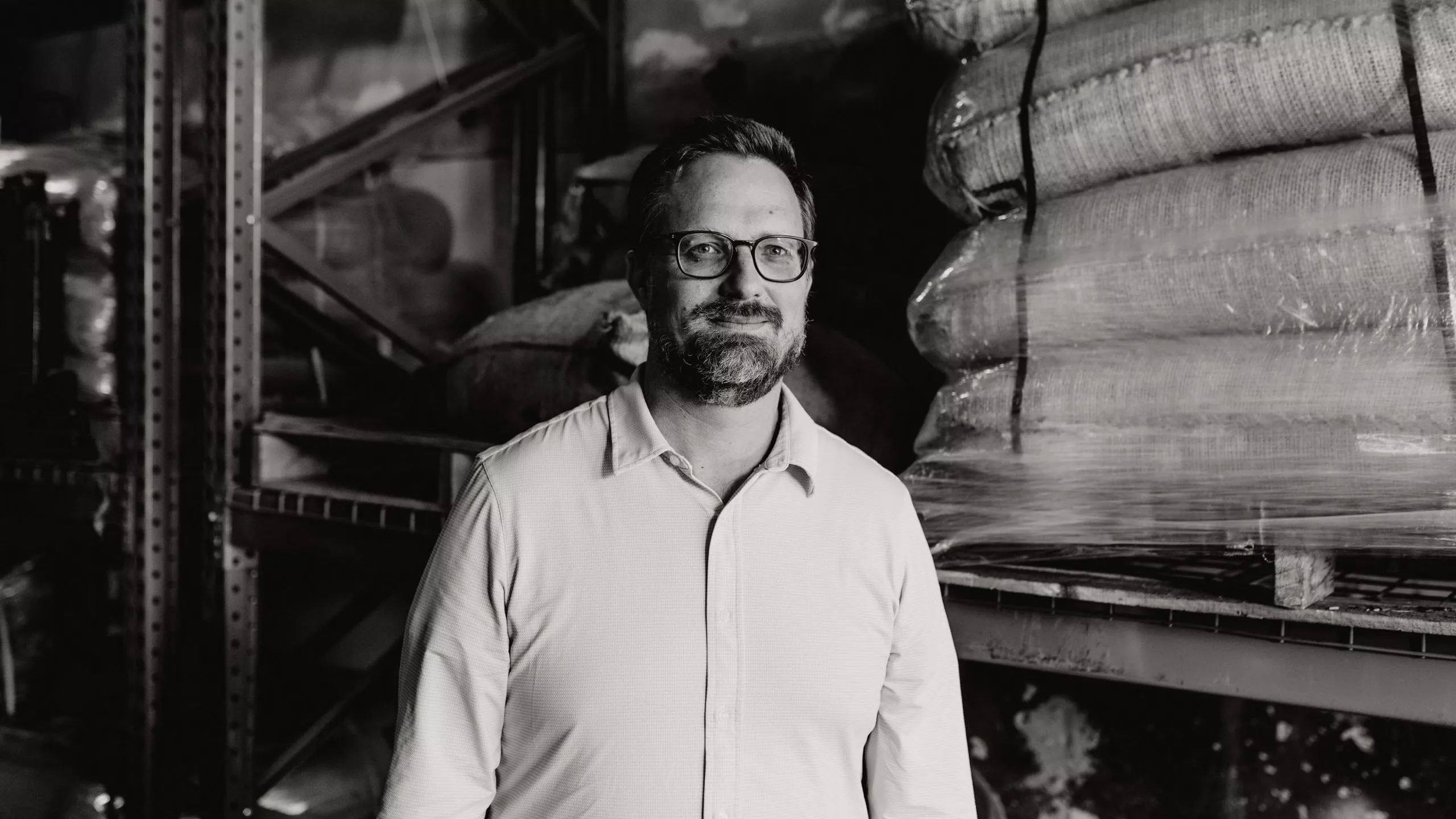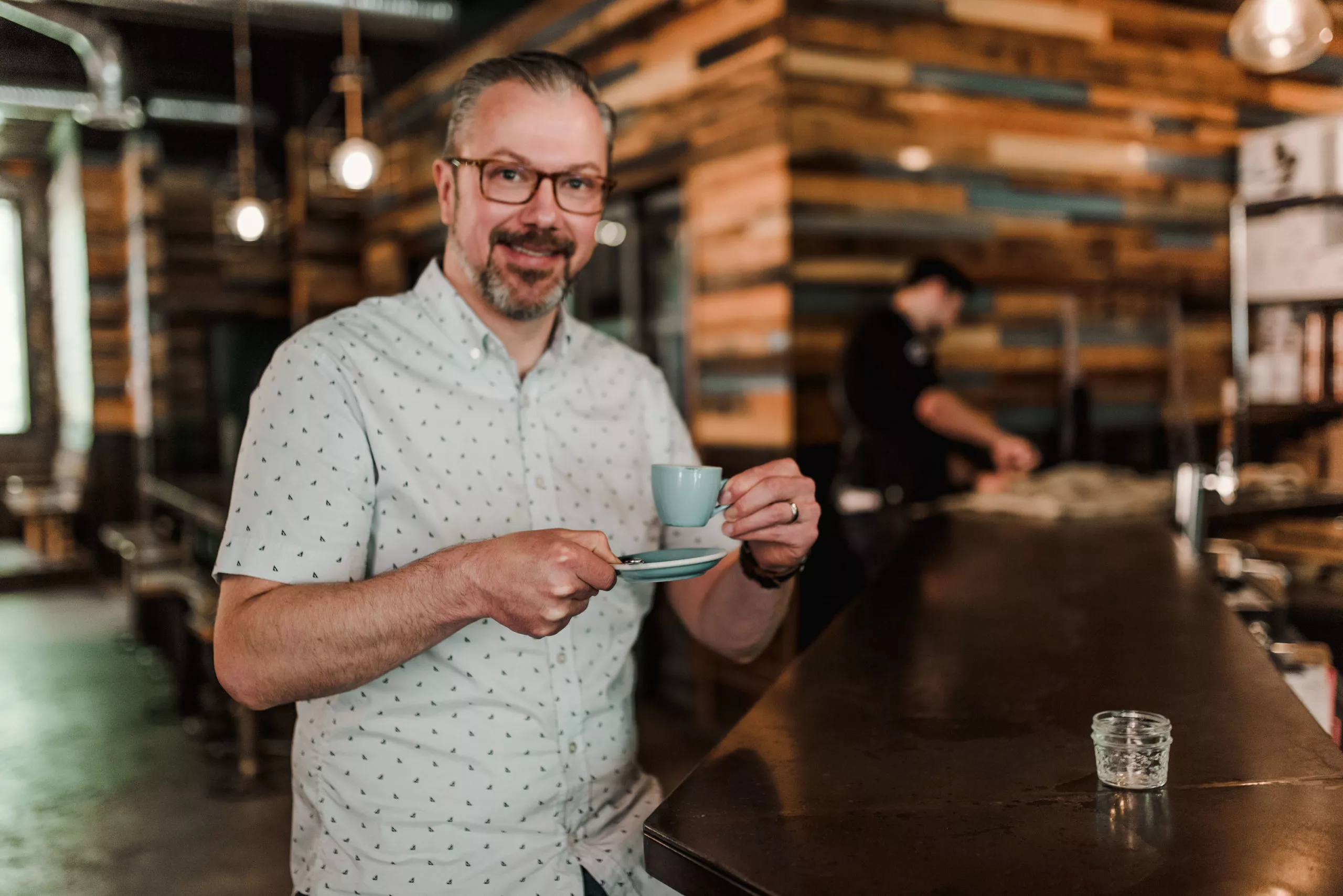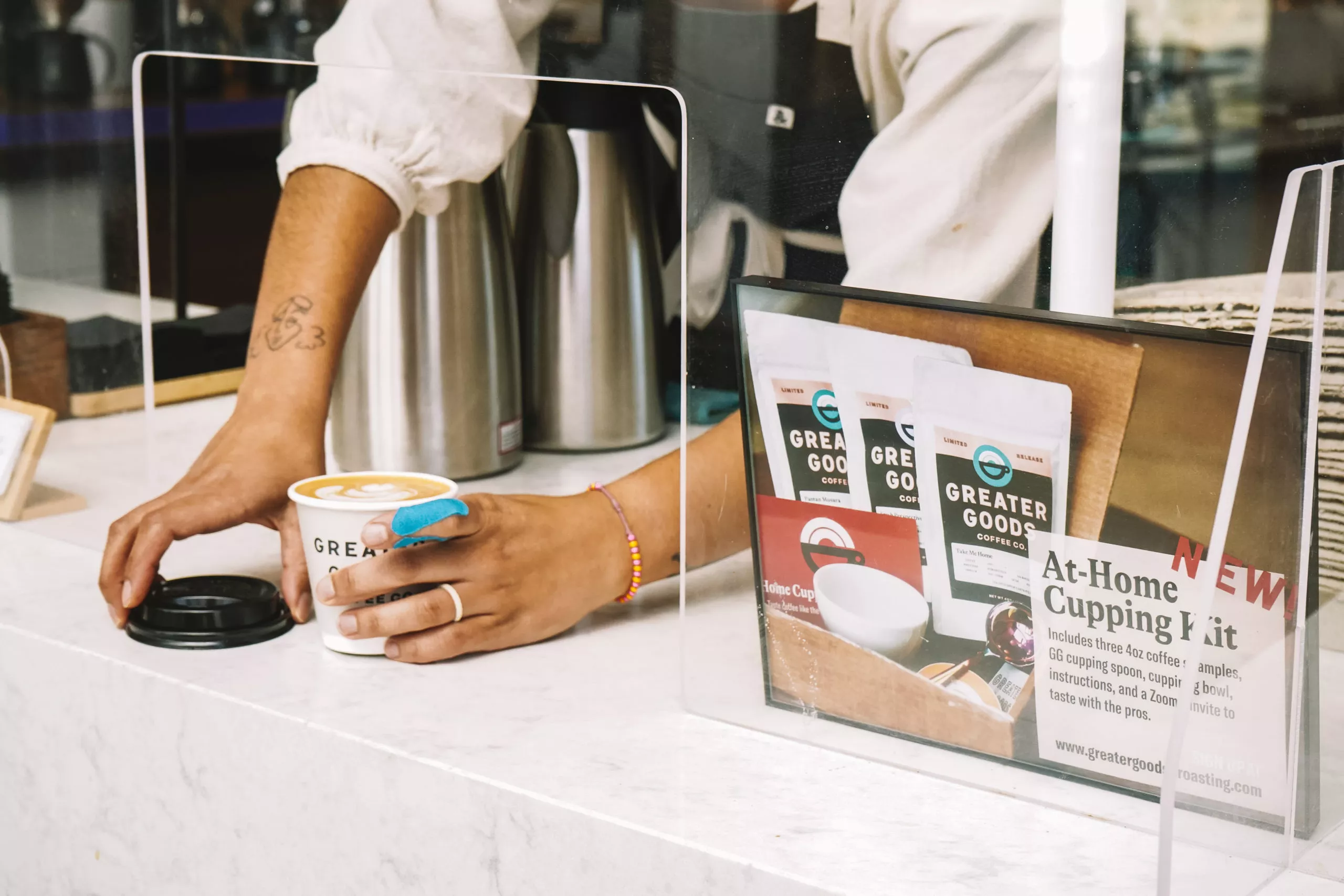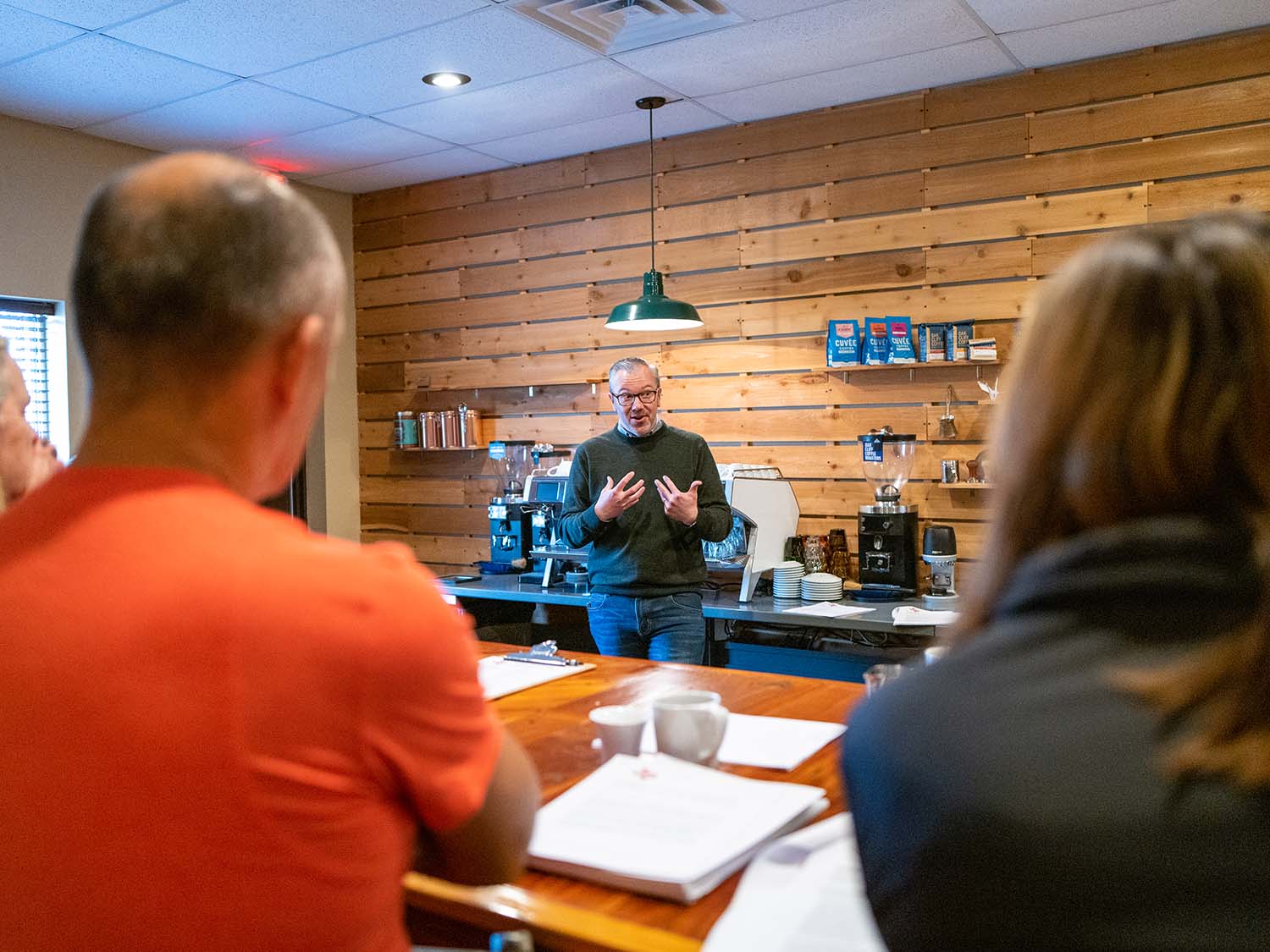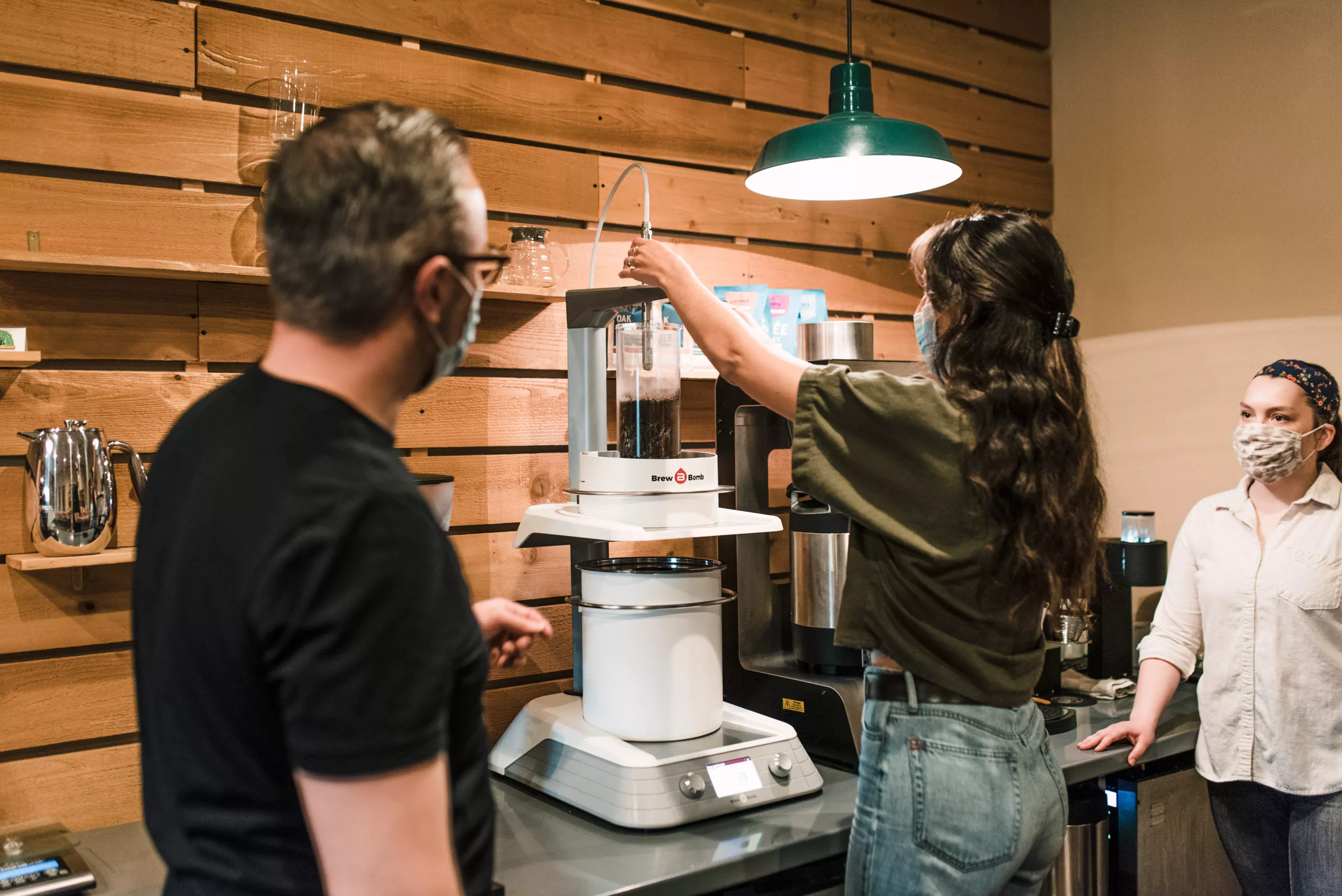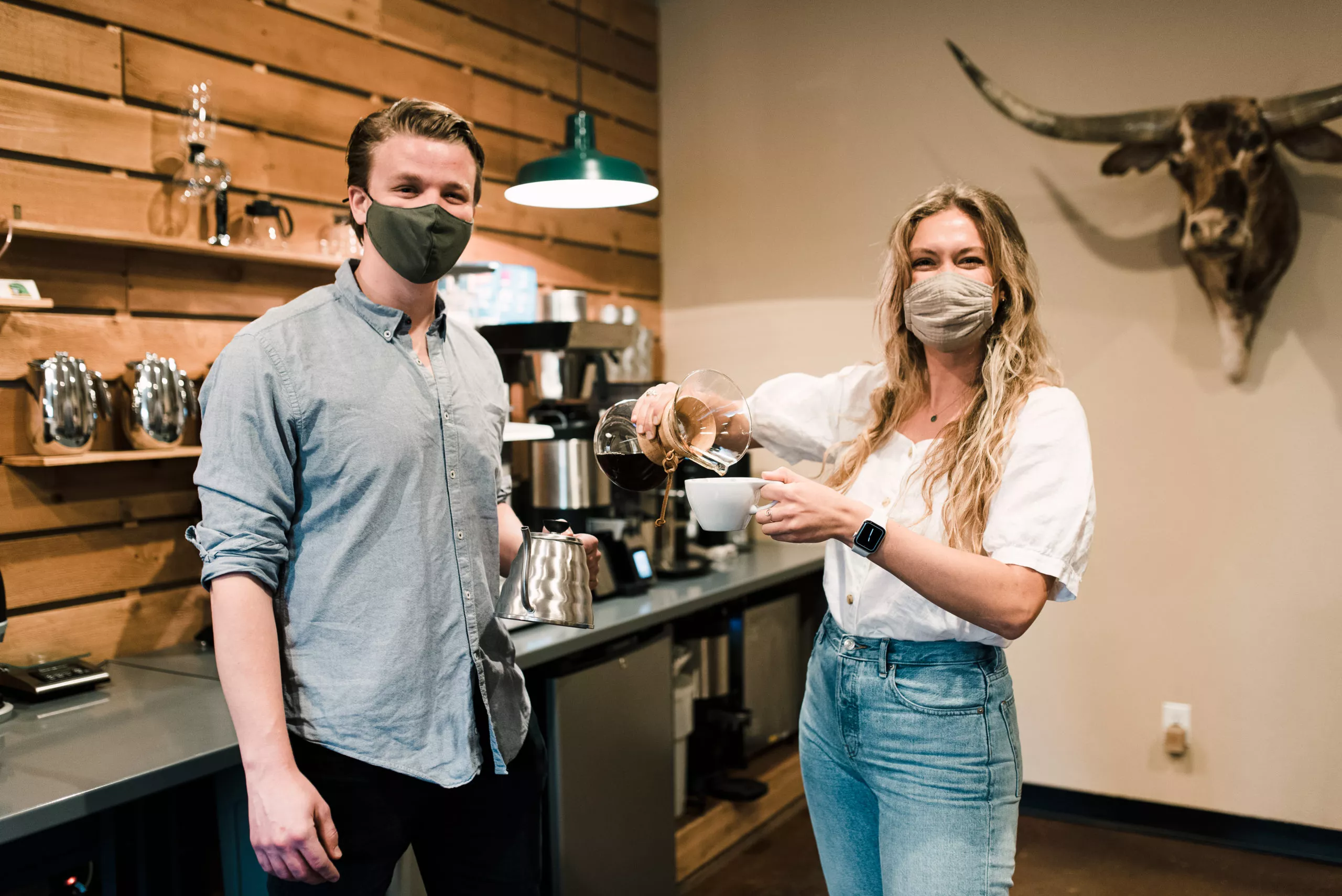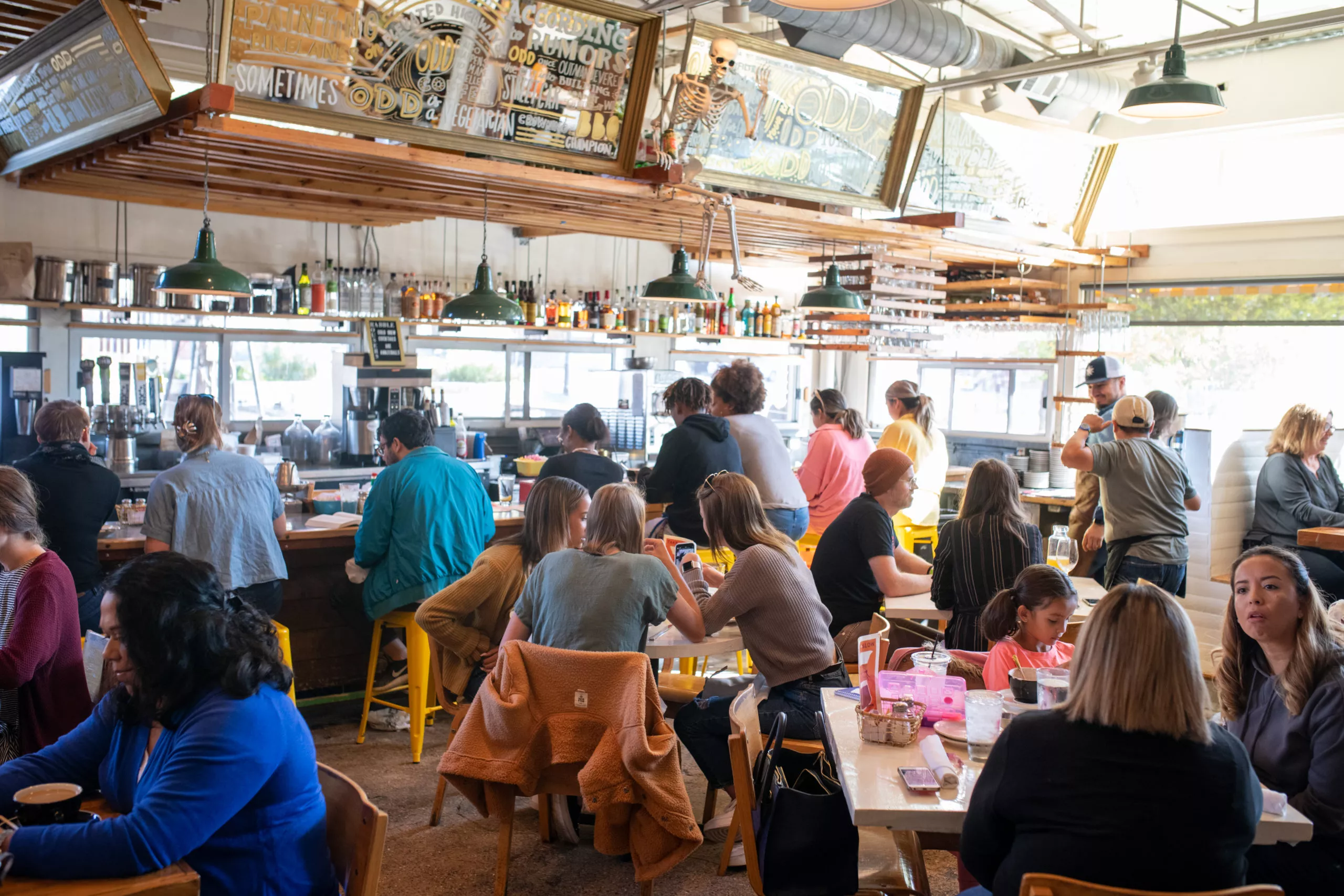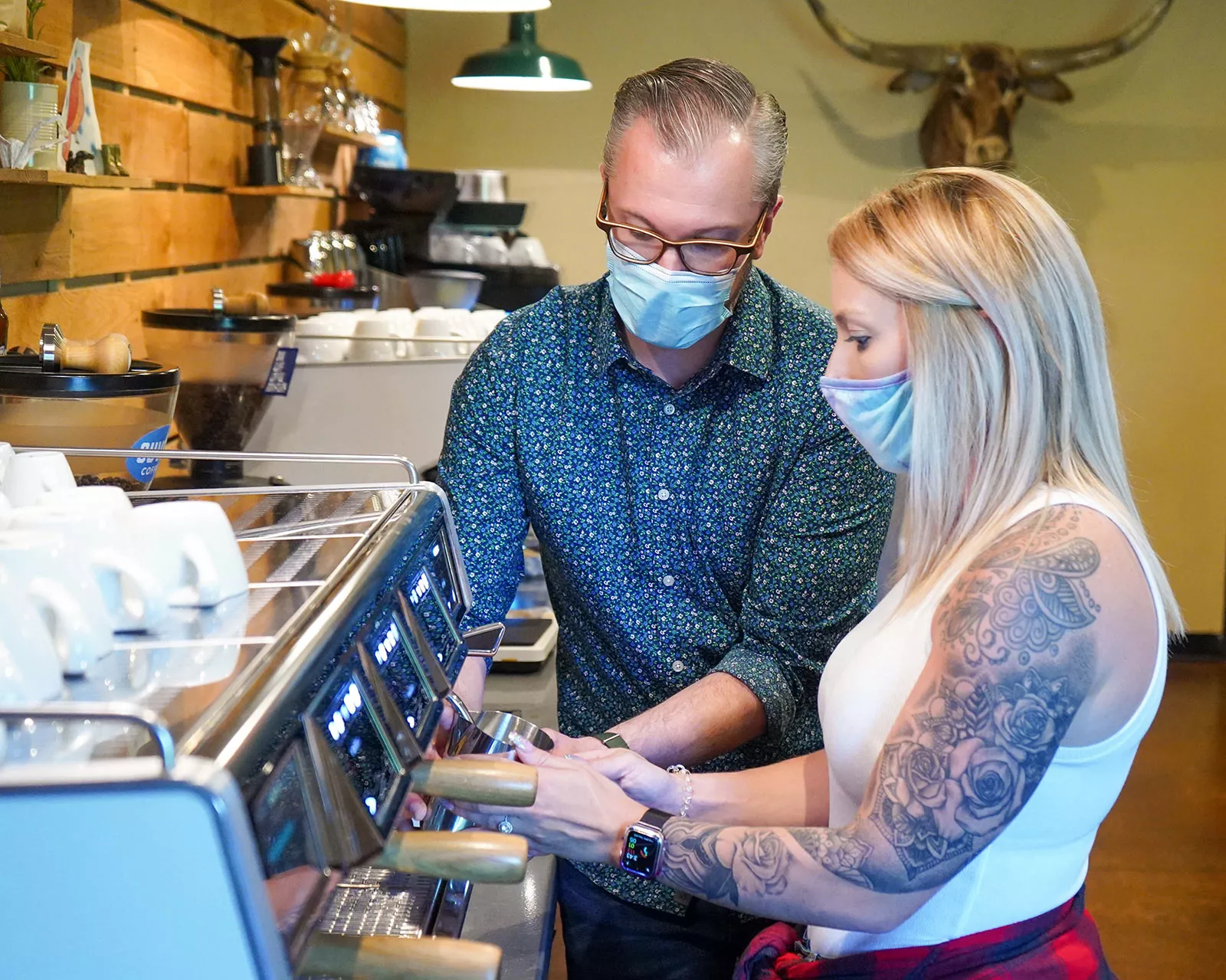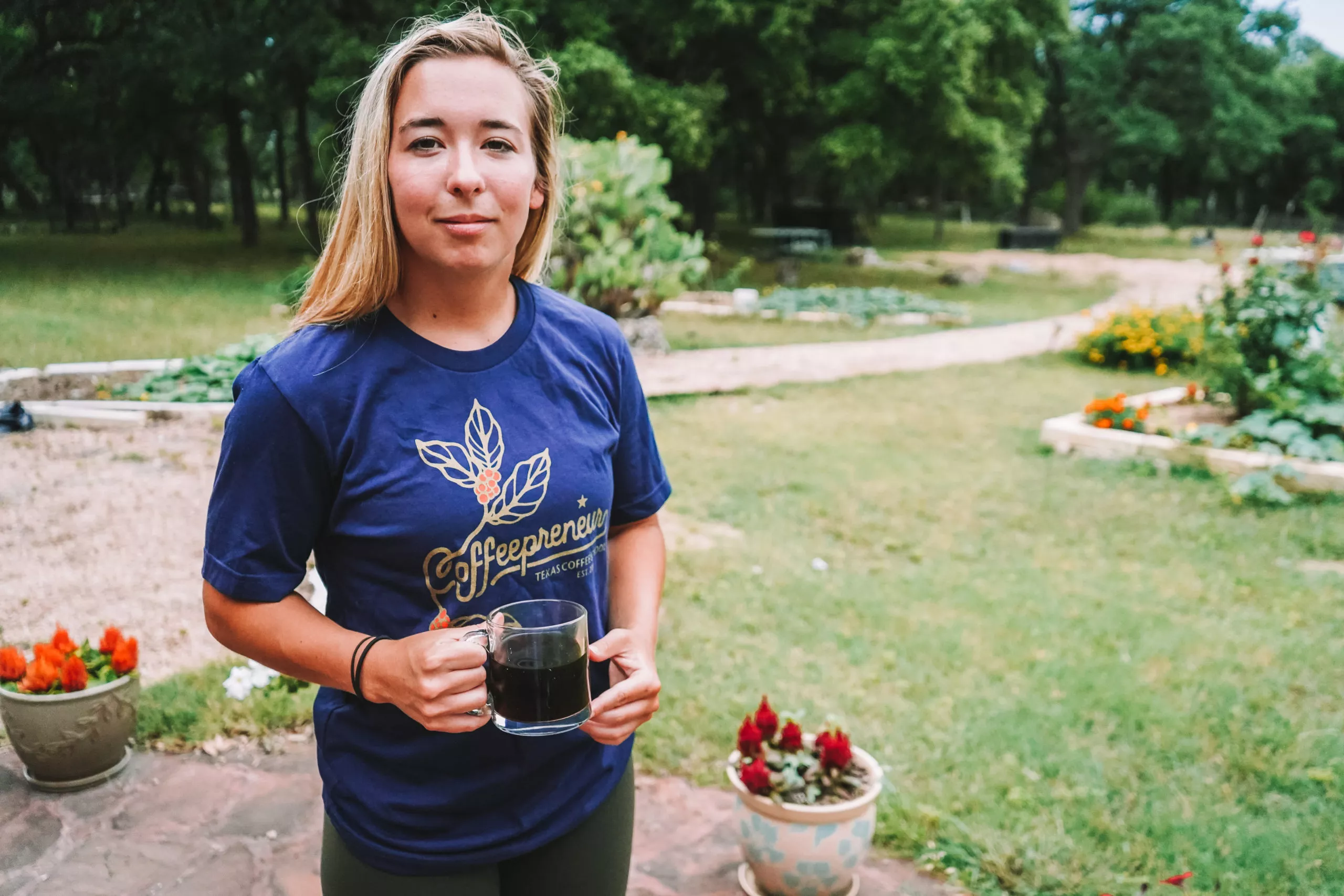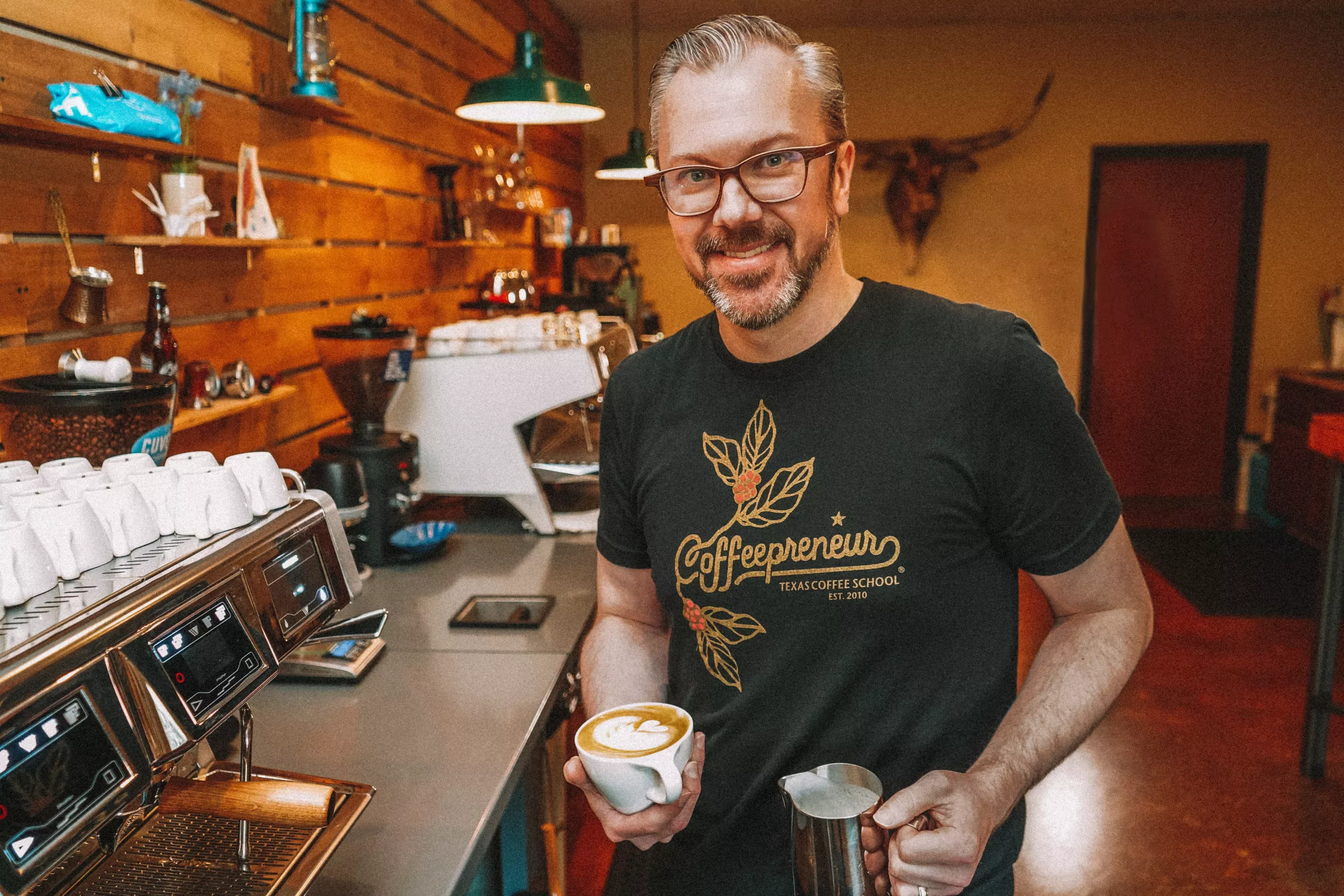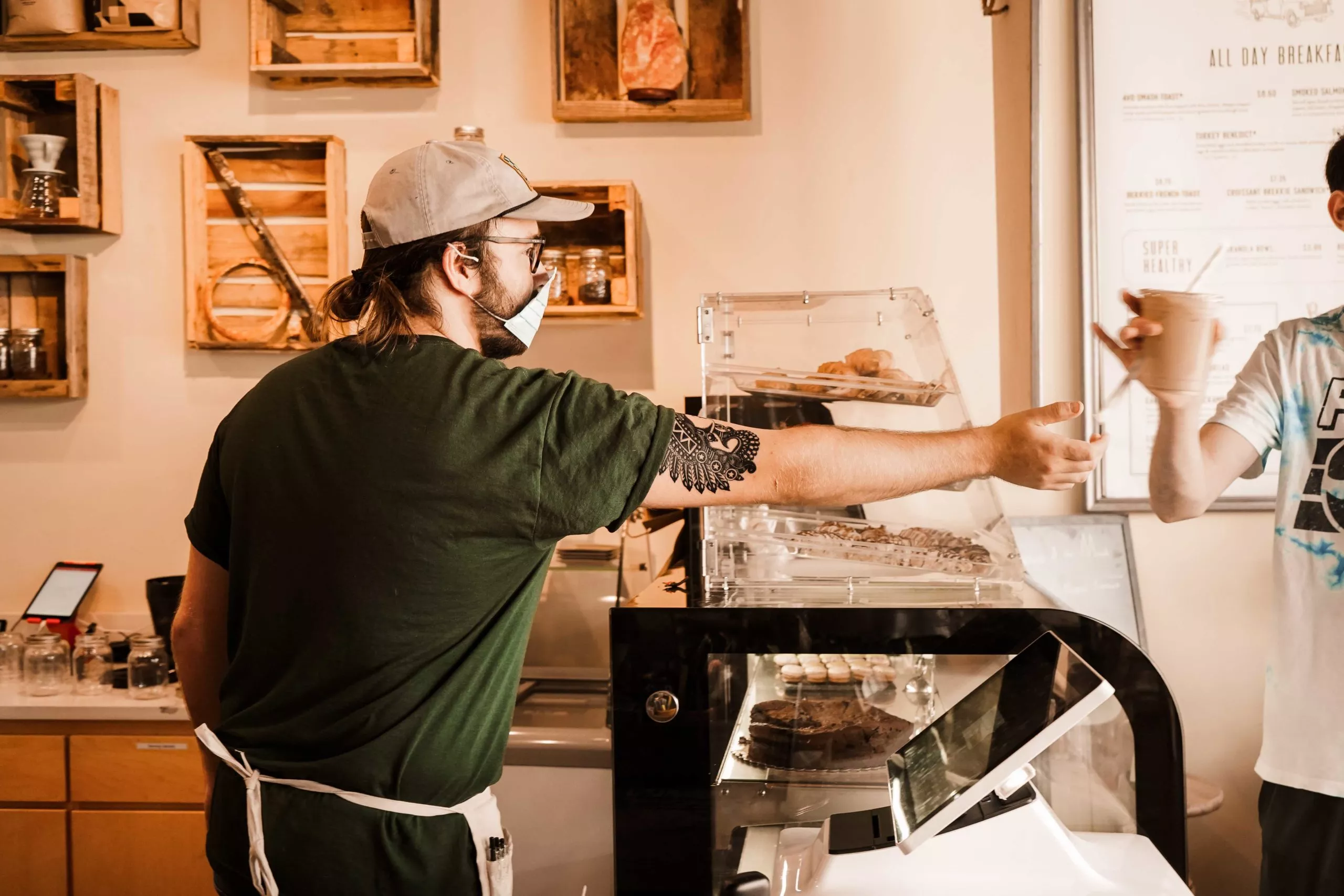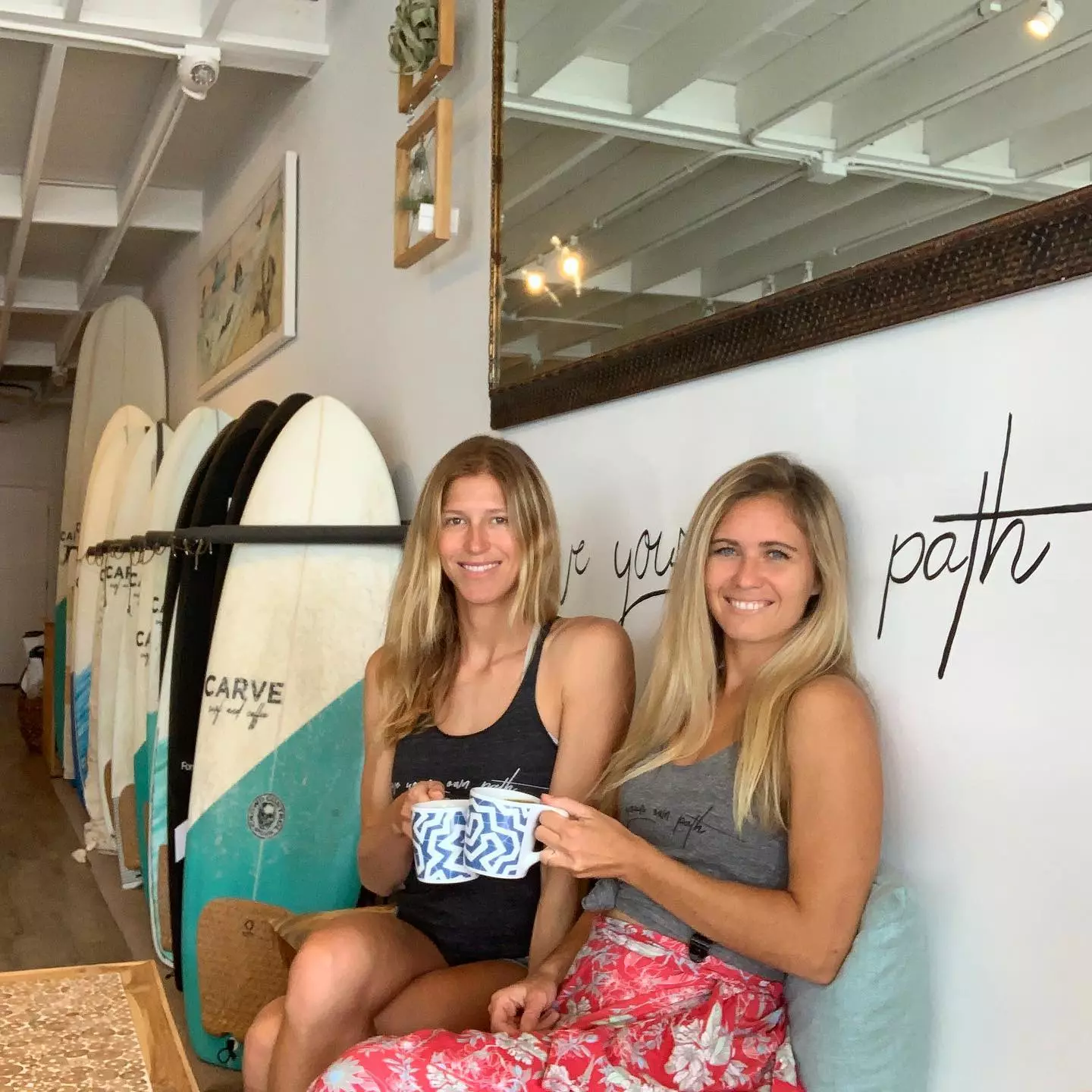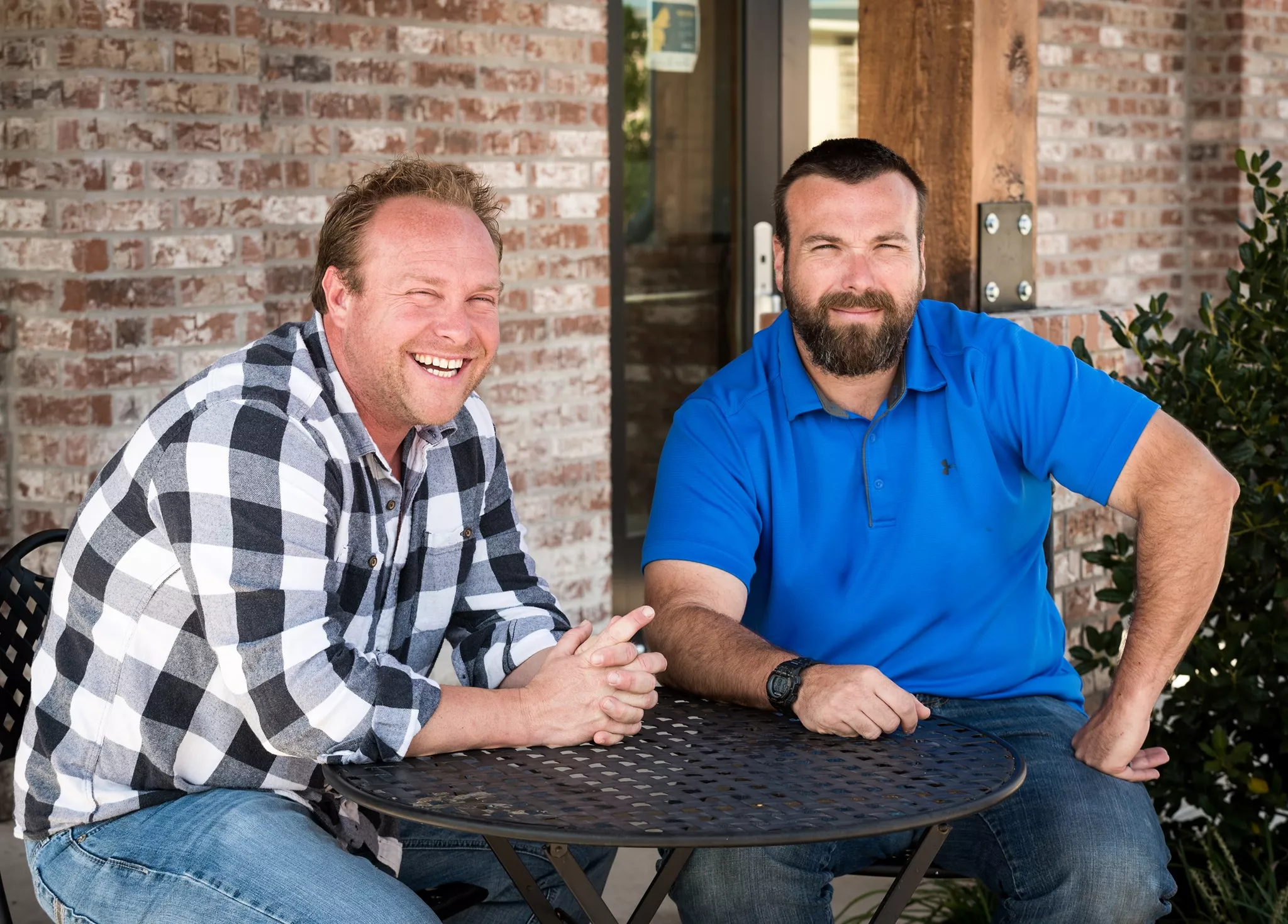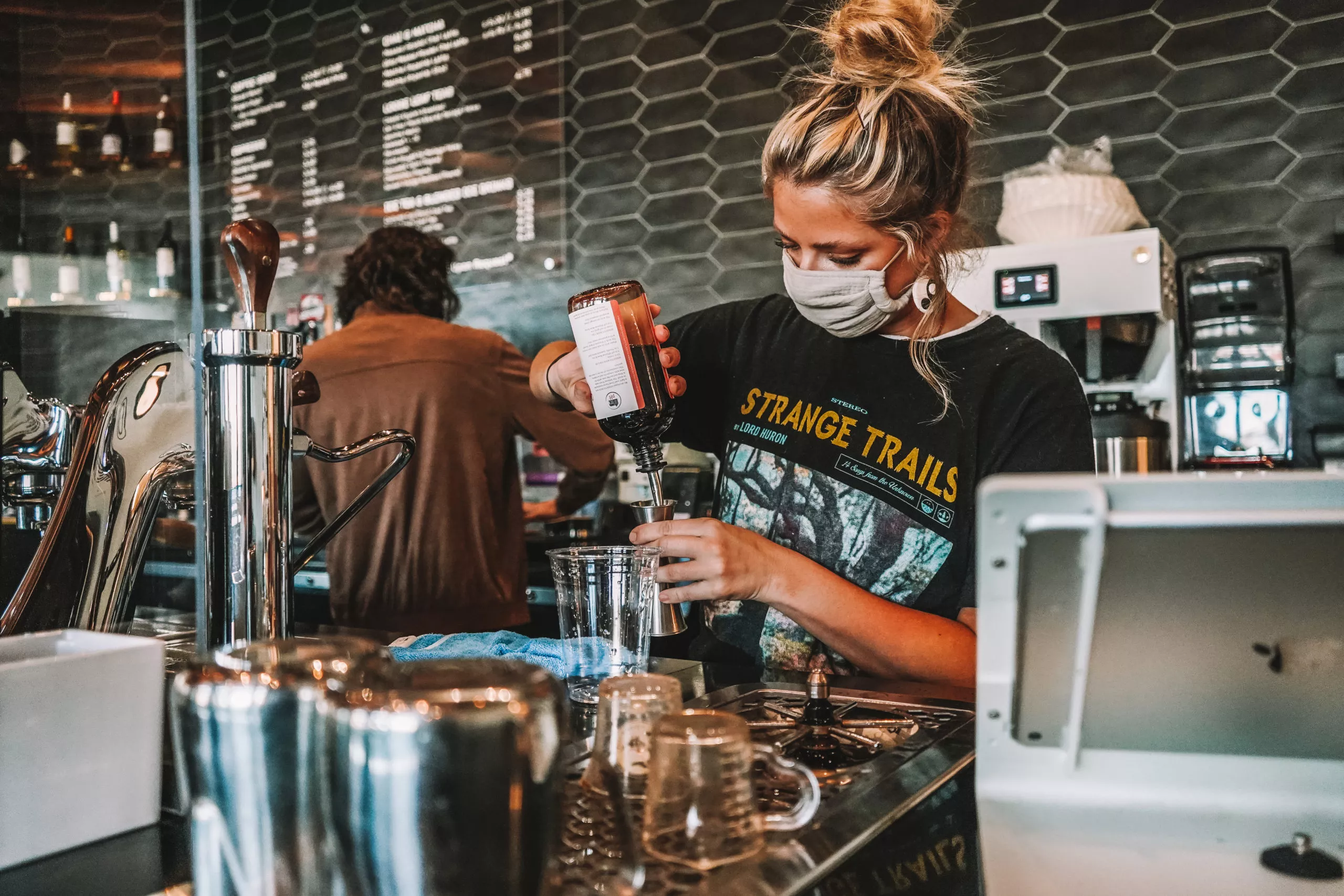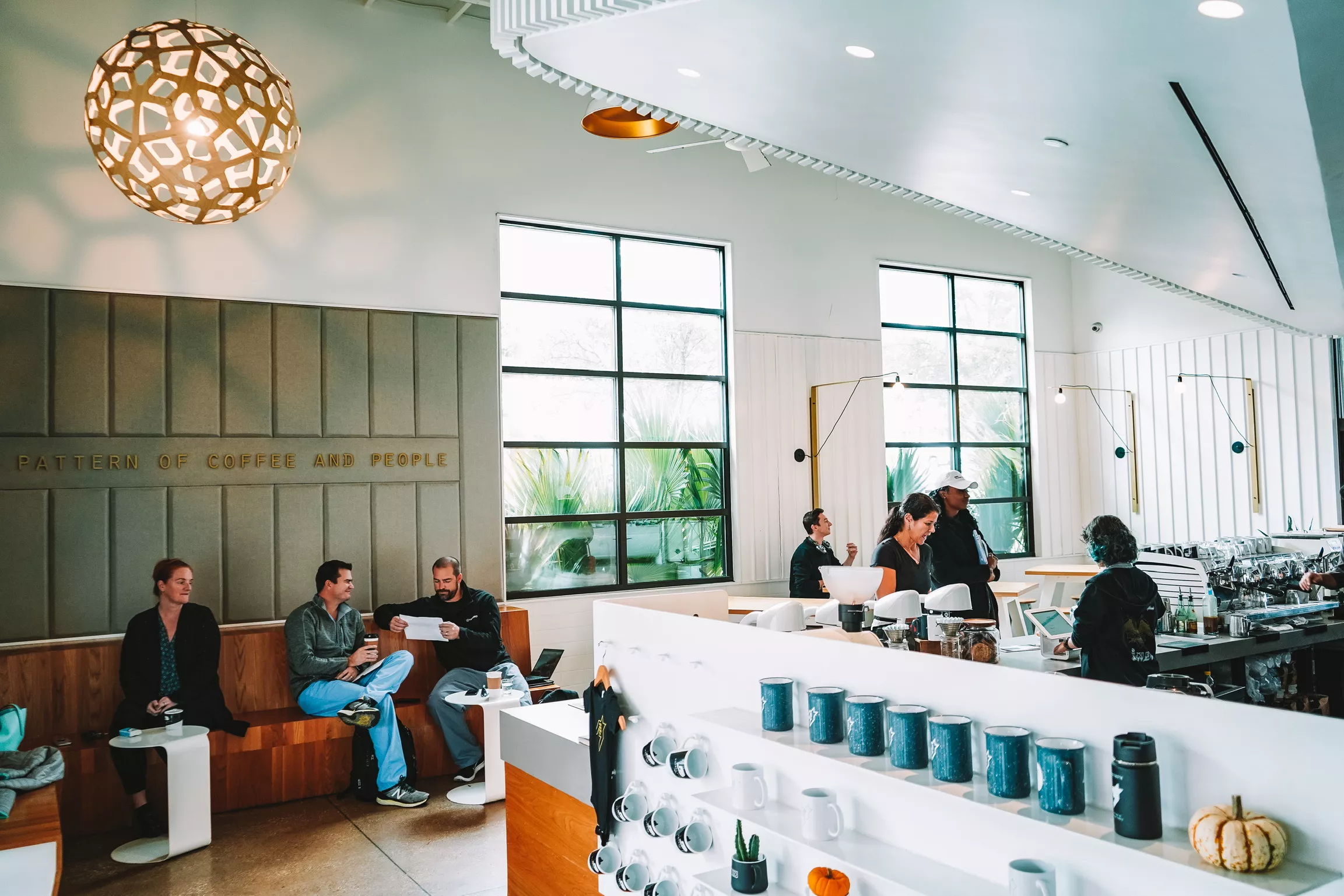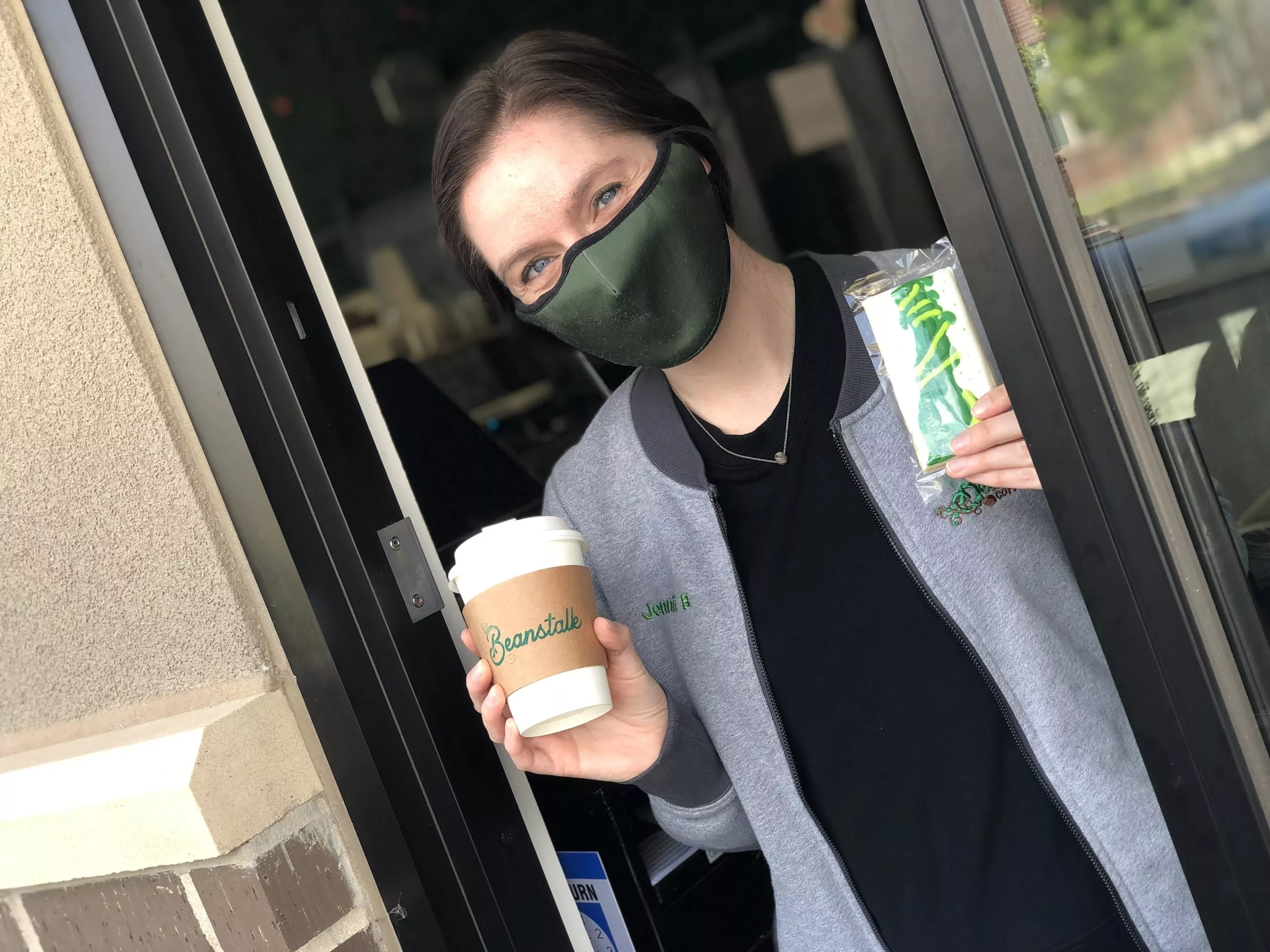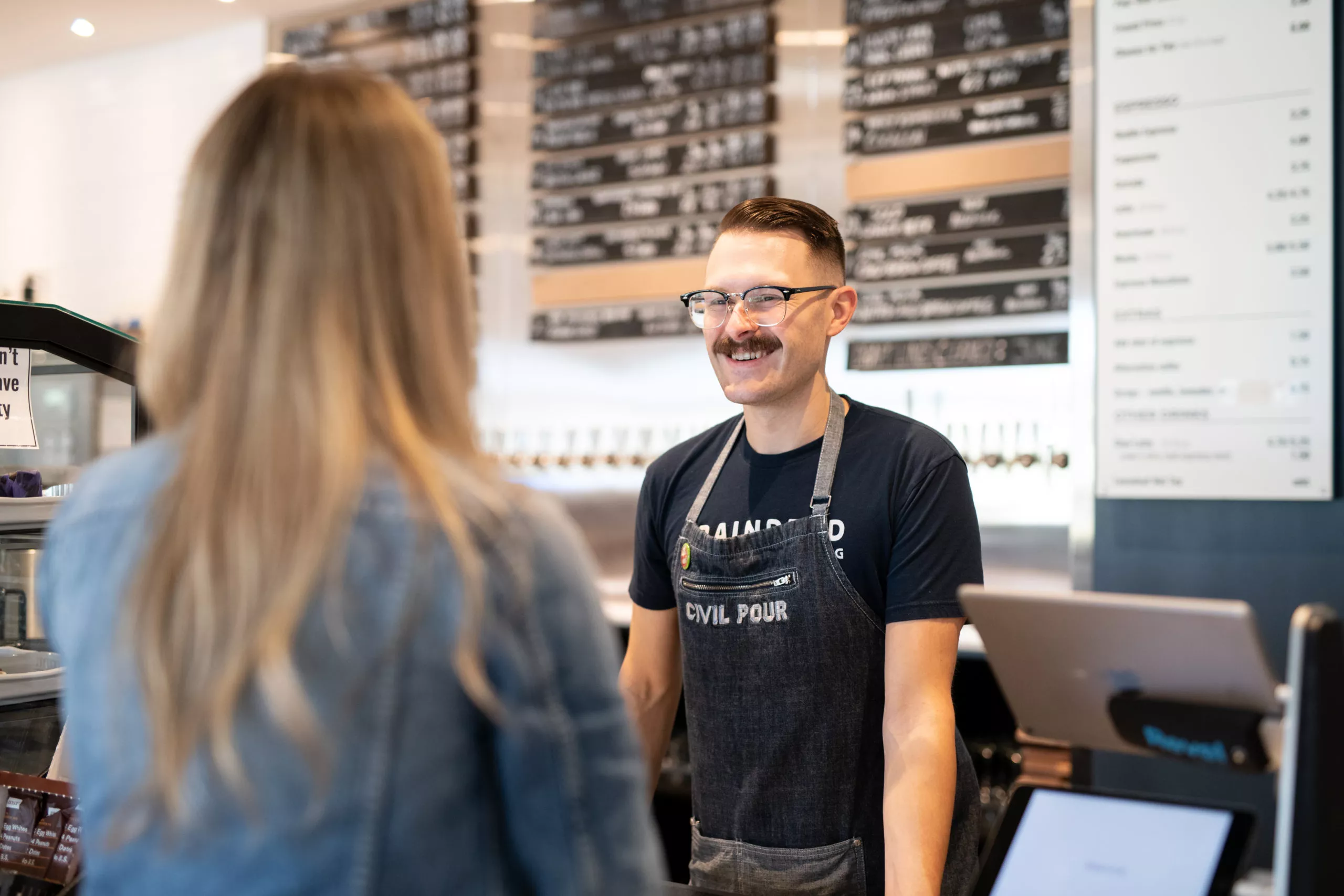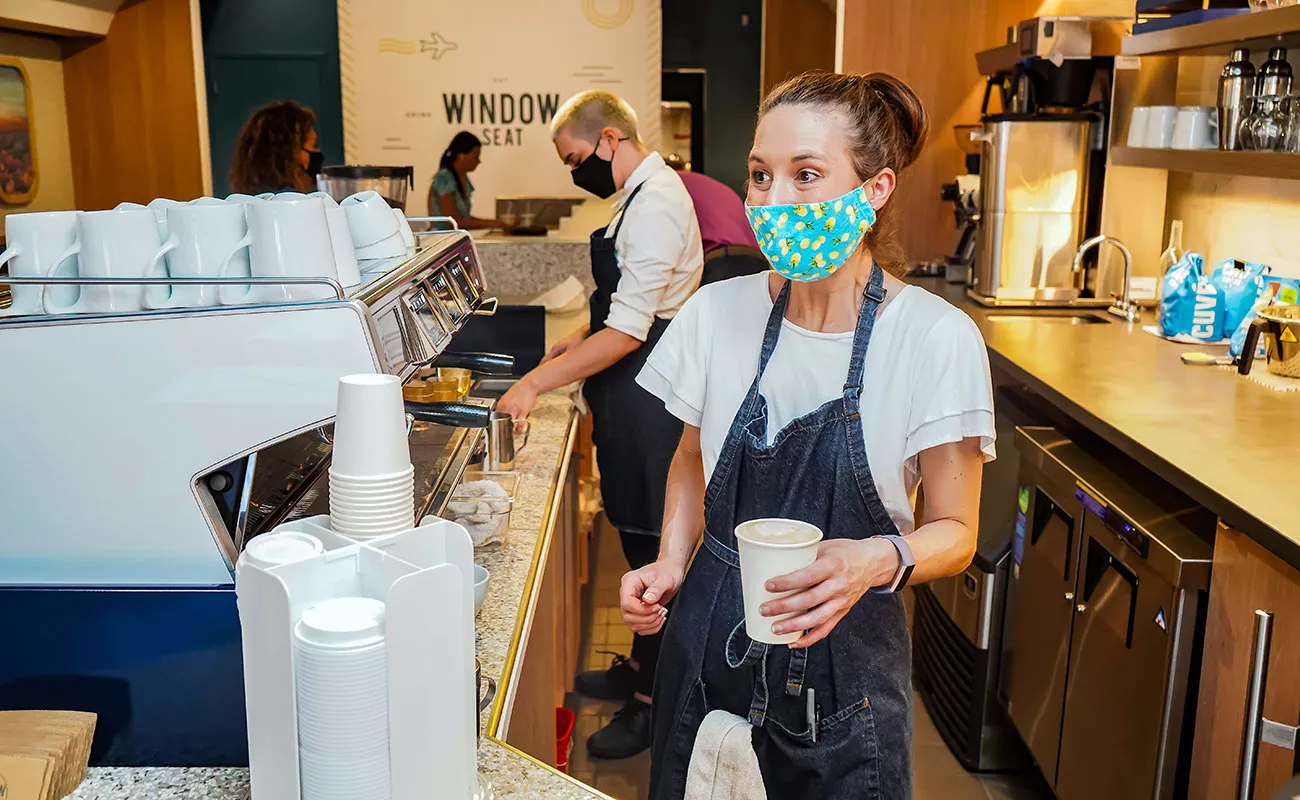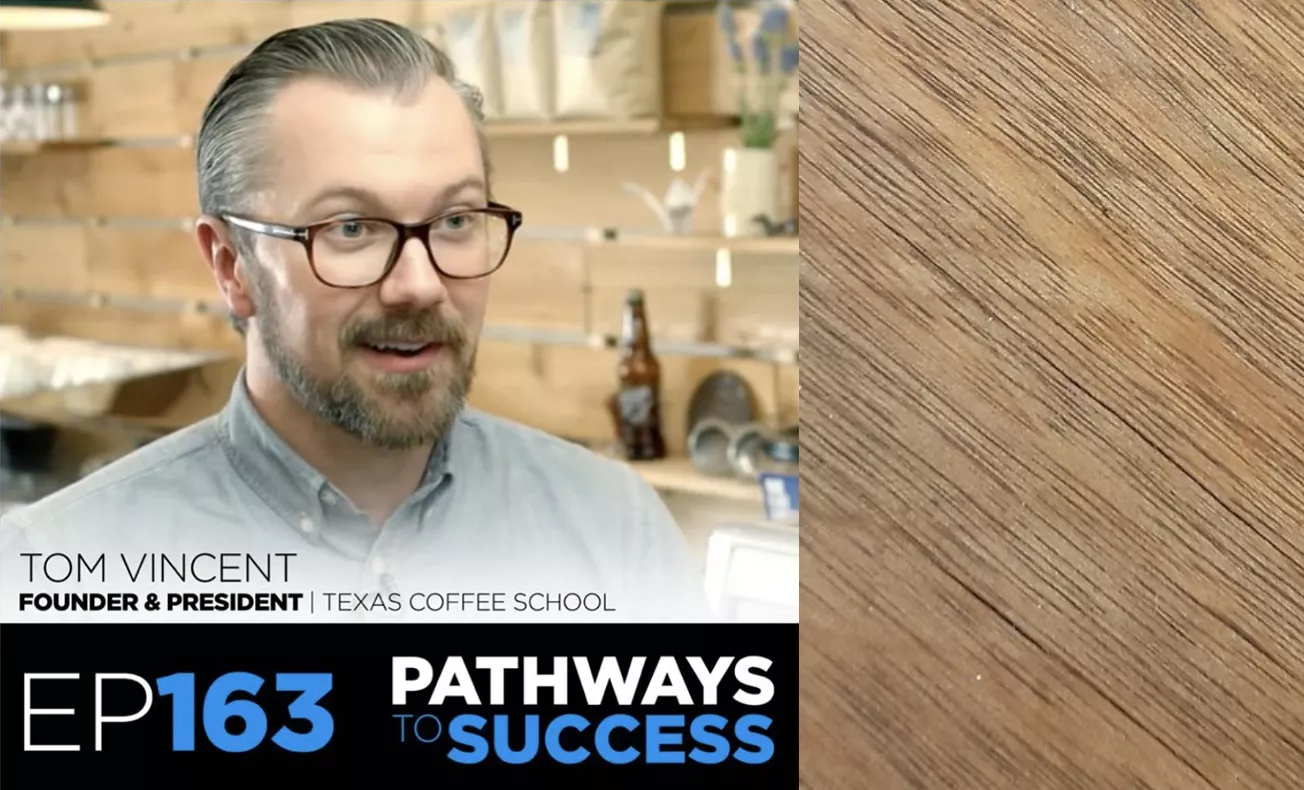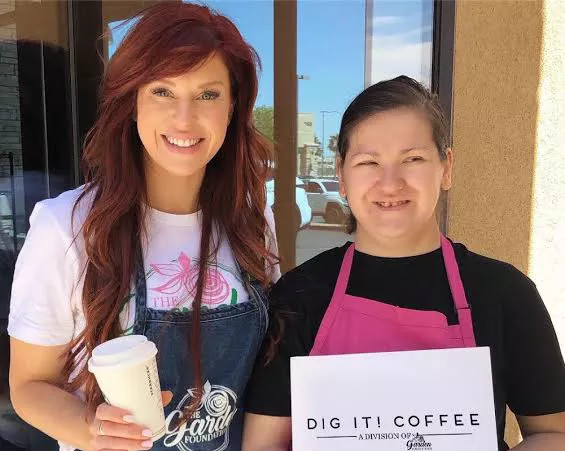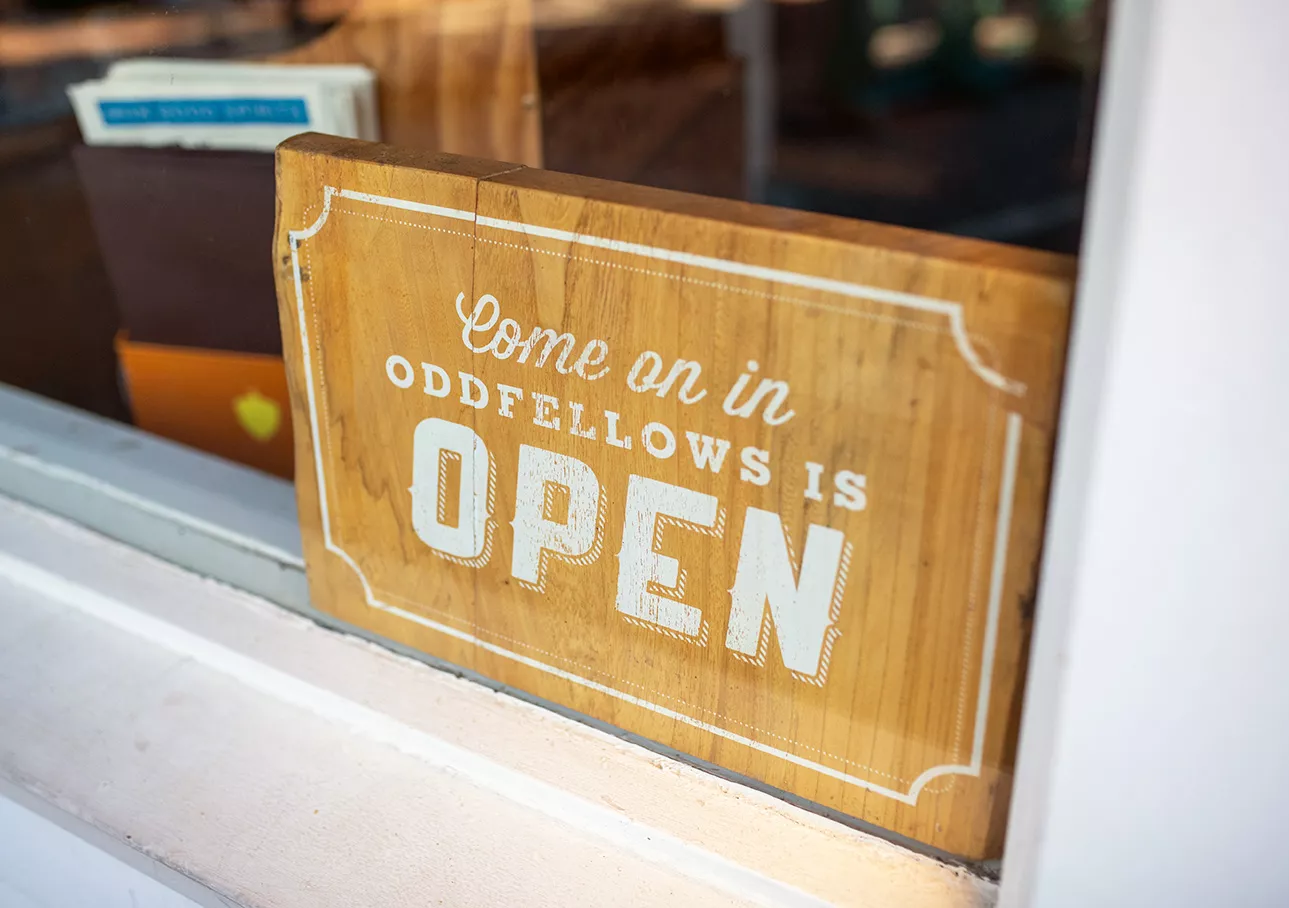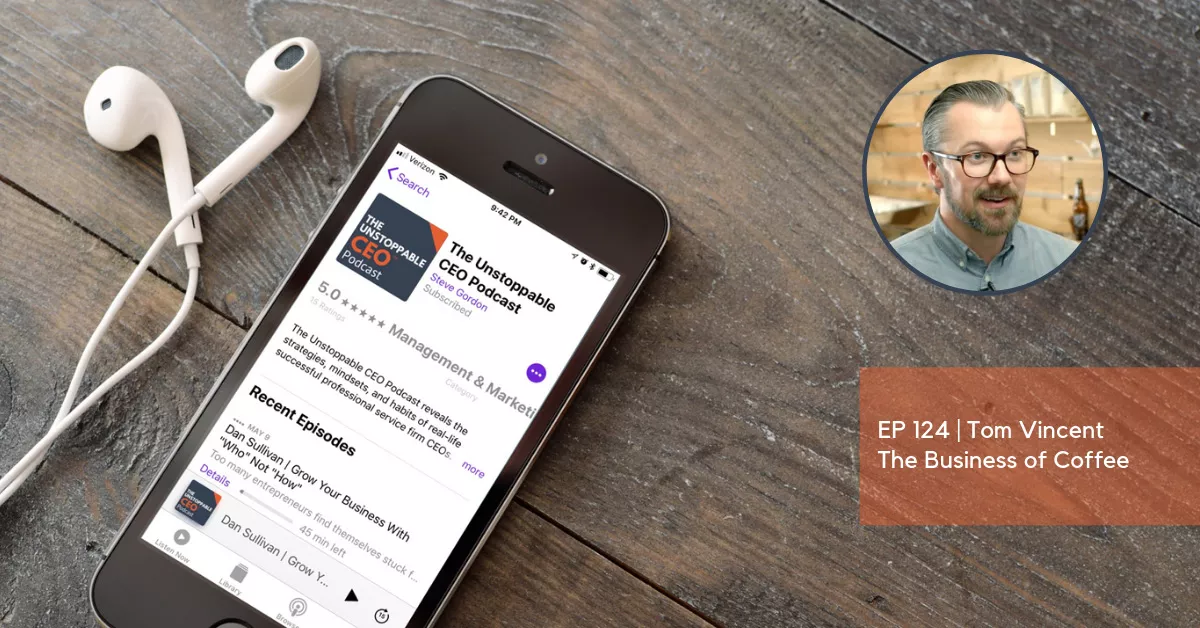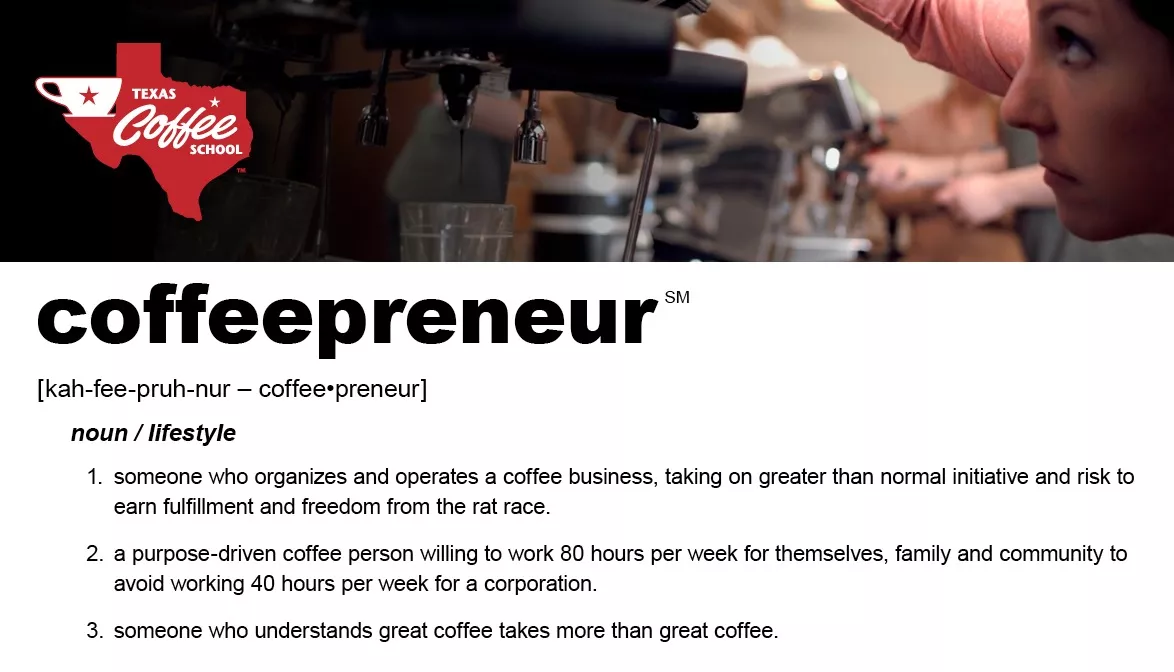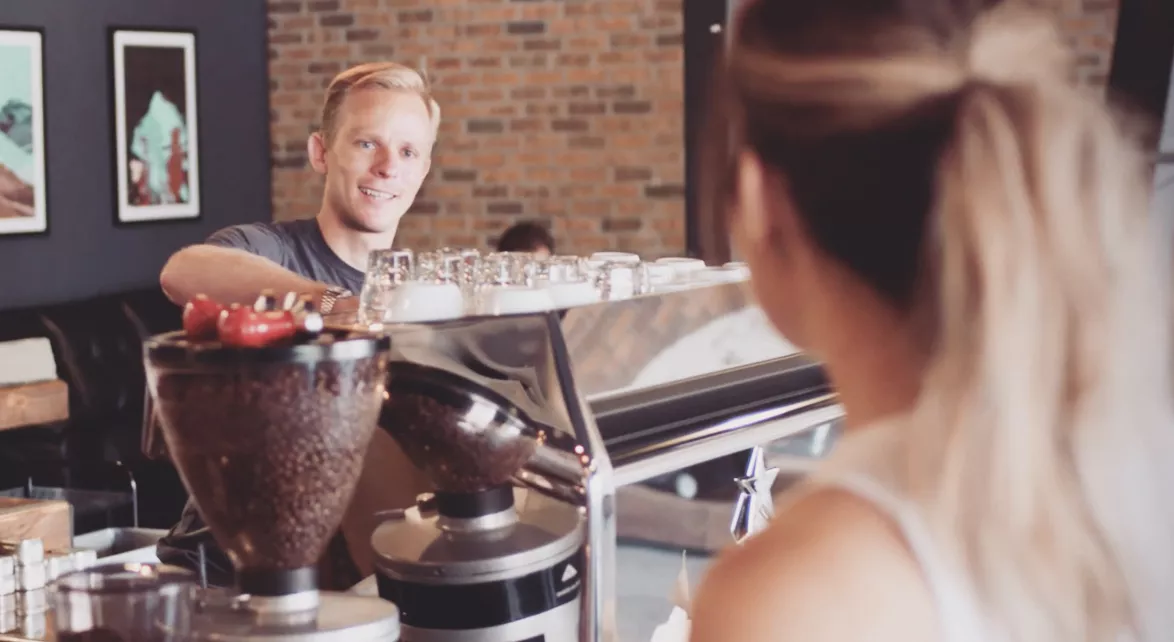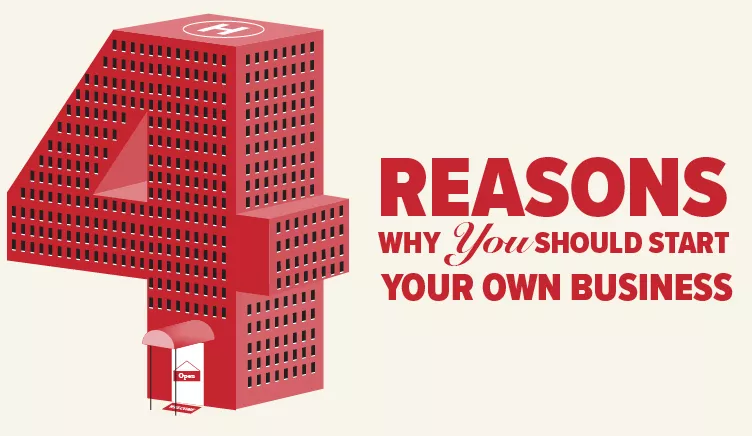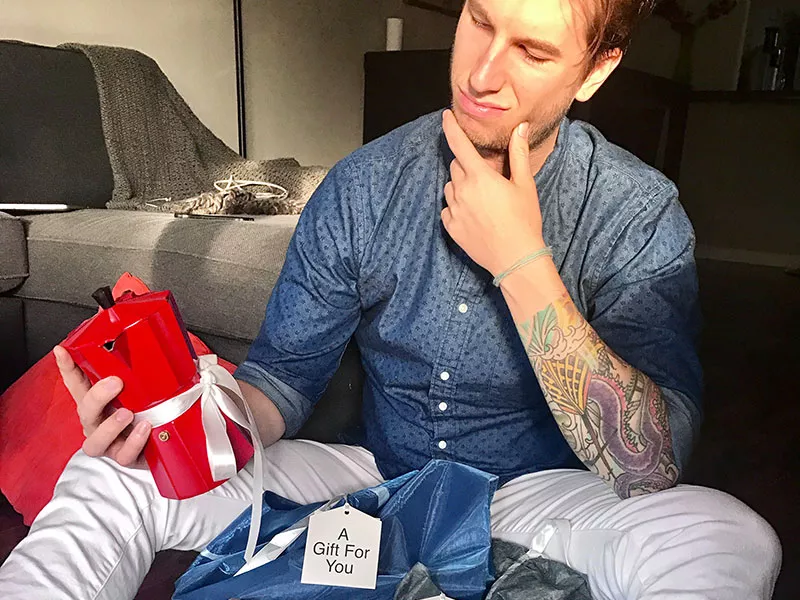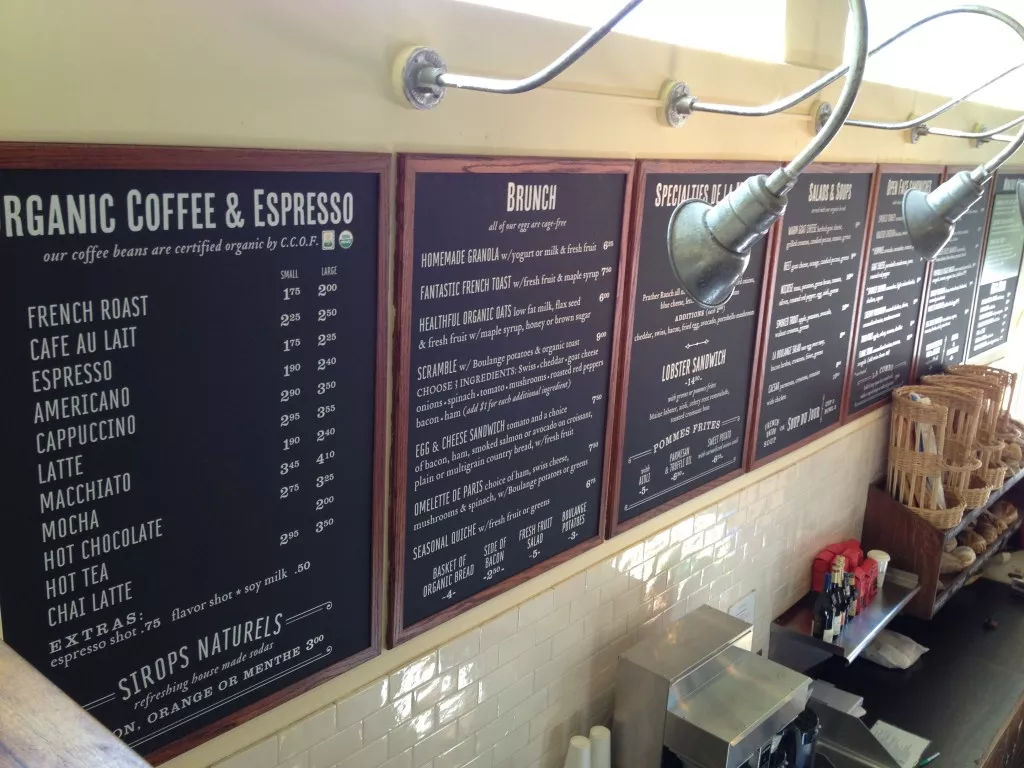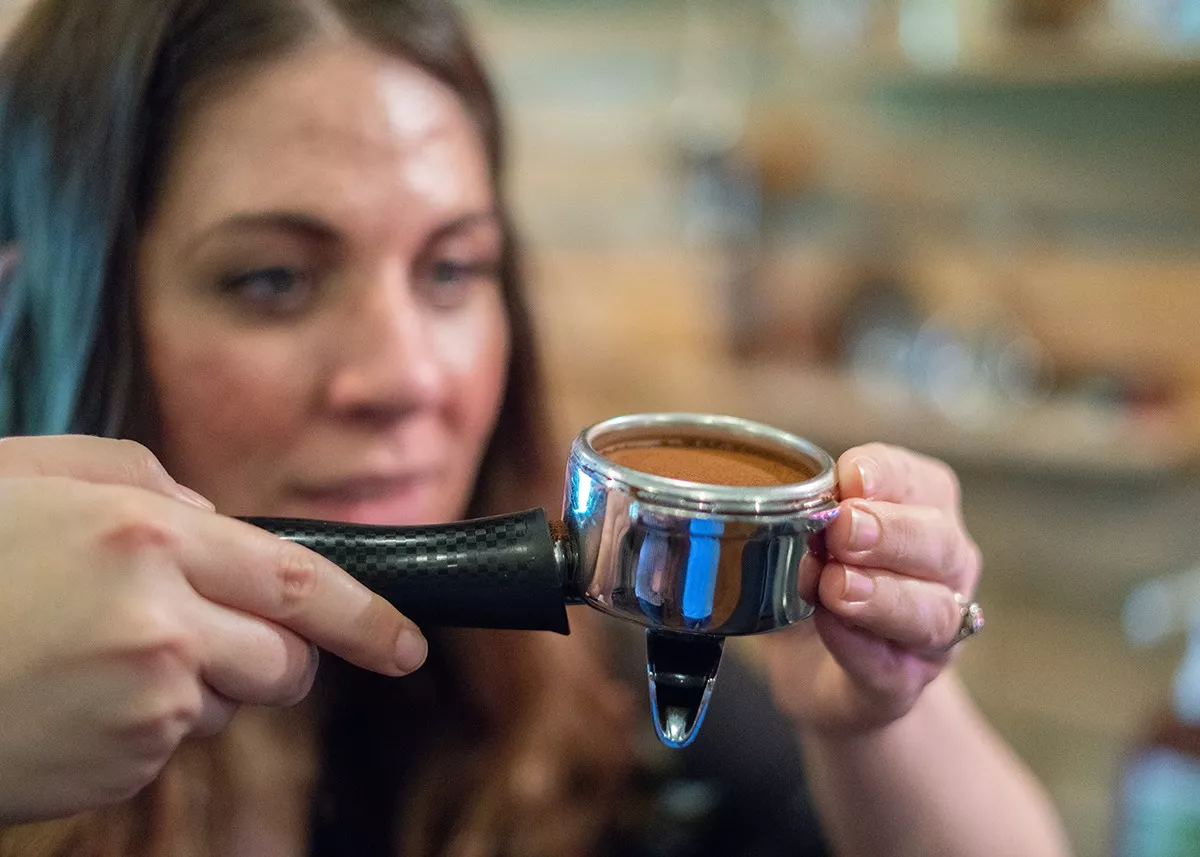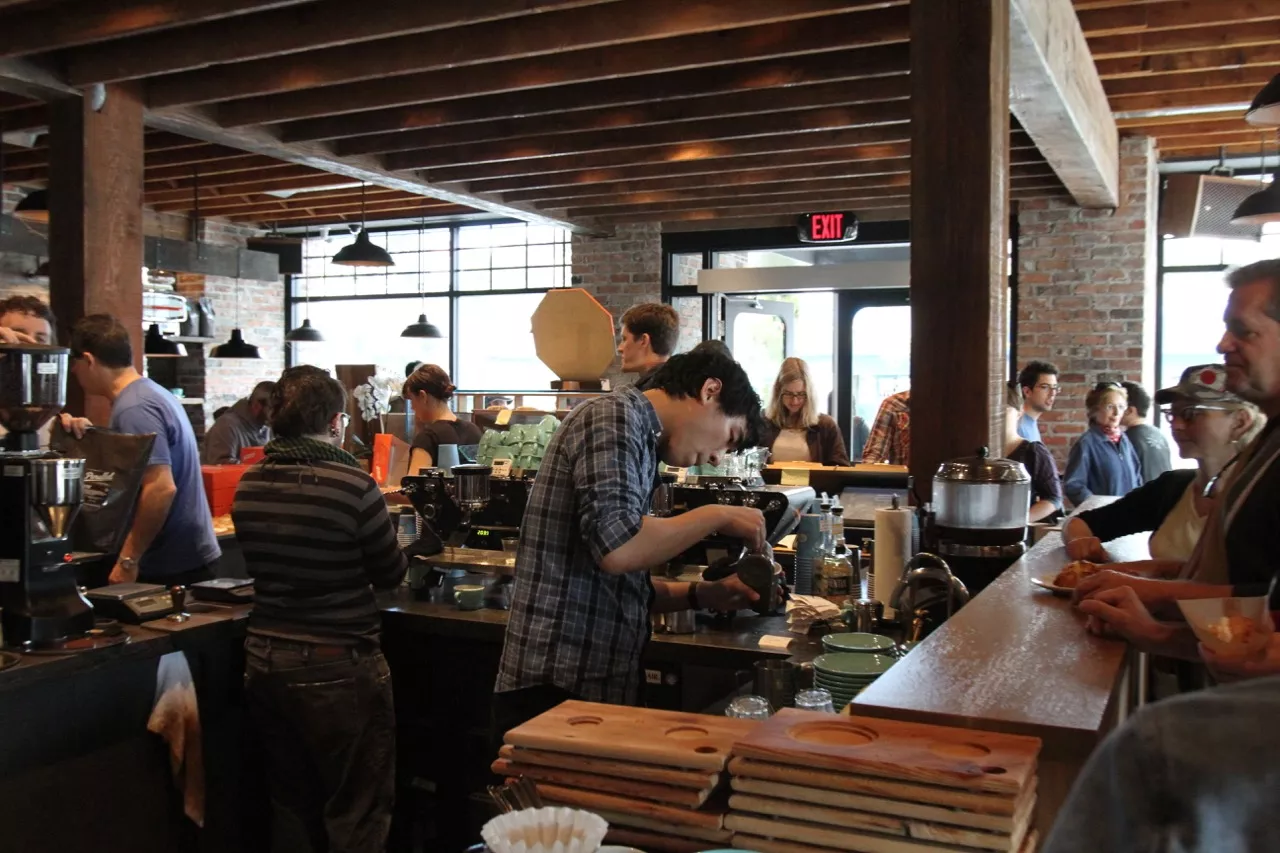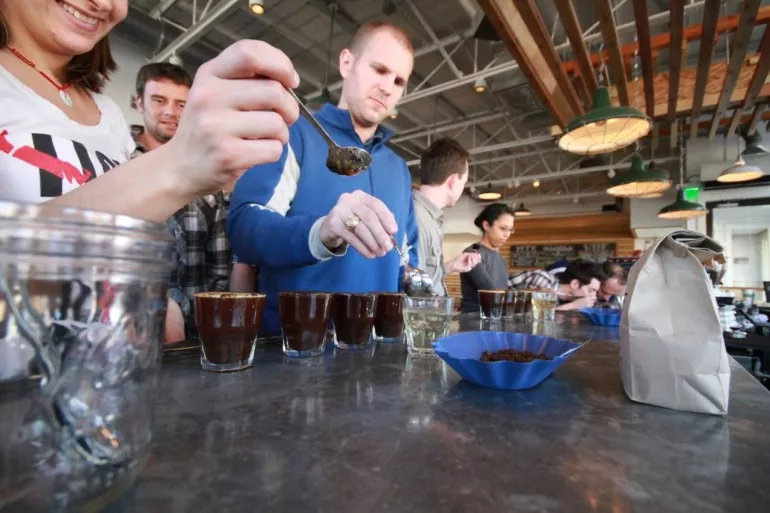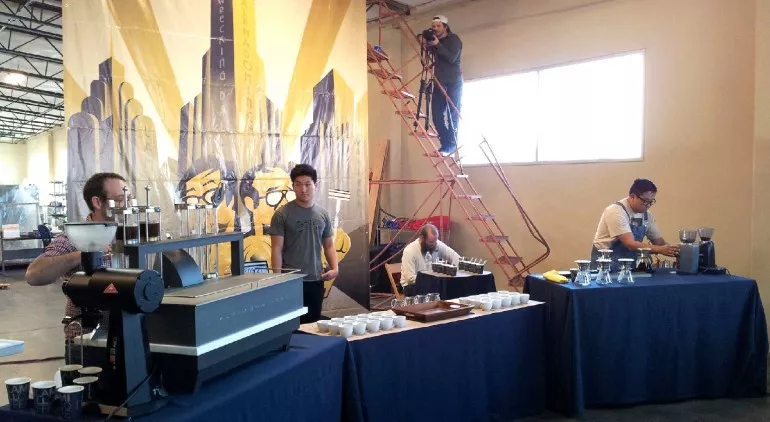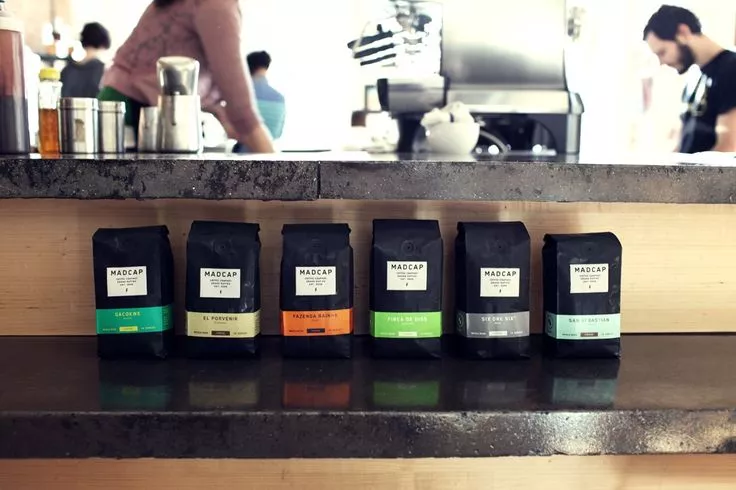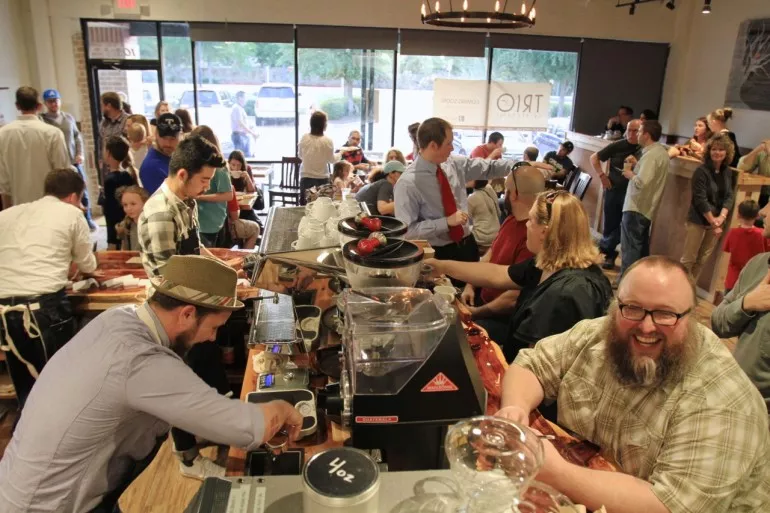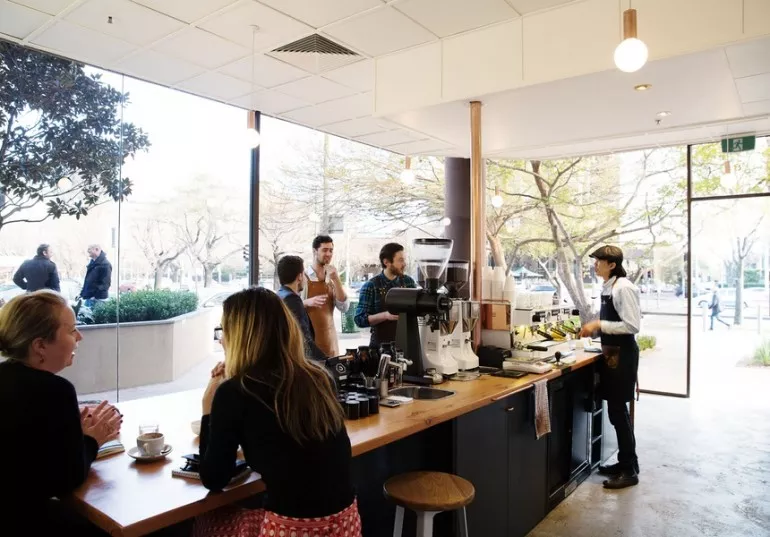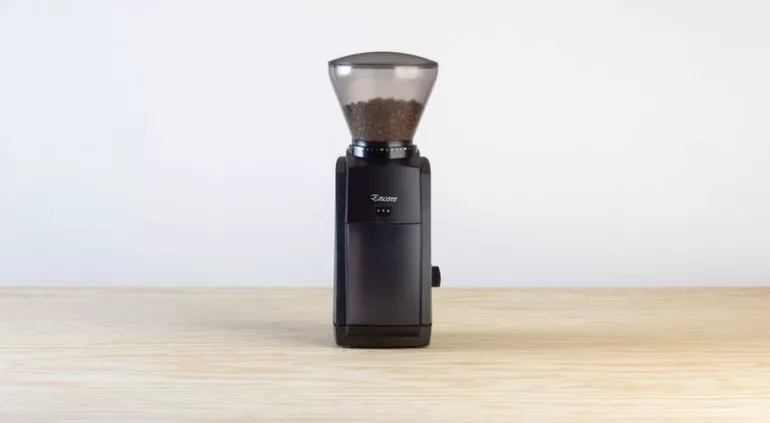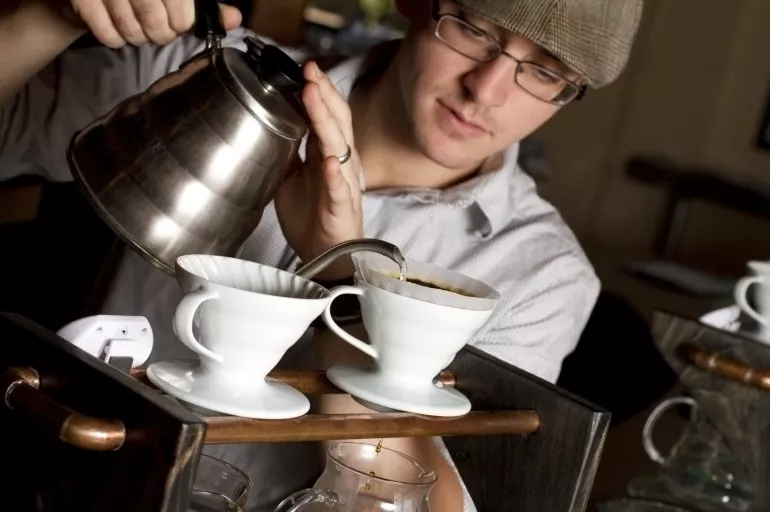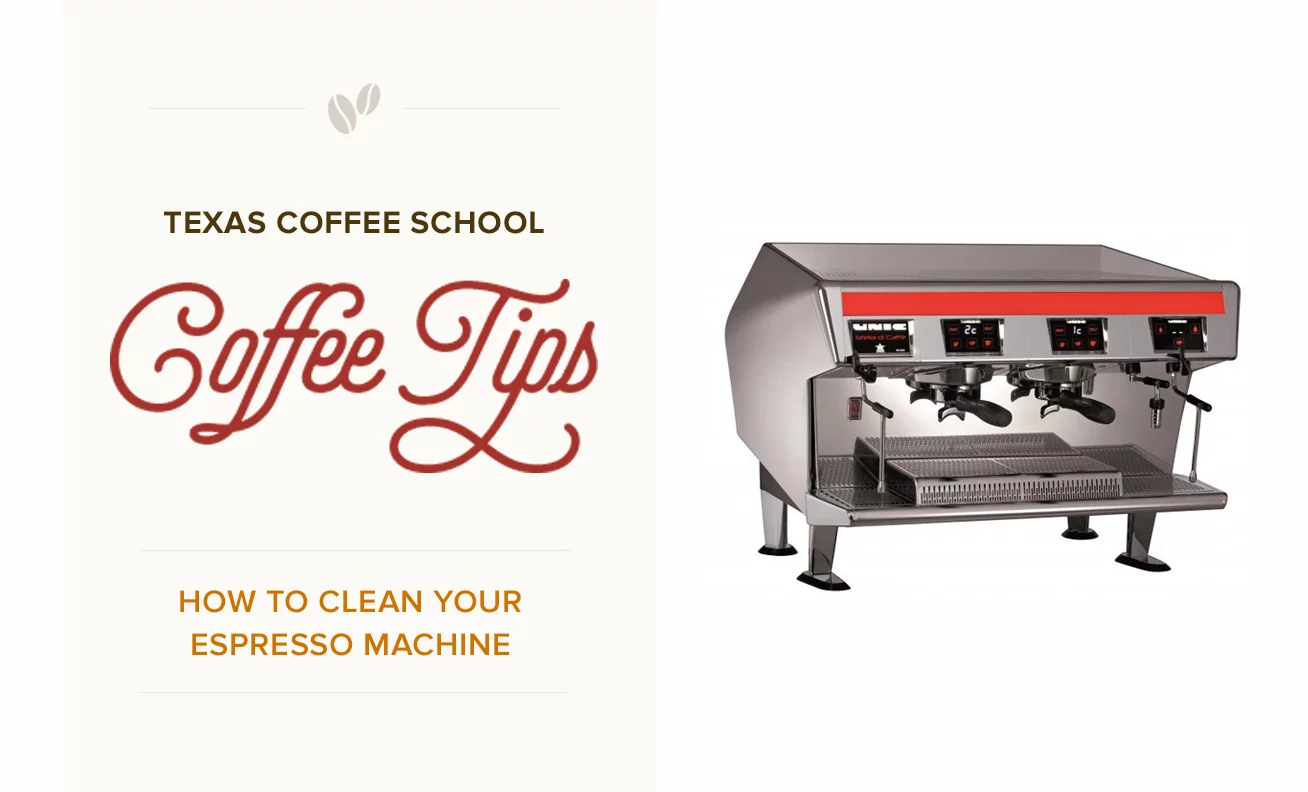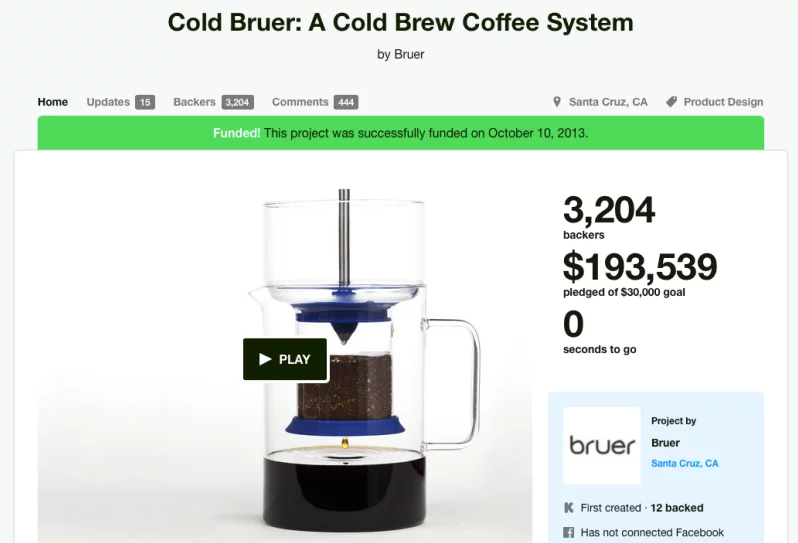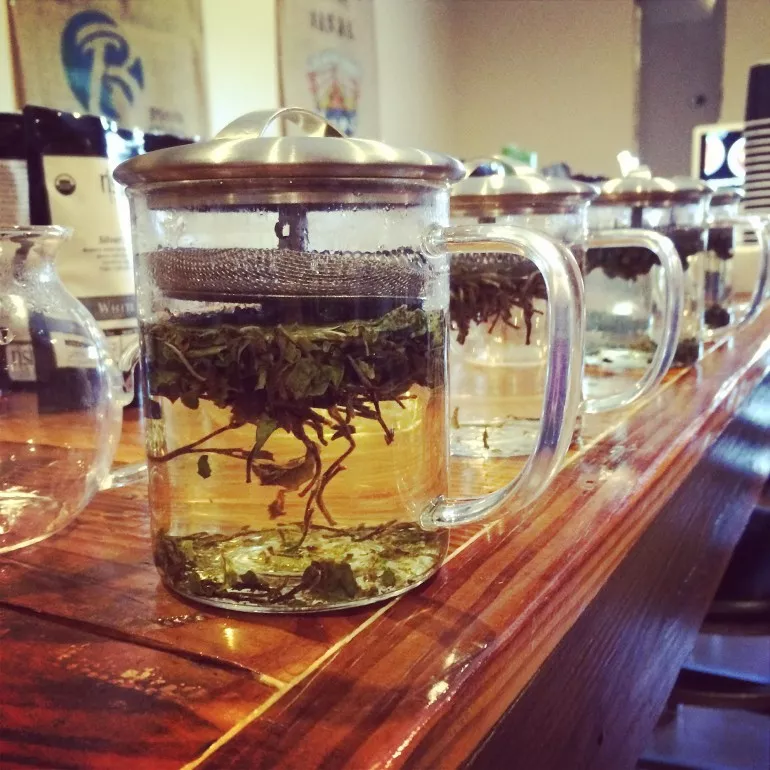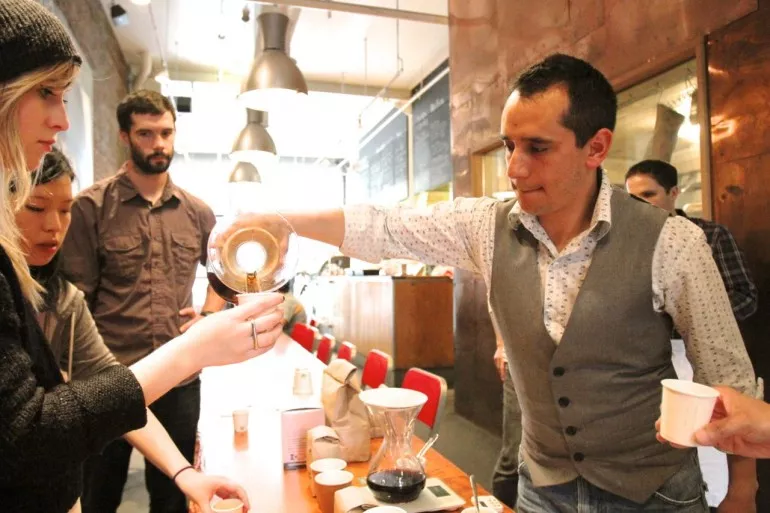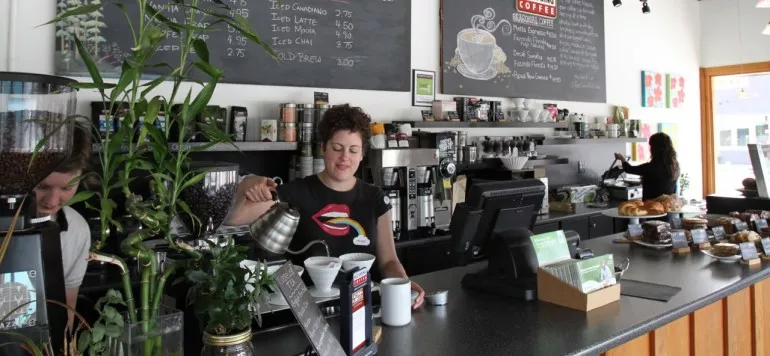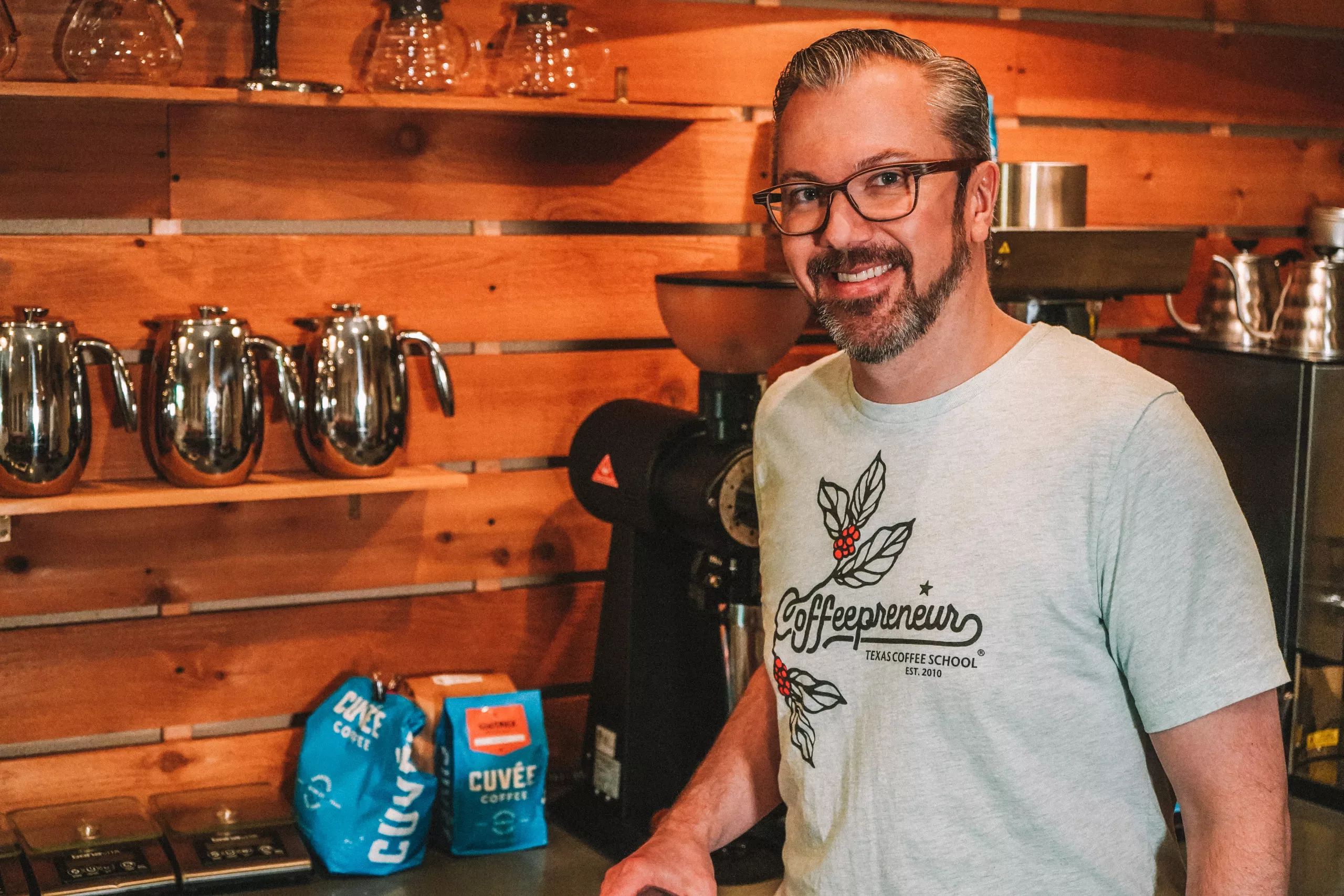
Top Entrepreneur Tips for Coffee Shop Owners (Part 1)
Entrepreneur Tips from Texas Coffee School Founder Tom Vincent
In 2009, Tom Vincent was laid off from his job as a creative director. Facing an economic recession and declining print industry, his lack of prospects sent him spiraling from a cush creative career to rock bottom. He eventually found himself donating plasma and picking up day labor gigs to scrape by.
Tom, a long-time specialty coffee enthusiast, (who by chance got to apprentice several of the most respected minds in the entire specialty coffee industry for two years) spent his last $3.00 to treat himself to a cappuccino. As he watched the barista make a mess of the drink, he asked, “Do you guys ever get formal barista training? Do you do latte art throw downs? Coffee cuppings?”
“Not really, man, is that something you do?” the barista replied. And the idea for Texas Coffee School was born.
Listen to Tom’s full story on this podcast episode!
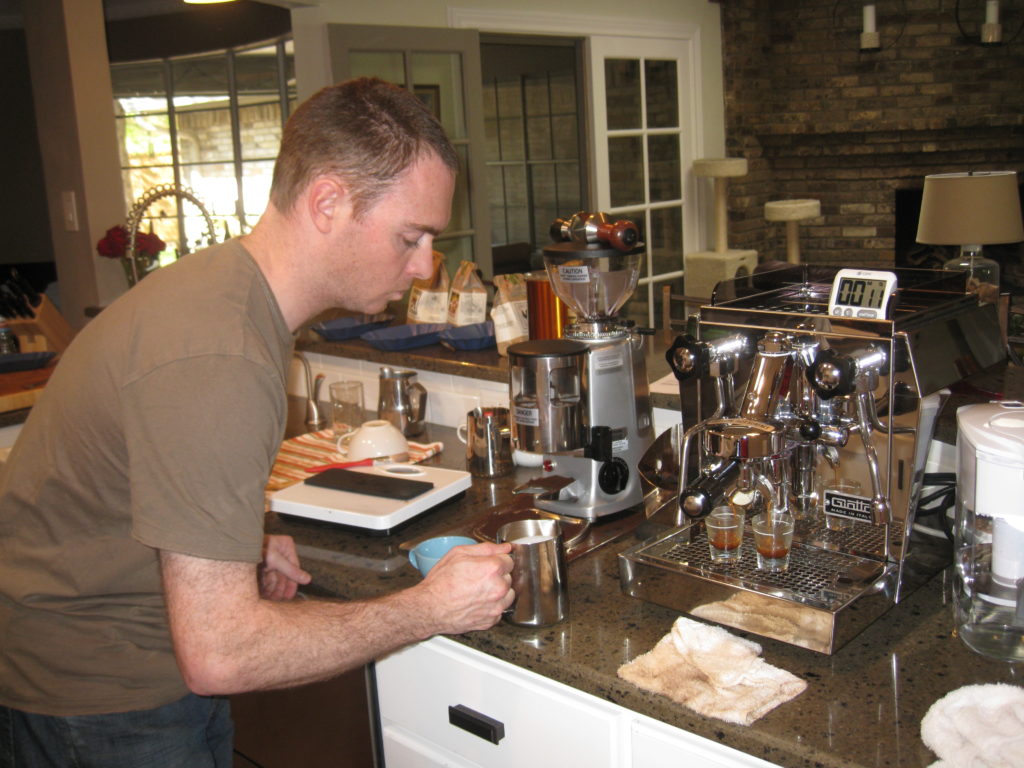
One of Tom’s first coffee classes being taught in his student Lee’s own kitchen
In the years since, Tom learned entrepreneurship the old fashioned way: by doing. He grew Texas Coffee School from private coffee trainings at students’ houses to the business it is today. Week after week, he fills the sold-out classroom with dozens of aspiring business owners, coffee enthusiasts, baristas, and coffee shop managers. He built both a thriving business and a career he loves, finding fulfillment from his work every day.
The entrepreneurial knowledge he’s gathered over the years extends far beyond the walls of Texas Coffee School. He’s helped hundreds and hundreds of entrepreneurs all over the world open successful coffee shops that are thriving in their communities.
We sat down in an interview with Tom so he can share some of his entrepreneurial tips he gives his students in our 3-Day Coffee Business Master Class.
How do you define success?
To me, success is freedom. Freedom to live and work with purpose. To be happy doing things that are meaningful and fulfilling every day. To be able surround myself with the people I want to surround myself with. And, to not be in the situation I once was a long time ago as a cog in the corporate wheel.
Some people define success as money, but I know plenty of people with a lot of money who aren’t very happy. Sure, money is a means to achieve the lifestyle you want. But without fulfillment, you can’t be happy in the work you do or the life you live.
What are some of the entrepreneur tips and lessons you’ve picked up along the way?
Don’t focus on “me”
Because I did not have a lot of money when starting my business (less than $50), something I learned quickly is that my business can’t just be focused on benefiting me. I found I could get much further, faster, if I strategically and transparently focused on helping others get what they wanted while getting what I wanted in the process. You want your business to benefit everyone in your ecosystem. This way everyone wins, including you, but you have to be patient and willing to benefit last if this methodology is going to work. Always remember to show others what’s in it for them if you want them to help you, and continue to provide value.
For example, when I first launched Texas Coffee School and needed a space to teach coffee classes, I partnered with a company that made syrups for coffee shops. They had a break room full of coffee equipment for doing product demos for prospective clients. I offered up a win-win: “Let me use your break room to teach my classes on weekends, and I’ll demo your products with my students which will give you further reach.” That’s how I got my first fully outfitted teaching facility completely free of charge. Make it a win-win for everyone in your ecosystem and show the tangible value you offer.
I ask my students, “Who else could benefit from your coffee shop? A commercial real estate developer looking to attract high dollar retail tenants? The businesses or organizations nearby? Become a connector and help others find ways to benefit from your business and get what you need in the process.” Don’t stop there. Always try to make everything you do benefit everyone in your ecosystem so you all collectively benefit together.
Don’t seek peer affirmation
When I first started, I was extremely focused on doing everything to “industry (SCA) standard.” I was afraid to step out of my lane for fear of being blackballed by my peers and the big deal academics in the specialty coffee industry.
Over time, I felt like it had stunted my personal growth. After a lot of reflection I came to the realization that nothing truly great has ever come from doing things the “industry standard” way. I also realized those industry peers I sought validation from weren’t the ones paying me. So, why should I care what they think?
After years of teaching every single week, I was able to develop significantly better ways of communicating and teaching my curriculum. I found regular, everyday people could not only grasp it easily, but they can also easily deploy it in the “real world.” More importantly, I found my teaching methods were generating a lot of down stream success in my students with their coffee shop businesses. Seeing people succeed from what I was teaching fueled me to go even further–and to make our program even better with no restraints or fears. I no longer cared about operating to industry standard. I only cared about being the best at what I do so my students achieve measurable success.
Once I stopped caring what my industry peers thought of me, that’s when my business really took off. Instead of focusing on impressing the .03 percent of the specialty coffee world, I focused on making my classes accessible to anyone who wanted to open a coffee shop. People from any small town or big city in the country could learn the coffee business in my class with or without experience. That’s when I really found greatest level of fulfillment in what I was doing.
Emotional Maturity and a Growth Mindset
Being an entrepreneur requires a lot of self awareness and introspection. It’s taught me how to process things, how I work, and how I get in my own way. Early on if someone challenged my validity as a coffee professional, or a new competitor came on the scene, I would obsess over it. Now, I’ve learned to control what I can control and to spend less energy reacting to those kind of things.
Coffee shop owners will face difficult customers, negative reviews, and new competition. But if they’re clear on their “why” for opening a coffee shop and they’ve come up with a concept that offers their customers a unique experience, those things won’t matter. We teach our students how to do that in our classes. That’s why their coffee shop businesses tend to have staying power.
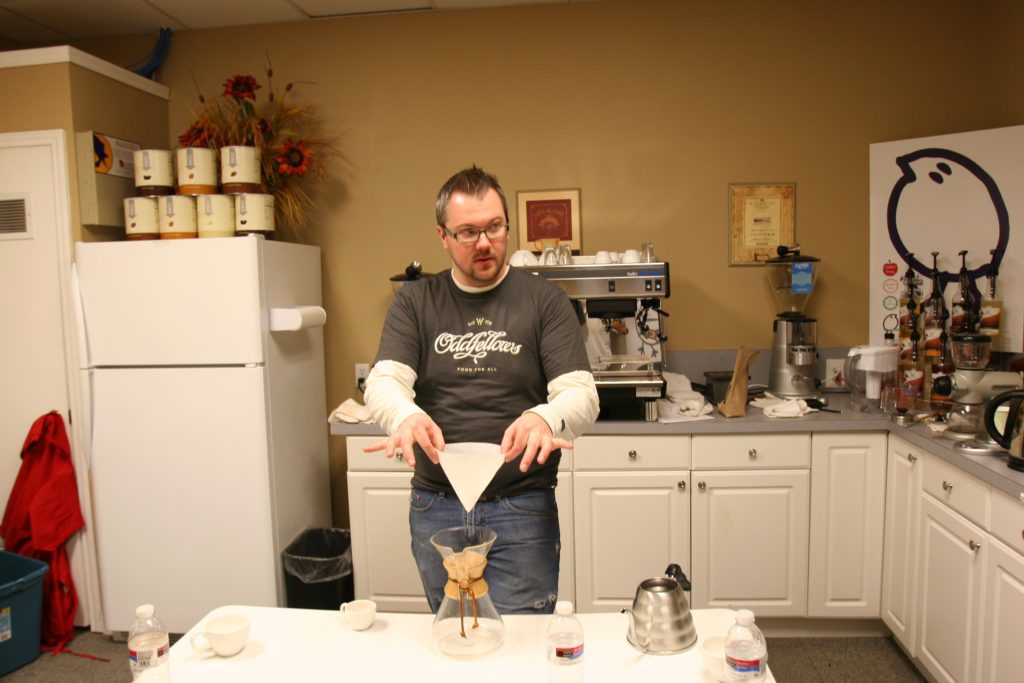
Tom teaching a coffee class in the syrup company break room in 2010
What have you learned from your former students at Texas Coffee School?
I’ve learned that what we’re doing is so much bigger than coffee. When I visit a former student’s coffee shop in their hometown, I see someone who has truly found fulfillment. I see someone offering a space to bring the community together. Coffee is just the catalyst for us. Seeing former students in their element has taught me what we’re actually offering is a means to freedom (through coffee).
Tom’s lessons for entrepreneurs will be continued in Part 2 of this blog post.
For More Entrepreneur Tips, Become a Coffeepreneur® with Texas Coffee School
Learn coffee, entrepreneurship, business, and more in our 3-Day Coffee Business Master Class. If you’re ready to join the hundreds and hundreds Coffeepreneurs® who have launched coffee shops around the world, register here.

Register for a Coffee Class
The Best Coffee Training Available
We’ve helped hundreds of students successfully launch their own coffee shop businesses. Join us in our 5-Star Rated Coffee Classes, whether you’re an aspiring entrepreneur looking to open a coffee shop, a manager, a barista or home enthusiast looking to sharpen your skills.
